Tag #diagrams
632 papers:
 PADL-2020-ErikssonP #domain-specific language #integer #reasoning
PADL-2020-ErikssonP #domain-specific language #integer #reasoning- A DSL for Integer Range Reasoning: Partition, Interval and Mapping Diagrams (JE, MP), pp. 196–212.
 POPL-2019-BonchiHPSZ #algebra #concurrent #linear
POPL-2019-BonchiHPSZ #algebra #concurrent #linear- Diagrammatic algebra: from linear to concurrent systems (FB, JH, RP, PS, FZ), p. 28.
 ESEC-FSE-2019-LohiaKSM #design #ontology
ESEC-FSE-2019-LohiaKSM #design #ontology- Design diagrams as ontological source (PL, KK, BS, SM), pp. 863–873.
 GPCE-2019-Dimovski #abstract domain #static analysis #using
GPCE-2019-Dimovski #abstract domain #static analysis #using- Lifted static analysis using a binary decision diagram abstract domain (ASD), pp. 102–114.
 VMCAI-2019-PreoteasaDT #proving
VMCAI-2019-PreoteasaDT #proving- Mechanically Proving Determinacy of Hierarchical Block Diagram Translations (VP, ID, ST), pp. 577–600.
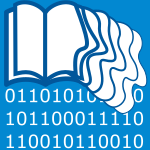 JCDL-2018-Benotman0 #multi #navigation
JCDL-2018-Benotman0 #multi #navigation- Extending Multiple Diagram Navigation with Internal Diagram and Collection Connections (HB, DM0), pp. 141–144.
 ICPC-2018-LyuNK #named #sequence chart #tool support
ICPC-2018-LyuNK #named #sequence chart #tool support- SDexplorer: a generic toolkit for smoothly exploring massive-scale sequence diagram (KL, KN, TK), pp. 380–384.
 FSCD-2018-EndrullisKO #confluence
FSCD-2018-EndrullisKO #confluence- Decreasing Diagrams with Two Labels Are Complete for Confluence of Countable Systems (JE, JWK, RO), p. 15.
 FSCD-2018-HadzihasanovicF #axiom #quantum
FSCD-2018-HadzihasanovicF #axiom #quantum- A Diagrammatic Axiomatisation of Fermionic Quantum Circuits (AH, GdF, KFN), p. 20.
 VS-Games-2018-MunozVCMH #artificial reality #coordination #using
VS-Games-2018-MunozVCMH #artificial reality #coordination #using- Dynamic Systems Theory in Human Movement Exploring Coordination Patterns by Angle-Angle Diagrams Using Kinect (JEMC, JFV, SC, MFM, ÓAH), pp. 1–4.
 MoDELS-2018-KastnerGS
MoDELS-2018-KastnerGS - From (Imperfect) Object Diagrams to (Imperfect) Class Diagrams: New Ideas and Vision Paper (AK, MG, BS), pp. 13–22.
 EDM-2017-Xue #student
EDM-2017-Xue #student- Intelligent Argument Grading System forStudent-produced Argument Diagrams (LX).
 EDM-2017-XueLC #graph grammar #mining
EDM-2017-XueLC #graph grammar #mining- Mining Innovative Augmented Graph Grammars for Argument Diagrams through Novelty Selection (LX, CL, MC).
- IFM-2017-Wu #consistency #constraints #named #uml
- MaxUSE: A Tool for Finding Achievable Constraints and Conflicts for Inconsistent UML Class Diagrams (HW0), pp. 348–356.
 SEFM-2017-MatteplackelPW #calculus #formal method #requirements
SEFM-2017-MatteplackelPW #calculus #formal method #requirements- Formalizing Timing Diagram Requirements in Discrete Duration Calculus (RMM, PKP, AW), pp. 253–268.
 ICML-2017-CarriereCO #kernel #persistent #slicing
ICML-2017-CarriereCO #kernel #persistent #slicing- Sliced Wasserstein Kernel for Persistence Diagrams (MC, MC, SO), pp. 664–673.
 ECMFA-2017-GogollaHNW #independence #uml #verification
ECMFA-2017-GogollaHNW #independence #uml #verification- Formulating Model Verification Tasks Prover-Independently as UML Diagrams (MG, FH, PN, RW), pp. 232–247.
 MoDELS-2017-BeckmannMSV #process #uml
MoDELS-2017-BeckmannMSV #process #uml- Removal of Redundant Elements within UML Activity Diagrams (MB, VNM, AS, AV), pp. 334–343.
- ICSE-2017-FaitelsonT #case study #refinement #uml
- UML diagram refinement (focusing on class- and use case diagrams) (DF, SST), pp. 735–745.
 FASE-2017-AlvinPM #generative #named #sequence chart #uml
FASE-2017-AlvinPM #generative #named #sequence chart #uml- StaticGen: Static Generation of UML Sequence Diagrams (CA, BP, SM), pp. 173–190.
 CSL-2017-GhicaJL #semantics
CSL-2017-GhicaJL #semantics- Diagrammatic Semantics for Digital Circuits (DRG, AJ, AL), p. 16.
 ECSA-2016-Mesli-KesraouiK #architecture #verification
ECSA-2016-Mesli-KesraouiK #architecture #verification- Formal Verification of Software-Intensive Systems Architectures Described with Piping and Instrumentation Diagrams (SMK, DK, FO, AB, AT, PB), pp. 210–226.
 CSEET-2016-HeroutB #automation #student #uml #validation
CSEET-2016-HeroutB #automation #student #uml #validation- UML-Test Application for Automated Validation of Students' UML Class Diagram (PH, PB), pp. 222–226.
 CSEET-2016-SrinivasanLY #comprehension #object-oriented #programming #sequence chart #using
CSEET-2016-SrinivasanLY #comprehension #object-oriented #programming #sequence chart #using- Enhancing Object-Oriented Programming Comprehension Using Optimized Sequence Diagram (MS, YL, JY), pp. 81–85.
 EDM-2016-ChenDP #problem #using
EDM-2016-ChenDP #problem #using- Examining the necessity of problem diagrams using MOOC AB experiments (ZC, ND, DEP), pp. 579–580.
 EDM-2016-XueLC #evolution #graph grammar #re-engineering
EDM-2016-XueLC #evolution #graph grammar #re-engineering- Unnatural Feature Engineering: Evolving Augmented Graph Grammars for Argument Diagrams (LX, CL, MC), pp. 255–262.
 ICPC-2016-SrinivasanYL #case study #comprehension #sequence chart
ICPC-2016-SrinivasanYL #case study #comprehension #sequence chart- Case studies of optimized sequence diagram for program comprehension (MS, JY, YL), pp. 1–4.
 ICSME-2016-DeckerSCM #reverse engineering #uml
ICSME-2016-DeckerSCM #reverse engineering #uml- A Tool for Efficiently Reverse Engineering Accurate UML Class Diagrams (MJD, KS, MLC, JIM), pp. 607–609.
- IFM-2016-Prehofer
- Property Preservation for Extension Patterns of State Transition Diagrams (CP), pp. 260–274.
 SEFM-2016-DernehlHK #abstract interpretation #analysis #execution #symbolic computation
SEFM-2016-DernehlHK #abstract interpretation #analysis #execution #symbolic computation- Combining Abstract Interpretation with Symbolic Execution for a Static Value Range Analysis of Block Diagrams (CD, NH, SK), pp. 137–152.
- ICFP-2016-PirogW #for free #functional #monad #string
- String diagrams for free monads (functional pearl) (MP, NW), pp. 490–501.
 MoDELS-2016-RueggLPKSH #automation #incremental #layout #migration
MoDELS-2016-RueggLPKSH #automation #incremental #layout #migration- Incremental diagram layout for automated model migration (UR, RL, AP, AK, CDS, RvH), pp. 185–195.
 Onward-2016-ForsH #composition #named #programming
Onward-2016-ForsH #composition #named #programming- Bloqqi: modular feature-based block diagram programming (NF, GH), pp. 57–73.
 SLE-2016-SantosG #declarative #domain-specific language #editing #named
SLE-2016-SantosG #declarative #domain-specific language #editing #named- Xdiagram: a declarative textual DSL for describing diagram editors (ALS, EG), pp. 253–257.
 CASE-2016-TanCPT #automation #design #evaluation #layout #using
CASE-2016-TanCPT #automation #design #evaluation #layout #using- Automated design evaluation on layout of Piping and Instrumentation Diagram using Histogram of Connectivity (WCT, IMC, SJP, HKT), pp. 1295–1300.
 CASE-2016-TanCT #automation #component #identification #preprocessor
CASE-2016-TanCT #automation #component #identification #preprocessor- Automated identification of components in raster piping and instrumentation diagram with minimal pre-processing (WCT, IMC, HKT), pp. 1301–1306.
 ECSA-2015-PautassoIS #modelling #rest
ECSA-2015-PautassoIS #modelling #rest- Modeling RESTful Conversations with Extended BPMN Choreography Diagrams (CP, AI, SS), pp. 87–94.
 DRR-2015-FuLLQT #learning #multi #retrieval
DRR-2015-FuLLQT #learning #multi #retrieval- A diagram retrieval method with multi-label learning (SF, XL, LL, JQ, ZT).
 EDM-2015-AnayaGLH #analysis #approach #collaboration #network #social #using
EDM-2015-AnayaGLH #analysis #approach #collaboration #network #social #using- An Approach of Collaboration Analytics in MOOCs Using Social Network Analysis and Influence Diagram (ARA, JGB, EL, FHdO), pp. 492–495.
 ICALP-v1-2015-AronovK #algebra #tool support
ICALP-v1-2015-AronovK #algebra #tool support- Batched Point Location in SINR Diagrams via Algebraic Tools (BA, MJK), pp. 65–77.
 SEFM-2015-DawC #process #semantics #uml
SEFM-2015-DawC #process #semantics #uml- An Extensible Operational Semantics for UML Activity Diagrams (ZD, RC), pp. 360–368.
 TLCA-2015-Bagnol #equivalence #proving
TLCA-2015-Bagnol #equivalence #proving- MALL Proof Equivalence is Logspace-Complete, via Binary Decision Diagrams (MB), pp. 60–75.
 ICGT-2015-KissingerZ #equation #product line #reasoning #string
ICGT-2015-KissingerZ #equation #product line #reasoning #string- Equational Reasoning with Context-Free Families of String Diagrams (AK, VZ), pp. 138–154.
 ICEIS-v2-2015-MeloFOS #approach #modelling #process #uml
ICEIS-v2-2015-MeloFOS #approach #modelling #process #uml- A Model-driven Approach to Transform SysML Internal Block Diagrams to UML Activity Diagrams (MdSM, JMSF, EAOJ, MSS), pp. 92–101.
 SEKE-2015-LongoV #interactive
SEKE-2015-LongoV #interactive- Creating User Scenarios through User Interaction Diagrams by Non-Technical Customers (DHL, PV), pp. 330–335.
 SEKE-2015-LopesMBC #named
SEKE-2015-LopesMBC #named- MoLVERIC: An Inspection Technique for MoLIC Diagrams (AL, ABM, SDJB, TC), pp. 13–17.
 MoDELS-J-2011-BavotaGOLTGC15 #analysis #fine-grained #maintenance #uml
MoDELS-J-2011-BavotaGOLTGC15 #analysis #fine-grained #maintenance #uml- A fine-grained analysis of the support provided by UML class diagrams and ER diagrams during data model maintenance (GB, CG, RO, ADL, GT, MG, JACL), pp. 287–306.
 AMT-2015-RabbiLYK #approach
AMT-2015-RabbiLYK #approach- A Diagrammatic Approach to Model Completion (FR, YL, IY, LK), pp. 56–65.
 MoDELS-2015-FoucheNGE #generative #modelling #standard #tool support
MoDELS-2015-FoucheNGE #generative #modelling #standard #tool support- Systematic generation of standard compliant tool support of diagrammatic modeling languages (AF, FN, SG, ME), pp. 348–357.
 MoDELS-2015-GregoricsGKDD #algorithm #layout #visualisation
MoDELS-2015-GregoricsGKDD #algorithm #layout #visualisation- Textual diagram layout language and visualization algorithm (BG, TG, GFK, AD, GD), pp. 196–205.
 SPLC-2015-FerrariSGD #documentation #feature model #natural language #tool support
SPLC-2015-FerrariSGD #documentation #feature model #natural language #tool support- CMT and FDE: tools to bridge the gap between natural language documents and feature diagrams (AF, GOS, SG, FD), pp. 402–410.
 SAC-2015-CostaCFR #modelling #precise #uml
SAC-2015-CostaCFR #modelling #precise #uml- From UML diagrams to simulink models: a precise and verified translation (AC, SAdCC, LF, LR), pp. 1547–1552.
 SAC-2015-KimL #qvt #sequence chart #using
SAC-2015-KimL #qvt #sequence chart #using- Pattern-based transformation of sequence diagrams using QVT (DKK, BL), pp. 1492–1497.
 SAC-2015-MeftehBB #approach #case study #evaluation #feature model #implementation #modelling #uml
SAC-2015-MeftehBB #approach #case study #evaluation #feature model #implementation #modelling #uml- Implementation and evaluation of an approach for extracting feature models from documented UML use case diagrams (MM, NB, HBA), pp. 1602–1609.
 DATE-2015-AhmadyanGNCV #analysis #performance
DATE-2015-AhmadyanGNCV #analysis #performance- Fast eye diagram analysis for high-speed CMOS circuits (SNA, CG, SN, EC, SV), pp. 1377–1382.
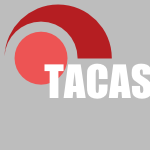 TACAS-2015-DijkP #manycore #named
TACAS-2015-DijkP #manycore #named- Sylvan: Multi-Core Decision Diagrams (TvD, JvdP), pp. 677–691.
 CADE-2015-KissingerZ #named #proving #reasoning
CADE-2015-KissingerZ #named #proving #reasoning- Quantomatic: A Proof Assistant for Diagrammatic Reasoning (AK, VZ), pp. 326–336.
 ICLP-2015-Charwat #programming #research #summary #using
ICLP-2015-Charwat #programming #research #summary #using- Dynamic Programming on Tree Decompositions using Binary Decision Diagrams: Research Summary (GC), pp. 301–310.
 LICS-2015-Hadzihasanovic #axiom #quantum
LICS-2015-Hadzihasanovic #axiom #quantum- A Diagrammatic Axiomatisation for Qubit Entanglement (AH), pp. 573–584.
 TAP-2015-MijatovMLK #functional #process #requirements #testing #uml
TAP-2015-MijatovMLK #functional #process #requirements #testing #uml- Testing Functional Requirements in UML Activity Diagrams (SM, TM, PL, GK), pp. 173–190.
 EDM-2014-LynchFA
EDM-2014-LynchFA - Matching Hypothesis Text in Diagrams and Essays (CL, MHF, KDA), pp. 383–384.
 ITiCSE-2014-StrieweG #assessment #automation #process #uml
ITiCSE-2014-StrieweG #assessment #automation #process #uml- Automated assessment of UML activity diagrams (MS, MG), p. 336.
 ICPC-2014-ThungLOC #classification #design #metric #network #using
ICPC-2014-ThungLOC #classification #design #metric #network #using- Condensing class diagrams by analyzing design and network metrics using optimistic classification (FT, DL, MHO, MRVC), pp. 110–121.
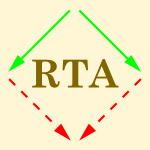 RTA-TLCA-2014-AotoTU #confluence #proving #term rewriting
RTA-TLCA-2014-AotoTU #confluence #proving #term rewriting- Proving Confluence of Term Rewriting Systems via Persistency and Decreasing Diagrams (TA, YT, KU), pp. 46–60.
 RTA-TLCA-2014-Mellies #string
RTA-TLCA-2014-Mellies #string- Local States in String Diagrams (PAM), pp. 334–348.
 SEFM-2014-LovatoMS #library #thread
SEFM-2014-LovatoMS #library #thread- A Thread-Safe Library for Binary Decision Diagrams (AL, DM, FS), pp. 35–49.
 CHI-2014-AlperRH #case study #visual notation
CHI-2014-AlperRH #case study #visual notation- Structuring the space: a study on enriching node-link diagrams with visual references (BA, NHR, TH), pp. 1825–1834.
 HCI-AIMT-2014-NieblingSKS #editing #gesture #interactive #modelling #multi
HCI-AIMT-2014-NieblingSKS #editing #gesture #interactive #modelling #multi- Model-Based Multi-touch Gesture Interaction for Diagram Editors (FN, DS, RK, TS), pp. 121–130.
 ICEIS-v2-2014-MarcolinoOG #approach #effectiveness #sequence chart #towards #variability
ICEIS-v2-2014-MarcolinoOG #approach #effectiveness #sequence chart #towards #variability- Towards the Effectiveness of the SMarty Approach for Variability Management at Sequence Diagram Level (AM, EAOJ, IMdSG), pp. 249–256.
 ICEIS-v2-2014-PfisterHN #agile #concurrent #design #framework #metamodelling #modelling #synthesis #towards #visual notation
ICEIS-v2-2014-PfisterHN #agile #concurrent #design #framework #metamodelling #modelling #synthesis #towards #visual notation- A Framework for Concurrent Design of Metamodels and Diagrams — Towards an Agile Method for the Synthesis of Domain Specific Graphical Modeling Languages (FP, MH, CN), pp. 298–306.
 ICEIS-v3-2014-GoncalvesSC #case study #metric #process #using
ICEIS-v3-2014-GoncalvesSC #case study #metric #process #using- Using Activity Diagrams and DEMO to Capture Relevant Measures in an Organizational Control — A Case Study on Remote Assistance Service (AG, PS, AC), pp. 303–310.
 ICML-c1-2014-ChazalGLM #convergence #data analysis #estimation #persistent
ICML-c1-2014-ChazalGLM #convergence #data analysis #estimation #persistent- Convergence rates for persistence diagram estimation in Topological Data Analysis (FC, MG, CL, BM), pp. 163–171.
 KR-2014-KisaBCD #probability
KR-2014-KisaBCD #probability- Probabilistic Sentential Decision Diagrams (DK, GVdB, AC, AD).
 MLDM-2014-BugaychenkoZ #learning #multi #pattern matching #pattern recognition #performance #recognition #using
MLDM-2014-BugaychenkoZ #learning #multi #pattern matching #pattern recognition #performance #recognition #using- Fast Pattern Recognition and Deep Learning Using Multi-Rooted Binary Decision Diagrams (DB, DZ), pp. 73–77.
 SEKE-2014-CostaMM #detection #equivalence #semantics #uml
SEKE-2014-CostaMM #detection #equivalence #semantics #uml- Detecting Semantic Equivalence in UML Class Diagrams (VOC, RM, LM), pp. 318–323.
 SEKE-2014-HuHCC #execution #model transformation #uml
SEKE-2014-HuHCC #execution #model transformation #uml- Extended DEVSML as a Model Transformation Intermediary to Make UML Diagrams Executable (JH, LH, BC, XC), pp. 314–317.
 SEKE-2014-MarinQ #metric
SEKE-2014-MarinQ #metric- A COSMIC Measurement Procedure for BPMN Diagrams (BM, JQ), pp. 408–411.
 MoDELS-2014-MaraeeB #uml
MoDELS-2014-MaraeeB #uml- Removing Redundancies and Deducing Equivalences in UML Class Diagrams (AM, MB), pp. 235–251.
 MoDELS-2014-Storrle #comprehension #layout #matter #on the #quality #uml
MoDELS-2014-Storrle #comprehension #layout #matter #on the #quality #uml- On the Impact of Layout Quality to Understanding UML Diagrams: Size Matters (HS), pp. 518–534.
 RE-2014-SlavinLNB #feature model #requirements #security #using
RE-2014-SlavinLNB #feature model #requirements #security #using- Managing security requirements patterns using feature diagram hierarchies (RS, JML, JN, TDB), pp. 193–202.
 FSE-2014-BaltesD #sketching
FSE-2014-BaltesD #sketching- Sketches and diagrams in practice (SB, SD), pp. 530–541.
 FSE-2014-BaltesSD #sketching #source code
FSE-2014-BaltesSD #sketching #source code- Linking sketches and diagrams to source code artifacts (SB, PS, SD), pp. 743–746.
 SAC-2014-MazelFF #comparison #detection #network #visual notation
SAC-2014-MazelFF #comparison #detection #network #visual notation- Visual comparison of network anomaly detectors with chord diagrams (JM, RF, KF), pp. 473–480.
 SAC-2014-NguyenJ0B #automation #embedded #modelling #realtime #uml
SAC-2014-NguyenJ0B #automation #embedded #modelling #realtime #uml- Automatic construction of timing diagrams from UML/MARTE models for real-time embedded software (MCN, EJ, JC, DHB), pp. 1140–1145.
 SLE-2014-KaufmannKPSW #debugging #satisfiability #sequence chart #state machine
SLE-2014-KaufmannKPSW #debugging #satisfiability #sequence chart #state machine- A SAT-Based Debugging Tool for State Machines and Sequence Diagrams (PK, MK, AP, MS, MW), pp. 21–40.
 DATE-2014-AmaruGM #performance
DATE-2014-AmaruGM #performance- An efficient manipulation package for Biconditional Binary Decision Diagrams (LGA, PEG, GDM), pp. 1–6.
 FASE-2014-FahrenbergALW #difference
FASE-2014-FahrenbergALW #difference- Sound Merging and Differencing for Class Diagrams (UF, MA, AL, AW), pp. 63–78.
 ECSA-2013-HaitzerZ #architecture #component #comprehension #design #empirical
ECSA-2013-HaitzerZ #architecture #component #comprehension #design #empirical- Controlled Experiment on the Supportive Effect of Architectural Component Diagrams for Design Understanding of Novice Architects (TH, UZ), pp. 54–71.
 CSMR-2013-ScannielloGT #comprehension #sequence chart #source code
CSMR-2013-ScannielloGT #comprehension #sequence chart #source code- An Early Investigation on the Contribution of Class and Sequence Diagrams in Source Code Comprehension (GS, CG, GT), pp. 367–370.
 ICPC-2013-FalconeS #eclipse #graph #named #plugin #uml #visualisation
ICPC-2013-FalconeS #eclipse #graph #named #plugin #uml #visualisation- OnionUML: An Eclipse plug-in for visualizing UML class diagrams in onion graph notation (MF, BS), pp. 233–235.
 ICSM-2013-LabicheKM #analysis
ICSM-2013-LabicheKM #analysis- Combining Static and Dynamic Analyses to Reverse-Engineer Scenario Diagrams (YL, BK, HM), pp. 130–139.
 ICSM-2013-OsmanCP #algorithm #analysis #machine learning
ICSM-2013-OsmanCP #algorithm #analysis #machine learning- An Analysis of Machine Learning Algorithms for Condensing Reverse Engineered Class Diagrams (MHO, MRVC, PvdP), pp. 140–149.
 ICALP-v1-2013-BohlerCKLPZ #complexity #higher-order #on the
ICALP-v1-2013-BohlerCKLPZ #complexity #higher-order #on the- On the Complexity of Higher Order Abstract Voronoi Diagrams (CB, PC, RK, CHL, EP, MZ), pp. 208–219.
 IFM-2013-Prehofer #behaviour #refinement #specification
IFM-2013-Prehofer #behaviour #refinement #specification- Assume-Guarantee Specifications of State Transition Diagrams for Behavioral Refinement (CP), pp. 31–45.
 RTA-2013-FelgenhauerO #order #proving
RTA-2013-FelgenhauerO #order #proving- Proof Orders for Decreasing Diagrams (BF, VvO), pp. 174–189.
 RTA-2013-Zankl #confluence
RTA-2013-Zankl #confluence- Confluence by Decreasing Diagrams — Formalized (HZ), pp. 352–367.
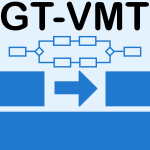 GT-VMT-2013-GreenyerBM #sequence chart #specification
GT-VMT-2013-GreenyerBM #sequence chart #specification- The ScenarioTools Play-Out of Modal Sequence Diagram Specifications with Environment Assumptions (JG, CB, VPLM).
 GT-VMT-2013-MaierM #approach #layout
GT-VMT-2013-MaierM #approach #layout- A Pattern-based Approach for Initial Diagram Layout (SM, MM).
 HCI-AMTE-2013-MayasHK #classification #process
HCI-AMTE-2013-MayasHK #classification #process- Extending the Information of Activity Diagrams with a User Input Classification (CM, SH, HK), pp. 391–400.
 HCI-IMT-2013-DharmaT
HCI-IMT-2013-DharmaT - Mapping Texture Phase Diagram of Artificial Haptic Stimuli Generated by Vibrotactile Actuators (AAGD, KT), pp. 578–586.
 HCI-UC-2013-KellenCF #performance #probability #problem
HCI-UC-2013-KellenCF #performance #probability #problem- Improving User Performance in Conditional Probability Problems with Computer-Generated Diagrams (VK, SSC, XF), pp. 183–192.
 KDIR-KMIS-2013-ItalaH #behaviour #process #using
KDIR-KMIS-2013-ItalaH #behaviour #process #using- Using Stocks and Flows Diagrams to Understand Business Process Behavior (TI, MH), pp. 552–558.
 SEKE-2013-AnchietaSM #case study #identification #prototype #uml #user interface #using
SEKE-2013-AnchietaSM #case study #identification #prototype #uml #user interface #using- Using NLP Techniques for Identifying GUI Prototypes and UML Diagrams From Use Cases (RTA, RFdS, RSM), pp. 48–53.
 SEKE-2013-AssuncaoV #optimisation #retrieval
SEKE-2013-AssuncaoV #optimisation #retrieval- Class Diagram Retrieval with Particle Swarm Optimization (WKGA, SRV), pp. 632–637.
 SEKE-2013-ElshaarawyHT #framework #ocl #towards
SEKE-2013-ElshaarawyHT #framework #ocl #towards- Towards a Unified Framework for Measuring the Properties of Class Diagrams Augmented with OCL (ME, HSH, IAHT), pp. 479–482.
 SEKE-2013-YoonMPP #reverse engineering #sequence chart
SEKE-2013-YoonMPP #reverse engineering #sequence chart- Reverse Engineering of Sequence Diagrams by Merging Call Trees (SY, SM, SP, SP), pp. 368–374.
 MoDELS-2013-BalabanM #composition #constraints #correctness #multi #uml
MoDELS-2013-BalabanM #composition #constraints #correctness #multi #uml- Simplification and Correctness of UML Class Diagrams — Focusing on Multiplicity and Aggregation/Composition Constraints (MB, AM), pp. 454–470.
 ICSE-2013-ScharfA #editing #injection #sketching
ICSE-2013-ScharfA #editing #injection #sketching- Dynamic injection of sketching features into GEF based diagram editors (AS, TA), pp. 822–831.
 DATE-2013-ElbayoumiHE #concurrent #manycore #novel #platform
DATE-2013-ElbayoumiHE #concurrent #manycore #novel #platform- A novel concurrent cache-friendly binary decision diagram construction for multi-core platforms (ME, MSH, MYE), pp. 1427–1430.
 CAV-2013-ColangeBKT #distributed #model checking #towards #using
CAV-2013-ColangeBKT #distributed #model checking #towards #using- Towards Distributed Software Model-Checking Using Decision Diagrams (MC, SB, FK, YTM), pp. 830–845.
 ICST-2013-UrataK #testing #visualisation
ICST-2013-UrataK #testing #visualisation- Proposal of Testing Diagrams for Visualizing Test Cases (SU, TK), pp. 483–484.
 ICTSS-2013-EnoiuSP #logic #testing #using
ICTSS-2013-EnoiuSP #logic #testing #using- Using Logic Coverage to Improve Testing Function Block Diagrams (EPE, DS, PP), pp. 1–16.
 ICTSS-2013-FariaPC #consistency #sequence chart #testing #tool support #uml
ICTSS-2013-FariaPC #consistency #sequence chart #testing #tool support #uml- Techniques and Toolset for Conformance Testing against UML Sequence Diagrams (JPF, ACRP, MVdC), pp. 180–195.
 ICPC-2012-SohSPPGA #comprehension #empirical #uml
ICPC-2012-SohSPPGA #comprehension #empirical #uml- Professional status and expertise for UML class diagram comprehension: An empirical study (ZS, ZS, BVdP, GCP, YGG, GA), pp. 163–172.
 WCRE-2012-AmmarA #empirical #evaluation #runtime
WCRE-2012-AmmarA #empirical #evaluation #runtime- Empirical Evaluation of Diagrams of the Run-time Structure for Coding Tasks (NA, MAA), pp. 367–376.
 SEFM-2012-OuchaniMD #abstraction #performance #probability #process
SEFM-2012-OuchaniMD #abstraction #performance #probability #process- Efficient Probabilistic Abstraction for SysML Activity Diagrams (SO, OAM, MD), pp. 263–277.
 GT-VMT-2012-MaierM #ad hoc #automation #editing #layout
GT-VMT-2012-MaierM #ad hoc #automation #editing #layout- Layout Improvement in Diagram Editors by Automatic Ad-hoc Layout (SM, MM).
 CHI-2012-CheemaGL #experience #geometry #named
CHI-2012-CheemaGL #experience #geometry #named- QuickDraw: improving drawing experience for geometric diagrams (SC, SG, JJLJ), pp. 1037–1064.
 CSCW-2012-HarboeMIH #collaboration #data analysis
CSCW-2012-HarboeMIH #collaboration #data analysis- Computer support for collaborative data analysis: augmenting paper affinity diagrams (GH, JM, II, EMH), pp. 1179–1182.
 KR-2012-WilsonM #axiom #framework #order
KR-2012-WilsonM #axiom #framework #order- An Axiomatic Framework for Influence Diagram Computation with Partially Ordered Utilities (NW, RM).
 SEKE-2012-CuiWLBZL #aspect-oriented #petri net #process #verification
SEKE-2012-CuiWLBZL #aspect-oriented #petri net #process #verification- Verifying Aspect-Oriented Activity Diagrams Against Crosscutting Properties with Petri Net Analyzer (ZC, LW, XL, LB, JZ, XL), pp. 369–374.
 SEKE-2012-DamianiV #automation #generative #interactive #interface #web
SEKE-2012-DamianiV #automation #generative #interactive #interface #web- Automatic Generation of Web Interfaces from User Interaction Diagrams (FBD, PV), pp. 605–610.
 SEKE-2012-NarkngamL #domain-specific language #process #uml
SEKE-2012-NarkngamL #domain-specific language #process #uml- Rendering UML Activity Diagrams as a Domain Specific Language — ADL (CN, YL), pp. 724–729.
 SEKE-2012-SalamiA #algorithm #framework #retrieval #search-based #using
SEKE-2012-SalamiA #algorithm #framework #retrieval #search-based #using- A Framework for Class Diagram Retrieval Using Genetic Algorithm (HOS, MAA), pp. 737–740.
 ECMFA-2012-BriandLL #data flow #integration #sequence #state machine #testing #uml
ECMFA-2012-BriandLL #data flow #integration #sequence #state machine #testing #uml- Combining UML Sequence and State Machine Diagrams for Data-Flow Based Integration Testing (LCB, YL, YL), pp. 74–89.
 REFSQ-2012-ChowdhuryMSK #requirements #risk management #security
REFSQ-2012-ChowdhuryMSK #requirements #risk management #security- Aligning Mal-activity Diagrams and Security Risk Management for Security Requirements Definitions (MJMC, RM, GS, PK), pp. 132–139.
 REFSQ-2012-RaspotnigO #analysis #case study #sequence chart
REFSQ-2012-RaspotnigO #analysis #case study #sequence chart- Supporting Failure Mode and Effect Analysis: A Case Study with Failure Sequence Diagrams (CR, ALO), pp. 117–131.
 FSE-2012-ShaikhW #ocl #performance #slicing #uml #verification
FSE-2012-ShaikhW #ocl #performance #slicing #uml #verification- UMLtoCSP (UOST): a tool for efficient verification of UML/OCL class diagrams through model slicing (AS, UKW), p. 37.
 SAC-2012-ChanvilaiHNTO #approach #constraints #ocl
SAC-2012-ChanvilaiHNTO #approach #constraints #ocl- Goal-oriented approach to creating class diagrams with OCL constraints (SC, KH, HN, YT, AO), pp. 1051–1056.
 SAC-2012-EmirisMM #algorithm
SAC-2012-EmirisMM #algorithm- Yet another algorithm for generalized Voronoï Diagrams (IZE, AM, BM), pp. 109–110.
 SAC-2012-ZhaoHWA #constraints #difference #equation #polynomial
SAC-2012-ZhaoHWA #constraints #difference #equation #polynomial- Real solution formulas of cubic and quartic equations applied to generate dynamic diagrams with inequality constraints (TZ, HH, DW, PA), pp. 94–101.
 SLE-2012-WidlBBEHKST #sequence chart
SLE-2012-WidlBBEHKST #sequence chart- Guided Merging of Sequence Diagrams (MW, AB, PB, UE, MH, GK, MS, HT), pp. 164–183.
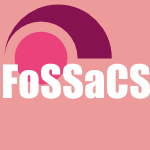 FoSSaCS-2012-CaliGOP #query #uml
FoSSaCS-2012-CaliGOP #query #uml- Querying UML Class Diagrams (AC, GG, GO, AP), pp. 1–25.
 ICLP-J-2012-Haemmerle #confluence #constraints
ICLP-J-2012-Haemmerle #confluence #constraints- Diagrammatic confluence for Constraint Handling Rules (RH), pp. 737–753.
 LICS-2012-Mellies #game studies #semantics #string
LICS-2012-Mellies #game studies #semantics #string- Game Semantics in String Diagrams (PAM), pp. 481–490.
 TAP-2012-BroschEGKSTWW #testing #towards #uml
TAP-2012-BroschEGKSTWW #testing #towards #uml- Towards Scenario-Based Testing of UML Diagrams (PB, UE, SG, GK, MS, HT, MW, MW), pp. 149–155.
 VMCAI-2012-Bugaychenko #model checking #multi #on the #probability
VMCAI-2012-Bugaychenko #model checking #multi #on the #probability- On Application of Multi-Rooted Binary Decision Diagrams to Probabilistic Model Checking (DB), pp. 104–118.
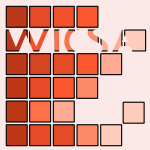 WICSA-2011-SavolainenMM #dependence #industrial
WICSA-2011-SavolainenMM #dependence #industrial- Evaluating Simple Dependency Diagrams in Industry (JS, VM, TM), pp. 224–227.
 ITiCSE-2011-Buck #editing #generative #named #user interface
ITiCSE-2011-Buck #editing #generative #named #user interface- GUIGraph: editing live object diagrams for GUI generation enables new pedagogy in CS1/2 (DB), pp. 193–197.
 ITiCSE-2011-StrieweG #automation #uml
ITiCSE-2011-StrieweG #automation #uml- Automated checks on UML diagrams (MS, MG), pp. 38–42.
 ICSM-2011-Sharif #architecture #assessment #empirical #uml
ICSM-2011-Sharif #architecture #assessment #empirical #uml- Empirical assessment of UML class diagram layouts based on architectural importance (BS), pp. 544–549.
 SCAM-2011-RoubtsovSMB #enterprise #java #named #reverse engineering #sequence chart
SCAM-2011-RoubtsovSMB #enterprise #java #named #reverse engineering #sequence chart- I2SD: Reverse Engineering Sequence Diagrams from Enterprise Java Beans with Interceptors (SAR, AS, AM, MvdB), pp. 155–164.
 RTA-2011-ZanklFM
RTA-2011-ZanklFM - Labelings for Decreasing Diagrams (HZ, BF, AM), pp. 377–392.
 SEFM-2011-GarisCR #alloy #ocl #specification #uml
SEFM-2011-GarisCR #alloy #ocl #specification #uml- Translating Alloy Specifications to UML Class Diagrams Annotated with OCL (AGG, AC, DR), pp. 221–236.
 GCM-2010-HoffmannM11 #adaptation #generative #graph
GCM-2010-HoffmannM11 #adaptation #generative #graph- Generating Instance Graphs from Class Diagrams with Adaptive Star Grammars (BH, MM).
 AGTIVE-2011-GreenyerR #automaton #concept #game studies #graph grammar #sequence chart #specification
AGTIVE-2011-GreenyerR #automaton #concept #game studies #graph grammar #sequence chart #specification- Applying Advanced TGG Concepts for a Complex Transformation of Sequence Diagram Specifications to Timed Game Automata (JG, JR), pp. 222–237.
 AGTIVE-2011-MaierM #editing #integration #layout
AGTIVE-2011-MaierM #editing #integration #layout- Integration of a Pattern-Based Layout Engine into Diagram Editors (SM, MM), pp. 89–96.
 AGTIVE-2011-StroblM #editing #generative #graph transformation #state machine
AGTIVE-2011-StroblM #editing #generative #graph transformation #state machine- Generating Graph Transformation Rules from AML/GT State Machine Diagrams for Building Animated Model Editors (TS, MM), pp. 65–80.
 GT-VMT-2011-BottoniF #specification #visual notation
GT-VMT-2011-BottoniF #specification #visual notation- A visual language for temporal specifications based on Spider diagrams (PB, AF).
 HCI-MIIE-2011-ShibuyaNM #documentation #float #mobile #performance
HCI-MIIE-2011-ShibuyaNM #documentation #float #mobile #performance- An Efficient Document Browsing Method with Floating Diagram Window on Mobile Device (YS, KN, KM), pp. 101–106.
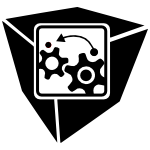 VISSOFT-2011-WalnyHDSC #development #lifecycle #sketching
VISSOFT-2011-WalnyHDSC #development #lifecycle #sketching- Follow that sketch: Lifecycles of diagrams and sketches in software development (JW, JH, MD, JS, MSTC), pp. 1–8.
 ICEIS-v2-2011-Yi
ICEIS-v2-2011-Yi - Passenger-oriented Ergonomic Ergonomic Drawing of Diagram Map for Chinese Railway Passengers’ Lines (JY), pp. 389–393.
 ICEIS-v3-2011-PapatheocharousTYA #agile #cost analysis #development #estimation #modelling #using
ICEIS-v3-2011-PapatheocharousTYA #agile #cost analysis #development #estimation #modelling #using- Cost Modeling and Estimation in Agile Software Development Environments using Influence Diagrams (EP, DT, PSY, ASA), pp. 117–127.
 KEOD-2011-KudryavtsevG #approach #modelling #ontology
KEOD-2011-KudryavtsevG #approach #modelling #ontology- Diagrammatic Knowledge Modeling for Managers — Ontology-based Approach (DK, TG), pp. 386–389.
 SEKE-2011-PossompesDHT #design #feature model #implementation #uml
SEKE-2011-PossompesDHT #design #feature model #implementation #uml- Design of a UML profile for feature diagrams and its tooling implementation (TP, CD, MH, CT), pp. 693–698.
 ICMT-J-2010-GronmoM11 #graph transformation #sequence chart #state machine #uml
ICMT-J-2010-GronmoM11 #graph transformation #sequence chart #state machine #uml- From UML 2 Sequence Diagrams to State Machines by Graph Transformation (RG, BMP), pp. 182–203.
 ECMFA-2011-GessenharterR #approach #code generation #development #modelling #process #towards #uml
ECMFA-2011-GessenharterR #approach #code generation #development #modelling #process #towards #uml- Code Generation for UML 2 Activity Diagrams — Towards a Comprehensive Model-Driven Development Approach (DG, MR), pp. 205–220.
 MoDELS-2011-BavotaGOLTGC #comprehension #identification #uml
MoDELS-2011-BavotaGOLTGC #comprehension #identification #uml- Identifying the Weaknesses of UML Class Diagrams during Data Model Comprehension (GB, CG, RO, ADL, GT, MG, JACL), pp. 168–182.
 MoDELS-2011-ElaasarL #case study #uml
MoDELS-2011-ElaasarL #case study #uml- Diagram Definition: A Case Study with the UML Class Diagram (ME, YL), pp. 364–378.
 MoDELS-2011-FeinererSS #multi
MoDELS-2011-FeinererSS #multi- Reducing Multiplicities in Class Diagrams (IF, GS, TS), pp. 379–393.
 MoDELS-2011-MaozRR #analysis #configuration management #consistency #semantics
MoDELS-2011-MaozRR #analysis #configuration management #consistency #semantics- Semantically Configurable Consistency Analysis for Class and Object Diagrams (SM, JOR, BR), pp. 153–167.
 MoDELS-2011-MaozRR11a #alloy #analysis #named #revisited #using
MoDELS-2011-MaozRR11a #alloy #analysis #named #revisited #using- CD2Alloy: Class Diagrams Analysis Using Alloy Revisited (SM, JOR, BR), pp. 592–607.
 ECOOP-2011-MaozRR #difference #named #semantics
ECOOP-2011-MaozRR #difference #named #semantics- CDDiff: Semantic Differencing for Class Diagrams (SM, JOR, BR), pp. 230–254.
 ECOOP-2011-MaozRR11a
ECOOP-2011-MaozRR11a - Modal Object Diagrams (SM, JOR, BR), pp. 281–305.
 ESEC-FSE-2011-MaozRR #difference #named #process #semantics
ESEC-FSE-2011-MaozRR #difference #named #process #semantics- ADDiff: semantic differencing for activity diagrams (SM, JOR, BR), pp. 179–189.
 ICSE-2011-HermansPD #data flow #generative #spreadsheet
ICSE-2011-HermansPD #data flow #generative #spreadsheet- Supporting professional spreadsheet users by generating leveled dataflow diagrams (FH, MP, AvD), pp. 451–460.
 SAC-2011-EbraertSJ #design #feature model #implementation
SAC-2011-EbraertSJ #design #feature model #implementation- Change-based FODA diagrams: bridging the gap between feature-oriented design and implementation (PE, QDS, DJ), pp. 1345–1352.
 SAC-2011-KimDB #dependence #identification #state machine #uml
SAC-2011-KimDB #dependence #identification #state machine #uml- Identifying properties of UML state machine diagrams that affect data and control dependence (HK, VD, DHB), pp. 1464–1469.
 SAC-2011-QueirozGRGQ #education #interactive #interface
SAC-2011-QueirozGRGQ #education #interactive #interface- Effects of scaffoldings on interactive diagram constructions in educational interface for elementary school teachers training (AEdMQ, ASG, CR, AG, SSdQ), pp. 1212–1213.
 GPCE-2011-LiNN #generative #geometry #source code
GPCE-2011-LiNN #generative #geometry #source code- Generation of geometric programs specified by diagrams (YL, GSNJ), pp. 63–72.
 DAC-2011-Stergiou #network #order #permutation
DAC-2011-Stergiou #network #order #permutation- Implicit permutation enumeration networks and binary decision diagrams reordering (SS), pp. 615–620.
 ISSTA-2011-SegallTF #combinator #design #using
ISSTA-2011-SegallTF #combinator #design #using- Using binary decision diagrams for combinatorial test design (IS, RTB, EF), pp. 254–264.
 SAT-2011-Minato #named #performance #permutation #problem
SAT-2011-Minato #named #performance #permutation #problem- πDD: A New Decision Diagram for Efficient Problem Solving in Permutation Space (SiM), pp. 90–104.
 QoSA-2010-BirkmeierO #architecture #development #empirical #process #uml #usability
QoSA-2010-BirkmeierO #architecture #development #empirical #process #uml #usability- Is BPMN Really First Choice in Joint Architecture Development? An Empirical Study on the Usability of BPMN and UML Activity Diagrams for Business Users (DB, SO), pp. 119–134.
 VLDB-2010-SharifzadehS #named #nearest neighbour #performance #query
VLDB-2010-SharifzadehS #named #nearest neighbour #performance #query- VoR-Tree: R-trees with Voronoi Diagrams for Efficient Processing of Spatial Nearest Neighbor Queries (MS, CS), pp. 1231–1242.
 WCRE-2010-GratiSP #execution #interactive #sequence chart #using #visualisation
WCRE-2010-GratiSP #execution #interactive #sequence chart #using #visualisation- Extracting Sequence Diagrams from Execution Traces Using Interactive Visualization (HG, HAS, PP), pp. 87–96.
 RTA-2010-Aoto #automation #confluence #proving
RTA-2010-Aoto #automation #confluence #proving- Automated Confluence Proof by Decreasing Diagrams based on Rule-Labelling (TA), pp. 7–16.
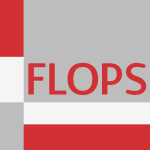 FLOPS-2010-KetemaS #bound #term rewriting #λ-calculus
FLOPS-2010-KetemaS #bound #term rewriting #λ-calculus- Least Upper Bounds on the Size of Church-Rosser Diagrams in Term Rewriting and λ-Calculus (JK, JGS), pp. 272–287.
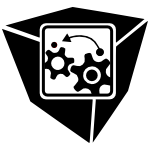 SOFTVIS-2010-Booch #developer #question #why
SOFTVIS-2010-Booch #developer #question #why- Why don’t developers draw diagrams? (GB), pp. 3–4.
 SOFTVIS-2010-FrischD #visualisation
SOFTVIS-2010-FrischD #visualisation- Off-screen visualization techniques for class diagrams (MF, RD), pp. 163–172.
 SOFTVIS-2010-KerrenJ #3d #analysis #interactive #metric #roadmap
SOFTVIS-2010-KerrenJ #3d #analysis #interactive #metric #roadmap- 3D kiviat diagrams for the interactive analysis of software metric trends (AK, IJ), pp. 203–204.
 CAiSE-2010-StalhaneSB #analysis #case study #safety #sequence chart
CAiSE-2010-StalhaneSB #analysis #case study #safety #sequence chart- Comparing Safety Analysis Based on Sequence Diagrams and Textual Use Cases (TS, GS, LdB), pp. 165–179.
 SEKE-2010-ParkHK #sequence chart #uml #verification
SEKE-2010-ParkHK #sequence chart #uml #verification- Formal Verification of UML 2.0 Sequence Diagram (SP, TH, GK), pp. 411–416.
 ECMFA-2010-KessentiniBSB #heuristic #petri net #sequence chart #using
ECMFA-2010-KessentiniBSB #heuristic #petri net #sequence chart #using- Example-Based Sequence Diagrams to Colored Petri Nets Transformation Using Heuristic Search (MK, AB, HAS, MB), pp. 156–172.
 ECMFA-2010-YueBL #approach #automation #case study #process
ECMFA-2010-YueBL #approach #automation #case study #process- An Automated Approach to Transform Use Cases into Activity Diagrams (TY, LCB, YL), pp. 337–353.
 ICMT-2010-GronmoM #graph transformation #sequence chart #state machine
ICMT-2010-GronmoM #graph transformation #sequence chart #state machine- From Sequence Diagrams to State Machines by Graph Transformation (RG, BMP), pp. 93–107.
 MoDELS-v1-2010-GronnigerRR #process #semantics #towards
MoDELS-v1-2010-GronnigerRR #process #semantics #towards- Towards a Semantics of Activity Diagrams with Semantic Variation Points (HG, DR, BR), pp. 331–345.
 SPLC-2010-CosmoZ #dependence #feature model
SPLC-2010-CosmoZ #dependence #feature model- Feature Diagrams as Package Dependencies (RDC, SZ), pp. 476–480.
 SPLC-2010-Duszynski #matrix #variability #visualisation
SPLC-2010-Duszynski #matrix #variability #visualisation- Visualizing and Analyzing Software Variability with Bar Diagrams and Occurrence Matrices (SD), pp. 481–485.
 SPLC-2010-GilKM #constraints #feature model #modelling
SPLC-2010-GilKM #constraints #feature model #modelling- Sans Constraints? Feature Diagrams vs. Feature Models (JYG, SKD, IM), pp. 271–285.
 SPLC-2010-HeuerBKLP #process #semantics #syntax #variability
SPLC-2010-HeuerBKLP #process #semantics #syntax #variability- Formal Definition of Syntax and Semantics for Documenting Variability in Activity Diagrams (AH, CJB, SK, KL, KP), pp. 62–76.
 SPLC-2010-Nakajima #automation #encoding #feature model
SPLC-2010-Nakajima #automation #encoding #feature model- Non-clausal Encoding of Feature Diagram for Automated Diagnosis (SN), pp. 420–424.
 ECOOP-2010-HermansPD #automation #spreadsheet
ECOOP-2010-HermansPD #automation #spreadsheet- Automatically Extracting Class Diagrams from Spreadsheets (FH, MP, AvD), pp. 52–75.
 SAC-2010-Nakajima #automation #feature model
SAC-2010-Nakajima #automation #feature model- Semi-automated diagnosis of FODA feature diagram (SN), pp. 2191–2197.
 DATE-2010-ChengLW #optimisation
DATE-2010-ChengLW #optimisation- Optimization of FIR filter to improve eye diagram for general transmission line systems (YSC, YCL, RBW), pp. 1321–1324.
 ICST-2010-PavlovicE #model checking
ICST-2010-PavlovicE #model checking- Model Checking PLC Software Written in Function Block Diagram (OP, HDE), pp. 439–448.
 IJCAR-2010-HirokawaM #termination
IJCAR-2010-HirokawaM #termination- Decreasing Diagrams and Relative Termination (NH, AM), pp. 487–501.
 DocEng-2009-Lumley #automation #xml
DocEng-2009-Lumley #automation #xml- Automated extensible XML tree diagrams (JWL), pp. 123–126.
 ICDAR-2009-HoangTP #image #using
ICDAR-2009-HoangTP #image #using- Extraction of Nom Text Regions from Stele Images Using Area Voronoi Diagram (TVH, ST, NYP), pp. 921–925.
 ICDAR-2009-StoffelTR #commutative #online #recognition
ICDAR-2009-StoffelTR #commutative #online #recognition- Recognition of On-Line Handwritten Commutative Diagrams (AS, ET, RR), pp. 1211–1215.
 CSEET-2009-Hai #collaboration #object-oriented #re-engineering #student
CSEET-2009-Hai #collaboration #object-oriented #re-engineering #student- The Role of Collaboration Diagrams in OO Software Engineering Student Projects (LH), pp. 93–100.
 ITiCSE-2009-ThomasWS #automation #tool support
ITiCSE-2009-ThomasWS #automation #tool support- Generalised diagram revision tools with automatic marking (PGT, KGW, NS), pp. 318–322.
 CSMR-2009-ByelasT #multi #visualisation
CSMR-2009-ByelasT #multi #visualisation- Visualizing Multivariate Attributes on Software Diagrams (HB, ACT), pp. 335–338.
 ICPC-2009-SharifM #comprehension #empirical #uml
ICPC-2009-SharifM #comprehension #empirical #uml- An empirical study on the comprehension of stereotyped UML class diagram layouts (BS, JIM), pp. 268–272.
 WCRE-1999-SerebrenikRRB99a #enterprise #java #reverse engineering #sequence chart
WCRE-1999-SerebrenikRRB99a #enterprise #java #reverse engineering #sequence chart- Reverse Engineering Sequence Diagrams for Enterprise JavaBeans with Business Method Interceptors (AS, SAR, EER, MvdB), pp. 269–273.
 ICALP-v2-2009-JouannaudO #confluence
ICALP-v2-2009-JouannaudO #confluence- Diagrammatic Confluence and Completion (JPJ, VvO), pp. 212–222.
 IFM-2009-ZeydaC
IFM-2009-ZeydaC - Mechanised Translation of Control Law Diagrams into Circus (FZ, AC), pp. 151–166.
 ICFP-2009-Piponi #commutative #monad
ICFP-2009-Piponi #commutative #monad- Commutative monads, diagrams and knots (DPP), pp. 231–232.
 GT-VMT-2009-BottoniS #adaptation #process #workflow
GT-VMT-2009-BottoniS #adaptation #process #workflow- Resource-based enactment and adaptation of workflows from activity diagrams (PB, AS), pp. 159–170.
 GT-VMT-2009-Fish
GT-VMT-2009-Fish - Euler Diagram Transformations (AF), pp. 50–66.
 GT-VMT-2009-GieseHS #flexibility #scalability
GT-VMT-2009-GieseHS #flexibility #scalability- Improved Flexibility and Scalability by Interpreting Story Diagrams (HG, SH, AS), pp. 147–158.
 GT-VMT-2009-MazanekM #editing #generative
GT-VMT-2009-MazanekM #editing #generative- Generating Correctness-Preserving Editing Operations for Diagram Editors (SM, MM), pp. 38–49.
 GT-VMT-2009-MazanekM09a #parsing #using
GT-VMT-2009-MazanekM09a #parsing #using- Contraction of Unconnected Diagrams using Least Cost Parsing (SM, MM), pp. 189–201.
 CHI-2009-YataniCJT #comprehension #development #how #open source #why
CHI-2009-YataniCJT #comprehension #development #how #open source #why- Understanding how and why open source contributors use diagrams in the development of Ubuntu (KY, EC, CJ, KNT), pp. 995–1004.
 HCI-NIMT-2009-GeigerRDKB #scalability #user interface
HCI-NIMT-2009-GeigerRDKB #scalability #user interface- A Zoomable User Interface for Presenting Hierarchical Diagrams on Large Screens (CG, HR, RD, SK, JB), pp. 791–800.
 HCI-NIMT-2009-MaierM #editing #specification
HCI-NIMT-2009-MaierM #editing #specification- Specification of a Drawing Facility for Diagram Editors (SM, MM), pp. 850–859.
 HCI-NIMT-2009-Whitman #effectiveness
HCI-NIMT-2009-Whitman #effectiveness- The Effectiveness of Interactivity in Computer-Based Instructional Diagrams (LW), pp. 899–908.
 VISSOFT-2009-SharifM #comprehension #empirical #layout #uml
VISSOFT-2009-SharifM #comprehension #empirical #layout #uml- The effect of layout on the comprehension of UML class diagrams: A controlled experiment (BS, JIM), pp. 11–18.
 CAiSE-2009-SalayM #quality #test coverage #using
CAiSE-2009-SalayM #quality #test coverage #using- Improving Model Quality Using Diagram Coverage Criteria (RS, JM), pp. 186–200.
 ICEIS-AIDSS-2009-RaimbaultGL #information management #uml #using
ICEIS-AIDSS-2009-RaimbaultGL #information management #uml #using- Using UML Class Diagram as a Knowledge Engineering Tool (TR, DG, SL), pp. 60–65.
 SEKE-2009-GratiTG #interactive #quality
SEKE-2009-GratiTG #interactive #quality- Another New Criterion to Improve the Interaction Diagrams Quality (LG, MT, FG), pp. 613–618.
 SEKE-2009-LiangKS #approach #automation #case study
SEKE-2009-LiangKS #approach #automation #case study- Automatic Class Matching to Compare Extracted Class Diagrams: Approach and Case Study (YL, NAK, RKS), pp. 268–273.
 SEKE-2009-Nakajima #feature model
SEKE-2009-Nakajima #feature model- Constructing FODA Feature Diagrams with a GUI-based Tool (SN), pp. 20–25.
 MoDELS-2009-MazanekM #editing #modelling #process
MoDELS-2009-MazanekM #editing #modelling #process- Business Process Models as a Showcase for Syntax-Based Assistance in Diagram Editors (SM, MM), pp. 322–336.
 SPLC-2009-Fernandez-AmorosGS #feature model #modelling #product line
SPLC-2009-Fernandez-AmorosGS #feature model #modelling #product line- Inferring information from feature diagrams to product line economic models (DFA, RHG, JACS), pp. 41–50.
 MoDELS-2009-MazanekM #editing #modelling #process
MoDELS-2009-MazanekM #editing #modelling #process- Business Process Models as a Showcase for Syntax-Based Assistance in Diagram Editors (SM, MM), pp. 322–336.
 TOOLS-EUROPE-2009-RutleRLW #formal method #modelling
TOOLS-EUROPE-2009-RutleRLW #formal method #modelling- A Diagrammatic Formalisation of MOF-Based Modelling Languages (AR, AR, YL, UW), pp. 37–56.
 TOOLS-EUROPE-2009-StrickerHS #constraints #design #uml #using
TOOLS-EUROPE-2009-StrickerHS #constraints #design #uml #using- Designing Design Constraints in the UML Using Join Point Designation Diagrams (VS, SH, DS), pp. 57–76.
 POPL-2009-LublinermanST #code generation #composition
POPL-2009-LublinermanST #code generation #composition- Modular code generation from synchronous block diagrams: modularity vs. code size (RL, CS, ST), pp. 78–89.
 RE-2009-GrossD #process #requirements #uml
RE-2009-GrossD #process #requirements #uml- EPC vs. UML Activity Diagram — Two Experiments Examining their Usefulness for Requirements Engineering (AG, JD), pp. 47–56.
 SAC-2009-AndradeMCNA #constraints #embedded #energy #petri net #realtime #sequence chart #uml #validation
SAC-2009-AndradeMCNA #constraints #embedded #energy #petri net #realtime #sequence chart #uml #validation- Mapping UML sequence diagram to time petri net for requirement validation of embedded real-time systems with energy constraints (ECdA, PRMM, GRdAC, BCeSN, CA), pp. 377–381.
 SAC-2009-CuiWLX #aspect-oriented #modelling #process #uml
SAC-2009-CuiWLX #aspect-oriented #modelling #process #uml- Modeling and integrating aspects with UML activity diagrams (ZC, LW, XL, DX), pp. 430–437.
 FASE-2009-JurackLMTW #process
FASE-2009-JurackLMTW #process- Object Flow Definition for Refined Activity Diagrams (SJ, LL, KM, GT, GW), pp. 49–63.
 TACAS-2009-Thierry-MiegPHK #modelling #set
TACAS-2009-Thierry-MiegPHK #modelling #set- Hierarchical Set Decision Diagrams and Regular Models (YTM, DP, AH, FK), pp. 1–15.
 ECSA-2008-DamaseviciusST #component #design #feature model #generative #metaprogramming #ontology #using
ECSA-2008-DamaseviciusST #component #design #feature model #generative #metaprogramming #ontology #using- Domain Ontology-Based Generative Component Design Using Feature Diagrams and Meta-programming Techniques (RD, VS, JT), pp. 338–341.
 ECSA-2008-ZalewskiL #architecture #modelling
ECSA-2008-ZalewskiL #architecture #modelling- Diagrammatic Modeling of Architectural Decisions (AZ, ML), pp. 350–353.
 DocEng-2008-McCormackMM #adaptation #authoring
DocEng-2008-McCormackMM #adaptation #authoring- Authoring adaptive diagrams (CLM, KM, BM), pp. 154–163.
 VLDB-2008-DDH #identification #reduction #robust
VLDB-2008-DDH #identification #reduction #robust- Identifying robust plans through plan diagram reduction (HD, PND, JRH), pp. 1124–1140.
 VLDB-2008-DeyBDH #approximate #query
VLDB-2008-DeyBDH #approximate #query- Efficiently approximating query optimizer plan diagrams (AD, SB, HD, JRH), pp. 1325–1336.
 CSMR-2008-LuciaGOT #maintenance #modelling #process #uml
CSMR-2008-LuciaGOT #maintenance #modelling #process #uml- Assessing the Support of ER and UML Class Diagrams during Maintenance Activities on Data Models (ADL, CG, RO, GT), pp. 173–182.
 ICPC-2008-LuciaGOT #comparison #comprehension #empirical #uml
ICPC-2008-LuciaGOT #comparison #comprehension #empirical #uml- Data Model Comprehension: An Empirical Comparison of ER and UML Class Diagrams (ADL, CG, RO, GT), pp. 93–102.
 WCRE-2008-AlalfiCD #database #named #relational #reverse engineering #sql #uml #xmi
WCRE-2008-AlalfiCD #database #named #relational #reverse engineering #sql #uml #xmi- SQL2XMI: Reverse Engineering of UML-ER Diagrams from Relational Database Schemas (MHA, JRC, TRD), pp. 187–191.
 WCRE-2008-ByelasT #lens #metric #visualisation
WCRE-2008-ByelasT #lens #metric #visualisation- The Metric Lens: Visualizing Metrics and Structure on Software Diagrams (HB, ACT), pp. 339–340.
 RTA-2008-LafontR #case study #matrix #orthogonal
RTA-2008-LafontR #case study #matrix #orthogonal- Diagram Rewriting for Orthogonal Matrices: A Study of Critical Peaks (YL, PR), pp. 232–245.
 RTA-2008-Oostrom #confluence
RTA-2008-Oostrom #confluence- Confluence by Decreasing Diagrams (VvO), pp. 306–320.
 GT-VMT-2006-HermannET08 #graph grammar #inheritance #sequence chart #syntax #uml
GT-VMT-2006-HermannET08 #graph grammar #inheritance #sequence chart #syntax #uml- A Typed Attributed Graph Grammar with Inheritance for the Abstract Syntax of UML Class and Sequence Diagrams (FH, HE, GT), pp. 261–269.
 GT-VMT-2008-BrielerM #ambiguity #analysis #graph grammar #sketching #syntax
GT-VMT-2008-BrielerM #ambiguity #analysis #graph grammar #sketching #syntax- Ambiguity Resolution for Sketched Diagrams by Syntax Analysis Based on Graph Grammars (FB, MM).
 GT-VMT-2008-RensinkK #graph #on the #semantics #uml
GT-VMT-2008-RensinkK #graph #on the #semantics #uml- On a Graph-Based Semantics for UML Class and Object Diagrams (AR, AK).
 SOFTVIS-2008-Eichelberger #automation #case study #layout #uml
SOFTVIS-2008-Eichelberger #automation #case study #layout #uml- Automatic layout of UML use case diagrams (HE), pp. 105–114.
 SOFTVIS-2008-FrischDB #semantics #towards #uml
SOFTVIS-2008-FrischDB #semantics #towards #uml- Towards seamless semantic zooming techniques for UML diagrams (MF, RD, TB), pp. 207–208.
 SOFTVIS-2008-XieKSDF #sequence chart
SOFTVIS-2008-XieKSDF #sequence chart- Assessing the benefits of synchronization-adorned sequence diagrams: two controlled experiments (SX, EK, REKS, LKD, SDF), pp. 9–18.
 EDOC-2008-AmeedeenB #approach #modelling #petri net #sequence chart
EDOC-2008-AmeedeenB #approach #modelling #petri net #sequence chart- A Model Driven Approach to Represent Sequence Diagrams as Free Choice Petri Nets (MAA, BB), pp. 213–221.
 ICEIS-ISAS2-2008-ShigemitsuS
ICEIS-ISAS2-2008-ShigemitsuS - Extracting Class Structure Based on Fishbone Diagrams (MS, YS), pp. 460–465.
 ICEIS-ISAS2-2008-TakakiSTIT #consistency #quality #workflow
ICEIS-ISAS2-2008-TakakiSTIT #consistency #quality #workflow- Quality Improvement of Workflow Diagrams Based on Passback Flow Consistency (OT, TS, IT, NI, KT), pp. 351–359.
 SEKE-2008-AltahatET #analysis #detection #graph transformation #interactive #uml
SEKE-2008-AltahatET #analysis #detection #graph transformation #interactive #uml- Applying Critical Pair Analysis in Graph Transformation Systems to Detect Syntactic Aspect Interaction in UML State Diagrams (ZA, TE, LT), pp. 905–911.
 SEKE-2008-DezhkamS #design
SEKE-2008-DezhkamS #design- Knowledge Transformation from Task Scenarios to View-based Design Diagrams (ND, KS), pp. 26–32.
 SEKE-2008-IlievaB #generative #natural language #representation #requirements #uml #visual notation
SEKE-2008-IlievaB #generative #natural language #representation #requirements #uml #visual notation- Representing Textual Requirements as Graphical Natural Language for UML Diagram Generation (MI, HB), pp. 478–483.
 SEKE-2008-NavarroMFC #design #web #workflow
SEKE-2008-NavarroMFC #design #web #workflow- Translating Workflow Diagrams into Web Designs (AN, JM, AFV, JC), pp. 667–672.
 ECMDA-FA-2008-OldevikH #aspect-oriented #semantics #sequence chart
ECMDA-FA-2008-OldevikH #aspect-oriented #semantics #sequence chart- Semantics Preservation of Sequence Diagram Aspects (JO, ØH), pp. 215–230.
 ICMT-2008-GronmoSMK #semantics #sequence chart #uml #weaving
ICMT-2008-GronmoSMK #semantics #sequence chart #uml #weaving- Semantics-Based Weaving of UML Sequence Diagrams (RG, FS, BMP, SK), pp. 122–136.
 MoDELS-2008-GeneroCCAIC #comprehension #empirical #sequence chart #uml
MoDELS-2008-GeneroCCAIC #comprehension #empirical #sequence chart #uml- Assessing the Influence of Stereotypes on the Comprehension of UML Sequence Diagrams: A Controlled Experiment (MG, JACL, DC, SMA, EI, JÁC), pp. 280–294.
 MoDELS-2008-GutierrezNCMR #automation #case study #process #visualisation
MoDELS-2008-GutierrezNCMR #automation #case study #process #visualisation- Visualization of Use Cases through Automatically Generated Activity Diagrams (JJG, CN, MJEC, MM, IMR), pp. 83–96.
 MoDELS-2008-JurackLMT #behaviour #consistency #modelling #process
MoDELS-2008-JurackLMT #behaviour #consistency #modelling #process- Sufficient Criteria for Consistent Behavior Modeling with Refined Activity Diagrams (SJ, LL, KM, GT), pp. 341–355.
 MoDELS-2008-McIntoshHS #3d #named #state machine #uml
MoDELS-2008-McIntoshHS #3d #named #state machine #uml- X3D-UML: 3D UML State Machine Diagrams (PM, MH, RGvS), pp. 264–279.
 MoDELS-2008-StalhaneS #case study #comparison #identification #safety
MoDELS-2008-StalhaneS #case study #comparison #identification #safety- Safety Hazard Identification by Misuse Cases: Experimental Comparison of Text and Diagrams (TS, GS), pp. 721–735.
 SPLC-2008-HartmannT #feature model #multi #product line #using #variability
SPLC-2008-HartmannT #feature model #multi #product line #using #variability- Using Feature Diagrams with Context Variability to Model Multiple Product Lines for Software Supply Chains (HH, TT), pp. 12–21.
 MoDELS-2008-GeneroCCAIC #comprehension #empirical #sequence chart #uml
MoDELS-2008-GeneroCCAIC #comprehension #empirical #sequence chart #uml- Assessing the Influence of Stereotypes on the Comprehension of UML Sequence Diagrams: A Controlled Experiment (MG, JACL, DC, SMA, EI, JÁC), pp. 280–294.
 MoDELS-2008-GutierrezNCMR #automation #case study #process #visualisation
MoDELS-2008-GutierrezNCMR #automation #case study #process #visualisation- Visualization of Use Cases through Automatically Generated Activity Diagrams (JJG, CN, MJEC, MM, IMR), pp. 83–96.
 MoDELS-2008-JurackLMT #behaviour #consistency #modelling #process
MoDELS-2008-JurackLMT #behaviour #consistency #modelling #process- Sufficient Criteria for Consistent Behavior Modeling with Refined Activity Diagrams (SJ, LL, KM, GT), pp. 341–355.
 MoDELS-2008-McIntoshHS #3d #named #state machine #uml
MoDELS-2008-McIntoshHS #3d #named #state machine #uml- X3D-UML: 3D UML State Machine Diagrams (PM, MH, RGvS), pp. 264–279.
 MoDELS-2008-StalhaneS #case study #comparison #identification #safety
MoDELS-2008-StalhaneS #case study #comparison #identification #safety- Safety Hazard Identification by Misuse Cases: Experimental Comparison of Text and Diagrams (TS, GS), pp. 721–735.
 SAC-2008-LiQWLW #consistency #interactive #java #runtime #source code #state machine #uml #verification
SAC-2008-LiQWLW #consistency #interactive #java #runtime #source code #state machine #uml #verification- UML state machine diagram driven runtime verification of Java programs for message interaction consistency (XL, XQ, LW, BL, WEW), pp. 384–389.
 SAC-2008-OsadaOKKK #metric #using
SAC-2008-OsadaOKKK #metric #using- Proposing metrics of difficulty of domain knowledge using usecase diagrams (AO, DO, NK, HK, KK), pp. 624–629.
 SAC-2008-ReynosoCGP #metric #ocl #statechart #uml #using
SAC-2008-ReynosoCGP #metric #ocl #statechart #uml #using- Formal definition of measures for UML statechart diagrams using OCL (LR, JACL, MG, MP), pp. 846–847.
 ATEM-J-2006-HeymansSTBMC #feature model
ATEM-J-2006-HeymansSTBMC #feature model- Evaluating formal properties of feature diagram languages (PH, PYS, JCT, YB, RM, AC), pp. 281–302.
 SLE-2008-MoodyH #analysis #effectiveness #syntax #uml #visual notation
SLE-2008-MoodyH #analysis #effectiveness #syntax #uml #visual notation- Evaluating the Visual Syntax of UML: An Analysis of the Cognitive Effectiveness of the UMLFamily of Diagrams (DLM, JvH), pp. 16–34.
 DATE-2008-LublinermanT #code generation #composition #reuse #usability
DATE-2008-LublinermanT #code generation #composition #reuse #usability- Modularity vs. Reusability: Code Generation from Synchronous Block Diagrams (RL, ST), pp. 1504–1509.
 CSL-2008-Curien #string
CSL-2008-Curien #string- The Joy of String Diagrams (PLC), pp. 15–22.
 ICST-2008-LeiWL #concurrent #consistency #java #nondeterminism #process #source code #testing #uml
ICST-2008-LeiWL #concurrent #consistency #java #nondeterminism #process #source code #testing #uml- UML Activity Diagram Based Testing of Java Concurrent Programs for Data Race and Inconsistency (BL, LW, XL), pp. 200–209.
 ICDAR-2007-CasellaDM #multi #recognition
ICDAR-2007-CasellaDM #multi #recognition- A Multi-Agent System for Hand-drawn Diagram Recognition (GC, VD, VM), pp. 739–743.
 ICDAR-2007-CostagliolaDR #grammarware #sketching #using
ICDAR-2007-CostagliolaDR #grammarware #sketching #using- Using Grammar-Based Recognizers for Symbol Completion in Diagrammatic Sketches (GC, VD, MR), pp. 1078–1082.
 ICDAR-2007-MasSLL #algorithm #incremental #online #parsing #sketching
ICDAR-2007-MasSLL #algorithm #incremental #online #parsing #sketching- An Incremental On-line Parsing Algorithm for Recognizing Sketching Diagrams (JM, GS, JL, BL), pp. 452–456.
 VLDB-2007-DDH #on the
VLDB-2007-DDH #on the- On the Production of Anorexic Plan Diagrams (HD, PND, JRH), pp. 1081–1092.
 ITiCSE-2007-Dickinson07a
ITiCSE-2007-Dickinson07a - “Touching the void”…: narrowing the crevasse between the tactile diagrams that tutors request and those that work in reality (AD), p. 339.
 ITiCSE-2007-ThomasSW #assessment
ITiCSE-2007-ThomasSW #assessment- Computer assisted assessment of diagrams (PGT, NS, KGW), pp. 68–72.
 ICPC-2007-XieKS #comprehension #concurrent #empirical #evaluation #interactive #sequence chart #thread #uml
ICPC-2007-XieKS #comprehension #concurrent #empirical #evaluation #interactive #sequence chart #thread #uml- Empirical Evaluation of a UML Sequence Diagram with Adornments to Support Understanding of Thread Interactions (SX, EK, REKS), pp. 123–134.
 ICPC-2007-YusufKM #comprehension #eye tracking #uml
ICPC-2007-YusufKM #comprehension #eye tracking #uml- Assessing the Comprehension of UML Class Diagrams via Eye Tracking (SY, HHK, JIM), pp. 113–122.
 SEFM-2007-DanHC #semantics #sequence chart #thread
SEFM-2007-DanHC #semantics #sequence chart #thread- A Thread-tag Based Semantics for Sequence Diagrams (HD, RMH, SC), pp. 173–182.
 SEFM-2007-Lano #interactive #specification #using
SEFM-2007-Lano #interactive #specification #using- Formal Specification using Interaction Diagrams (KL), pp. 293–304.
 SFM-2007-Ciardo #approach #data transformation #performance #representation
SFM-2007-Ciardo #approach #data transformation #performance #representation- Data Representation and Efficient Solution: A Decision Diagram Approach (GC), pp. 371–394.
 AGTIVE-2007-GronmoM #modelling #process #uml
AGTIVE-2007-GronmoM #modelling #process #uml- Aspect Diagrams for UML Activity Models (RG, BMP), pp. 329–344.
 HCI-IPT-2007-MaceA #constraints #design #editing #multi
HCI-IPT-2007-MaceA #constraints #design #editing #multi- Design of a Pen-Based Electric Diagram Editor Based on Context-Driven Constraint Multiset Grammars (SM, ÉA), pp. 418–428.
 VISSOFT-2007-KagdiM #graph #uml
VISSOFT-2007-KagdiM #graph #uml- Onion Graphs for Focus+Context Views of UML Class Diagrams (HHK, JIM), pp. 80–87.
 SEKE-2007-LimCR #automation #case study #documentation #generative #specification
SEKE-2007-LimCR #automation #case study #documentation #generative #specification- Automatic Generation of Use Case Diagrams from English Specifications Document (NRTL, CTC, JAER), pp. 203–208.
 ECMDA-FA-2007-MaraeeB #finite #performance #reasoning #satisfiability #set #uml
ECMDA-FA-2007-MaraeeB #finite #performance #reasoning #satisfiability #set #uml- Efficient Reasoning About Finite Satisfiability of UML Class Diagrams with Constrained Generalization Sets (AM, MB), pp. 17–31.
 MoDELS-2007-CabotG #contract #uml
MoDELS-2007-CabotG #contract #uml- Deriving Operation Contracts from UML Class Diagrams (JC, CG), pp. 196–210.
 MoDELS-2007-WhittleMAJER #composition #uml
MoDELS-2007-WhittleMAJER #composition #uml- An Expressive Aspect Composition Language for UML State Diagrams (JW, AMDM, JA, PKJ, AME, RR), pp. 514–528.
 SPLC-2007-BragancaM #automation #case study #feature model #modelling #product line
SPLC-2007-BragancaM #automation #case study #feature model #modelling #product line- Automating Mappings between Use Case Diagrams and Feature Models for Software Product Lines (AB, RJM), pp. 3–12.
 SPLC-2007-CzarneckiW #feature model #logic
SPLC-2007-CzarneckiW #feature model #logic- Feature Diagrams and Logics: There and Back Again (KC, AW), pp. 23–34.
 MoDELS-2007-CabotG #contract #uml
MoDELS-2007-CabotG #contract #uml- Deriving Operation Contracts from UML Class Diagrams (JC, CG), pp. 196–210.
 MoDELS-2007-WhittleMAJER #composition #uml
MoDELS-2007-WhittleMAJER #composition #uml- An Expressive Aspect Composition Language for UML State Diagrams (JW, AMDM, JA, PKJ, AME, RR), pp. 514–528.
 REFSQ-2007-Sindre #process
REFSQ-2007-Sindre #process- Mal-Activity Diagrams for Capturing Attacks on Business Processes (GS), pp. 355–366.
 SAC-MT-J-2006-AlanenLP07 #model transformation
SAC-MT-J-2006-AlanenLP07 #model transformation- Creating and reconciling diagrams after executing model transformations (MA, TL, IP), pp. 155–178.
 ASE-2007-Abi-AntounWT #consistency #data flow #implementation #modelling #security
ASE-2007-Abi-AntounWT #consistency #data flow #implementation #modelling #security- Checking threat modeling data flow diagrams for implementation conformance and security (MAA, DW, PT), pp. 393–396.
 ASE-2007-SmaragdakisCS #automation #generative #modelling #scalability #testing
ASE-2007-SmaragdakisCS #automation #generative #modelling #scalability #testing- Scalable automatic test data generation from modeling diagrams (YS, CC, RS), pp. 4–13.
 ICSE-2007-GrundyH #sketching #visual notation
ICSE-2007-GrundyH #sketching #visual notation- Supporting Generic Sketching-Based Input of Diagrams in a Domain-Specific Visual Language Meta-Tool (JCG, JGH), pp. 282–291.
 ICSE-2007-XieKS #comprehension #concept #concurrent #design #evaluation
ICSE-2007-XieKS #comprehension #concept #concurrent #design #evaluation- Design and Evaluation of a Diagrammatic Notation to Aid in the Understanding of Concurrency Concepts (SX, EK, REKS), pp. 727–731.
 SAC-2007-VignagaB #design #interactive
SAC-2007-VignagaB #design #interactive- Transforming system operations’ interactions into a design class diagram (AV, MCB), pp. 993–997.
 CASE-2007-GuoZW #automation #design #flexibility #named #state machine
CASE-2007-GuoZW #automation #design #flexibility #named #state machine- DiagramDraw: A State Machine Diagram Designer for Flexible Automation (WG, MZ, DW), pp. 352–356.
 DATE-2007-CiesielskiAGGB #data flow #using
DATE-2007-CiesielskiAGGB #data flow #using- Data-flow transformations using Taylor expansion diagrams (MJC, SA, DGP, JG, EB), pp. 455–460.
 FASE-2007-HarelKM #compilation #multi #named #sequence chart #uml
FASE-2007-HarelKM #compilation #multi #named #sequence chart #uml- S2A: A Compiler for Multi-modal UML Sequence Diagrams (DH, AK, SM), pp. 121–124.
 FASE-2007-KleinG #specification #using
FASE-2007-KleinG #specification #using- Joint Structural and Temporal Property Specification Using Timed Story Scenario Diagrams (FK, HG), pp. 185–199.
 STOC-2007-ChanP
STOC-2007-ChanP - Voronoi diagrams in n·2osqrt(lg lg n) time (TMC, MP), pp. 31–39.
 TACAS-2007-YuCL #bound #reachability #using
TACAS-2007-YuCL #bound #reachability #using- Bounded Reachability Checking of Asynchronous Systems Using Decision Diagrams (AJY, GC, GL), pp. 648–663.
 ITiCSE-2006-HigginsB #assessment
ITiCSE-2006-HigginsB #assessment- Formative computer based assessment in diagram based domains (CAH, BB), pp. 98–102.
 WCRE-2006-KorshunovaPBM #c++ #named #process #reverse engineering #sequence #source code #uml #xmi
WCRE-2006-KorshunovaPBM #c++ #named #process #reverse engineering #sequence #source code #uml #xmi- CPP2XMI: Reverse Engineering of UML Class, Sequence, and Activity Diagrams from C++ Source Code (EK, MP, MvdB, MRM), pp. 297–298.
 FM-2006-LundS #semantics #sequence chart #uml
FM-2006-LundS #semantics #sequence chart #uml- A Fully General Operational Semantics for UML 2.0 Sequence Diagrams with Potential and Mandatory Choice (MSL, KS), pp. 380–395.
 SOFTVIS-2006-ByelasT #architecture #visualisation
SOFTVIS-2006-ByelasT #architecture #visualisation- Visualization of areas of interest in software architecture diagrams (HB, ACT), pp. 105–114.
 SOFTVIS-2006-GudenbergNEE #layout #uml
SOFTVIS-2006-GudenbergNEE #layout #uml- Evolutionary layout of UML class diagrams (JWvG, AN, ME, HE), pp. 163–164.
 SOFTVIS-2006-SiebenhallerK #process
SOFTVIS-2006-SiebenhallerK #process- Drawing activity diagrams (MS, MK), pp. 159–160.
 EDOC-2006-JohnsonLNS #analysis #architecture #enterprise
EDOC-2006-JohnsonLNS #analysis #architecture #enterprise- Extended Influence Diagrams for Enterprise Architecture Analysis (PJ, RL, PN, MS), pp. 3–12.
 ECIR-2006-Tamine-LechaniB #information management #information retrieval
ECIR-2006-Tamine-LechaniB #information management #information retrieval- Influence Diagrams for Contextual Information Retrieval (LTL, MB), pp. 464–467.
 KDD-2006-LoekitoB #mining #performance #using
KDD-2006-LoekitoB #mining #performance #using- Fast mining of high dimensional expressive contrast patterns using zero-suppressed binary decision diagrams (EL, JB), pp. 307–316.
 SEKE-2006-HoipkemierKM #3d #open source #visualisation
SEKE-2006-HoipkemierKM #3d #open source #visualisation- 3D Visualization of Class Template Diagrams for Deployed Open Source Applications (BNH, NAK, BAM), pp. 232–235.
 SEKE-2006-LinWCS #case study #modelling #process #uml
SEKE-2006-LinWCS #case study #modelling #process #uml- UML and Modeling A Use Case Model and its Transformation to Activity Diagram (XYL, CHW, WCC, CS), pp. 556–561.
 SEKE-2006-MokhatiBG #approach #maude #specification #uml
SEKE-2006-MokhatiBG #approach #maude #specification #uml- Translating UML Diagrams Into Maude Formal Specifications: A Systematic Approach (FM, MB, PG), pp. 572–577.
 SEKE-2006-PiaoWCC #analysis #process #uml
SEKE-2006-PiaoWCC #analysis #process #uml- An Analysis Model of Activity Diagram in UML 2.0 (WCP, CHW, WCC, LPC), pp. 562–567.
 MoDELS-2006-AlanenLP #modelling
MoDELS-2006-AlanenLP #modelling- A Mapping Language from Models to DI Diagrams (MA, TL, IP), pp. 454–468.
 MoDELS-2006-HendricksonJH #design #process
MoDELS-2006-HendricksonJH #design #process- Layered Class Diagrams: Supporting the Design Process (SAH, BJ, AvdH), pp. 722–736.
 SPL-BOOK-2006-Engelsma #evolution #incremental #integration #multi #product line #using
SPL-BOOK-2006-Engelsma #evolution #incremental #integration #multi #product line #using- Incremental Systems Integration within Multidisciplinary Product Line Engineering Using Configuration Item Evolution Diagrams (EE), pp. 523–555.
 MoDELS-2006-AlanenLP #modelling
MoDELS-2006-AlanenLP #modelling- A Mapping Language from Models to DI Diagrams (MA, TL, IP), pp. 454–468.
 MoDELS-2006-HendricksonJH #design #process
MoDELS-2006-HendricksonJH #design #process- Layered Class Diagrams: Supporting the Design Process (SAH, BJ, AvdH), pp. 722–736.
 RE-2006-SchobbensHT #feature model #overview #semantics
RE-2006-SchobbensHT #feature model #overview #semantics- Feature Diagrams: A Survey and a Formal Semantics (PYS, PH, JCT), pp. 136–145.
 ASE-2006-ReinhardSMGM
ASE-2006-ReinhardSMGM - Human-Friendly Line Routing for Hierarchical Diagrams (TR, CS, SM, MG, NMS), pp. 273–276.
 ASE-2006-SatohKU #uml
ASE-2006-SatohKU #uml- Contradiction Finding and Minimal Recovery for UML Class Diagrams (KS, KK, TU), pp. 277–280.
 ICSE-2006-MandelinKY #approach #architecture #modelling
ICSE-2006-MandelinKY #approach #architecture #modelling- A Bayesian approach to diagram matching with application to architectural models (DM, DK, DMY), pp. 222–231.
 SAC-2006-AlanenLP #model transformation
SAC-2006-AlanenLP #model transformation- Reconciling diagrams after executing model transformations (MA, TL, IP), pp. 1267–1272.
 SAC-2006-FekihAM #specification #state machine #uml
SAC-2006-FekihAM #specification #state machine #uml- Transformation of B specifications into UML class diagrams and state machines (HF, LJBA, SM), pp. 1840–1844.
 SAC-2006-GuelfiM #framework #process #specification #uml
SAC-2006-GuelfiM #framework #process #specification #uml- A formal framework to generate XPDL specifications from UML activity diagrams (NG, AM), pp. 1224–1231.
 DATE-2006-AbdollahiP #analysis #quantum #synthesis #using
DATE-2006-AbdollahiP #analysis #quantum #synthesis #using- Analysis and synthesis of quantum circuits by using quantum decision diagrams (AA, MP), pp. 317–322.
 DATE-2006-GuillotBRCGA #performance #using
DATE-2006-GuillotBRCGA #performance #using- Efficient factorization of DSP transforms using taylor expansion diagrams (JG, EB, QR, MJC, DGP, SA), pp. 754–755.
 TACAS-2006-SiminiceanuC #metric
TACAS-2006-SiminiceanuC #metric- New Metrics for Static Variable Ordering in Decision Diagrams (RS, GC), pp. 90–104.
 CSL-2006-Mellies #string
CSL-2006-Mellies #string- Functorial Boxes in String Diagrams (PAM), pp. 1–30.
 ICDAR-2005-CostagliolaDR #sketching
ICDAR-2005-CostagliolaDR #sketching- Sketch Grammars: A Formalism for Describing and Recognizing Diagrammatic Sketch Languages (GC, VD, MR), pp. 1226–1231.
 ICDAR-2005-LuT #documentation #image
ICDAR-2005-LuT #documentation #image- Constructing Area Voronoi Diagram in Document Images (YL, CLT), pp. 342–346.
 ICDAR-2005-Szummer #learning #random
ICDAR-2005-Szummer #learning #random- Learning Diagram Parts with Hidden Random Fields (MS), pp. 1188–1193.
 VLDB-2005-ReddyH #database #query
VLDB-2005-ReddyH #database #query- Analyzing Plan Diagrams of Database Query Optimizers (NR, JRH), pp. 1228–1240.
 CSEET-2005-Cowling #approach #formal method
CSEET-2005-Cowling #approach #formal method- Translating Diagrams: A New Approach to Introducing Formal Methods (AJC), pp. 121–128.
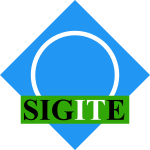 SIGITE-2005-DeLooze05a #data-driven #uml #web
SIGITE-2005-DeLooze05a #data-driven #uml #web- Minimal UML diagrams for a data-driven web site (LLD), pp. 229–232.
 CSMR-2005-BernardiL #case study #named
CSMR-2005-BernardiL #case study #named- UsCaAb: A Tool for Abstracting Use Case Diagrams (MLB, GADL), p. 194.
 CSMR-2005-YehL #database #legacy
CSMR-2005-YehL #database #legacy- Extracting Entity Relationship Diagram from a Table-Based Legacy Database (DY, YL), pp. 72–79.
 ICSM-2005-OdaS #generative #version control
ICSM-2005-OdaS #generative #version control- Generative Technique of Version Control Systems for Software Diagrams (TO, MS), pp. 515–524.
 IWPC-2005-SunW #comprehension #layout #on the #uml
IWPC-2005-SunW #comprehension #layout #on the #uml- On Evaluating the Layout of UML Class Diagrams for Program Comprehension (DS, KW), pp. 317–326.
 PASTE-2005-RountevVR #analysis #control flow #reverse engineering #sequence chart #uml
PASTE-2005-RountevVR #analysis #control flow #reverse engineering #sequence chart #uml- Static control-flow analysis for reverse engineering of UML sequence diagrams (AR, OV, MR), pp. 96–102.
 CIAA-2005-Latour #set
CIAA-2005-Latour #set- Computing Affine Hulls over Q and Z from Sets Represented by Number Decision Diagrams (LL), pp. 213–224.
 FM-2005-CavalcantiCO
FM-2005-CavalcantiCO - Control Law Diagrams in Circus (AC, PC, CO), pp. 253–268.
 IFM-2005-LamP #consistency #sequence chart #statechart #using #π-calculus
IFM-2005-LamP #consistency #sequence chart #statechart #using #π-calculus- Consistency Checking of Sequence Diagrams and Statechart Diagrams Using the π-Calculus (VSWL, JAP), pp. 347–365.
 VISSOFT-2005-AndriyevskaDSM #architecture #layout #uml
VISSOFT-2005-AndriyevskaDSM #architecture #layout #uml- Evaluating UML Class Diagram Layout based on Architectural Importance (OA, ND, BS, JIM), pp. 14–19.
 VISSOFT-2005-SharpR #interactive #sequence chart #uml
VISSOFT-2005-SharpR #interactive #sequence chart #uml- Interactive Exploration of UML Sequence Diagrams (RS, AR), pp. 8–13.
 EDOC-2005-VitolinsK #modelling #process #semantics #uml #virtual machine
EDOC-2005-VitolinsK #modelling #process #semantics #uml #virtual machine- Semantics of UML 2.0 Activity Diagram for Business Modeling by Means of Virtual Machine (VV, AK), pp. 181–194.
 ECIR-2005-CamposFH #documentation #evaluation #retrieval #strict
ECIR-2005-CamposFH #documentation #evaluation #retrieval #strict- Improving the Context-Based Influence Diagram Model for Structured Document Retrieval: Removing Topological Restrictions and Adding New Evaluation Methods (LMdC, JMFL, JFH), pp. 215–229.
 SEKE-2005-KrishnaG #concept #modelling #sequence chart #uml
SEKE-2005-KrishnaG #concept #modelling #sequence chart #uml- Combining Agent-oriented Conceptual Modelling and the UML Sequence Diagram (AK, AKG), pp. 205–210.
 SEKE-2005-OgameKH #uml
SEKE-2005-OgameKH #uml- Inspection Support System for UML Diagram (YO, TK, AH), pp. 408–411.
 SEKE-2005-ZhouL #approach
SEKE-2005-ZhouL #approach- Measuring Class Cohesion: A Causality Diagram Based Approach (YZ, HKNL), pp. 767–771.
 ECMDA-FA-2005-GarousiBL #analysis #control flow #sequence chart #uml
ECMDA-FA-2005-GarousiBL #analysis #control flow #sequence chart #uml- Control Flow Analysis of UML 2.0 Sequence Diagrams (VG, LCB, YL), pp. 160–174.
 MoDELS-2005-Cruz-LemusGMP #statechart #uml
MoDELS-2005-Cruz-LemusGMP #statechart #uml- Evaluating the Effect of Composite States on the Understandability of UML Statechart Diagrams (JACL, MG, MEM, MP), pp. 113–125.
 MoDELS-2005-DeublerMRK #modelling #sequence chart #uml
MoDELS-2005-DeublerMRK #modelling #sequence chart #uml- Modeling Crosscutting Services with UML Sequence Diagrams (MD, MM, SR, IK), pp. 522–536.
 MoDELS-2005-ForsterES #constraints #modelling #process #quality
MoDELS-2005-ForsterES #constraints #modelling #process #quality- Activity Diagram Patterns for Modeling Quality Constraints in Business Processes (AF, GE, TS), pp. 2–16.
 MoDELS-2005-MarkovicB #ocl #refactoring #uml
MoDELS-2005-MarkovicB #ocl #refactoring #uml- Refactoring OCL Annotated UML Class Diagrams (SM, TB), pp. 280–294.
 MoDELS-2005-Cruz-LemusGMP #statechart #uml
MoDELS-2005-Cruz-LemusGMP #statechart #uml- Evaluating the Effect of Composite States on the Understandability of UML Statechart Diagrams (JACL, MG, MEM, MP), pp. 113–125.
 MoDELS-2005-DeublerMRK #modelling #sequence chart #uml
MoDELS-2005-DeublerMRK #modelling #sequence chart #uml- Modeling Crosscutting Services with UML Sequence Diagrams (MD, MM, SR, IK), pp. 522–536.
 MoDELS-2005-ForsterES #constraints #modelling #process #quality
MoDELS-2005-ForsterES #constraints #modelling #process #quality- Activity Diagram Patterns for Modeling Quality Constraints in Business Processes (AF, GE, TS), pp. 2–16.
 MoDELS-2005-MarkovicB #ocl #refactoring #uml
MoDELS-2005-MarkovicB #ocl #refactoring #uml- Refactoring OCL Annotated UML Class Diagrams (SM, TB), pp. 280–294.
 ECOOP-2005-LamP #consistency #statechart
ECOOP-2005-LamP #consistency #statechart- Consistency Checking of Statechart Diagrams of a Class Hierarchy (VSWL, JAP), pp. 412–427.
 ASE-2005-MehraGH #approach #collaboration #design #difference
ASE-2005-MehraGH #approach #collaboration #design #difference- A generic approach to supporting diagram differencing and merging for collaborative design (AM, JCG, JGH), pp. 204–213.
 ASE-2005-Milanova #composition #identification #precise #uml
ASE-2005-Milanova #composition #identification #precise #uml- Precise identification of composition relationships for UML class diagrams (AM), pp. 76–85.
 ESEC-FSE-2005-BakerBJKTMB #detection #semantics #sequence chart #uml
ESEC-FSE-2005-BakerBJKTMB #detection #semantics #sequence chart #uml- Detecting and resolving semantic pathologies in UML sequence diagrams (PB, PB, CJ, DJK, RT, BM, SB), pp. 50–59.
 ICSE-2005-RountevC #analysis #sequence chart
ICSE-2005-RountevC #analysis #sequence chart- Object naming analysis for reverse-engineered sequence diagrams (AR, BHC), pp. 254–263.
 SAC-2005-UpadhyayaK #named #ontology
SAC-2005-UpadhyayaK #named #ontology- ERONTO: a tool for extracting ontologies from extended E/R diagrams (SRU, PSK), pp. 666–670.
 SAC-2005-ZhouX #approach #complexity
SAC-2005-ZhouX #approach #complexity- Measuring structural complexity for class diagrams: an information theory approach (YZ, BX), pp. 1679–1683.
 FASE-2005-RountevKS #interactive #sequence chart #test coverage #testing
FASE-2005-RountevKS #interactive #sequence chart #test coverage #testing- Coverage Criteria for Testing of Object Interactions in Sequence Diagrams (AR, SK, JS), pp. 289–304.
 LICS-2005-Leroux #polynomial #synthesis
LICS-2005-Leroux #polynomial #synthesis- A Polynomial Time Presburger Criterion and Synthesis for Number Decision Diagrams (JL), pp. 147–156.
 TestCom-2005-LiL #anti #thread #uml #using
TestCom-2005-LiL #anti #thread #uml #using- Using Anti-Ant-like Agents to Generate Test Threads from the UML Diagrams (HL, CPL), pp. 69–80.
 ICSM-2004-Gueheneuc #precise #uml
ICSM-2004-Gueheneuc #precise #uml- Abstract and Precise Recovery of UML Diagram Constituents (YGG), p. 523.
 IWPC-2004-HammoudaGKS #learning #modelling #uml
IWPC-2004-HammoudaGKS #learning #modelling #uml- Tool-Supported Customization of UML Class Diagrams for Learning Complex System Models (IH, OG, KK, TS), pp. 24–33.
 IWPC-2004-Torchiano #assessment #empirical #uml
IWPC-2004-Torchiano #assessment #empirical #uml- Empirical Assessment of UML Static Object Diagrams (MT), pp. 226–230.
 IFM-2004-PickinJ #sequence chart #uml #using
IFM-2004-PickinJ #sequence chart #uml #using- Using UML Sequence Diagrams as the Basis for a Formal Test Description Language (SP, JMJ), pp. 481–500.
 ICEIS-v2-2004-MuesHVB #using #visualisation
ICEIS-v2-2004-MuesHVB #using #visualisation- Comprehensible Credit-Scoring Knowledge Visualization Using Decision Tables and Diagrams (CM, JH, JV, BB), pp. 226–232.
 ICEIS-v3-2004-AliBG #dependence #uml #verification
ICEIS-v3-2004-AliBG #dependence #uml #verification- UML Model Verification Through Diagram Dependency Relationships (MA, HBA, FG), pp. 184–191.
 ICEIS-v3-2004-BonacinBL #analysis #design #ontology #semantics
ICEIS-v3-2004-BonacinBL #analysis #design #ontology #semantics- From Ontology Charts to Class Diagrams: Semantic Analysis Aiding Systems Design (RB, MCCB, KL), pp. 389–395.
 ICEIS-v4-2004-KangT #mobile #modelling #process #uml
ICEIS-v4-2004-KangT #mobile #modelling #process #uml- Modelling Mobile Agent Applications by Extended UML Activity Diagram (MK, KT), pp. 519–522.
 SEKE-2004-Cruz-LemusGORP #fuzzy #predict #statechart #uml #using
SEKE-2004-Cruz-LemusGORP #fuzzy #predict #statechart #uml #using- Predicting UML Statechart Diagrams Understandability Using Fuzzy Logic-Based Techniques (JACL, MG, JAO, FPR, MP), pp. 238–245.
 SEKE-2004-GomesPCPSFB #composition #reuse #uml #using
SEKE-2004-GomesPCPSFB #composition #reuse #uml #using- Reuse of UML Class Diagrams Using Case-Based Composition (PG, FCP, PC, PP, NS, JLF, CB), pp. 258–263.
 SEKE-2004-HuS #petri net #simulation #uml
SEKE-2004-HuS #petri net #simulation #uml- Mapping UML Diagrams to a Petri Net Notation for System Simulation (ZH, SMS), pp. 213–219.
 UML-2004-DologN #collaboration #feature model #modelling #uml #using
UML-2004-DologN #collaboration #feature model #modelling #uml #using- Using UML-based Feature Models and UML Collaboration Diagrams to Information Modelling for Web-Based Applications (PD, WN), pp. 425–439.
 PLDI-2004-WhaleyL #alias #analysis #pointer #using
PLDI-2004-WhaleyL #alias #analysis #pointer #using- Cloning-based context-sensitive pointer alias analysis using binary decision diagrams (JW, MSL), pp. 131–144.
 RE-2004-KaiyaOK #case study #identification
RE-2004-KaiyaOK #case study #identification- Identifying Stakeholders and Their Preferences about NFR by Comparing Use Case Diagrams of Several Existing Systems (HK, AO, KK), pp. 112–121.
 SAC-J-2003-Dong04 #behaviour
SAC-J-2003-Dong04 #behaviour- Adding pattern related information in structural and behavioral diagrams (JD), pp. 293–300.
 ASE-2004-KonradCC #analysis #automation #uml
ASE-2004-KonradCC #analysis #automation #uml- Automated Analysis of Timing Information in UML Diagrams (SK, LAC, BHCC), pp. 350–353.
 ICSE-2004-ZhangGZ #dynamic analysis #order #performance #slicing #using
ICSE-2004-ZhangGZ #dynamic analysis #order #performance #slicing #using- Efficient Forward Computation of Dynamic Slices Using Reduced Ordered Binary Decision Diagrams (XZ, RG, YZ), pp. 502–511.
 ATEM-2003-MengW04
ATEM-2003-MengW04 - A GXL Schema for Story Diagrams (CM, KW), pp. 29–38.
 DATE-v2-2004-JabirP #multi #named #representation
DATE-v2-2004-JabirP #multi #named #representation- MODD: A New Decision Diagram and Representation for Multiple Output Binary Functions (AMJ, DKP), pp. 1388–1389.
 FASE-2004-Egyed #adaptation #consistency #evolution #refinement
FASE-2004-Egyed #adaptation #consistency #evolution #refinement- Consistent Adaptation and Evolution of Class Diagrams during Refinement (AE), pp. 37–53.
 IJCAR-2004-WintersteinBG #proving #theorem proving
IJCAR-2004-WintersteinBG #proving #theorem proving- Dr.Doodle: A Diagrammatic Theorem Prover (DW, AB, CAG), pp. 331–335.
 ICDAR-2003-FutrelleSCG #analysis #classification #documentation #layout
ICDAR-2003-FutrelleSCG #analysis #classification #documentation #layout- Extraction, layout analysis and classification of diagrams in PDF documents (RPF, MS, CC, AEG), pp. 1007–1014.
 ICDAR-2003-Lank #framework #interactive #recognition
ICDAR-2003-Lank #framework #interactive #recognition- A Retargetable Framework for Interactive Diagram Recognition (EL), pp. 185–189.
 ICSM-2003-TonellaP #c++ #interactive #reverse engineering
ICSM-2003-TonellaP #c++ #interactive #reverse engineering- Reverse Engineering of the Interaction Diagrams from C++ Code (PT, AP), pp. 159–168.
 WCRE-2003-BriandLM #reverse engineering #sequence chart #towards #uml
WCRE-2003-BriandLM #reverse engineering #sequence chart #towards #uml- Towards the Reverse Engineering of UML Sequence Diagrams (LCB, YL, YM), pp. 57–66.
 RTA-2003-WellsPK
RTA-2003-WellsPK - Diagrams for Meaning Preservation (JBW, DP, FK), pp. 88–106.
 SEFM-2003-LitvakTY #behaviour #consistency #uml #validation
SEFM-2003-LitvakTY #behaviour #consistency #uml #validation- Behavioral Consistency Validation of UML Diagrams (BL, SST, AY), pp. 118–125.
 SEFM-2003-NgB #csp #formal method #towards #uml
SEFM-2003-NgB #csp #formal method #towards #uml- Towards Formalizing UML State Diagrams in CSP (MYN, MJB), p. 138–?.
 AGTIVE-2003-CordesHK #collaboration #interactive #sequence chart #uml
AGTIVE-2003-CordesHK #collaboration #interactive #sequence chart #uml- UML Interaction Diagrams: Correct Translation of Sequence Diagrams into Collaboration Diagrams (BC, KH, HJK), pp. 275–291.
 AGTIVE-2003-FishH #constraints
AGTIVE-2003-FishH #constraints- Computing Reading Trees for Constraint Diagrams (AF, JH), pp. 260–274.
 SOFTVIS-2003-Eichelberger #design #question
SOFTVIS-2003-Eichelberger #design #question- Nice Class Diagrams Admit Good Design? (HE), pp. 159–167.
 SOFTVIS-2003-EiglspergerKS #approach #automation #layout #uml
SOFTVIS-2003-EiglspergerKS #approach #automation #layout #uml- A Topology-Shape-Metrics Approach for the Automatic Layout of UML Class Diagram (ME, MK, MS), pp. 189–198.
 SOFTVIS-2003-GutwengerJKKLM #approach #uml #visualisation
SOFTVIS-2003-GutwengerJKKLM #approach #uml #visualisation- A New Approach for Visualizing UML Class Diagrams (CG, MJ, KK, JK, SL, PM), pp. 179–188.
 VISSOFT-2003-EichelbergerG #layout #state of the art #uml
VISSOFT-2003-EichelbergerG #layout #state of the art #uml- UML Class Diagrams – State of the Art in Layout Techniques (HE, JWvG), pp. 30–34.
 VISSOFT-2003-EichelbergerW #layout #uml
VISSOFT-2003-EichelbergerW #layout #uml- Demonstration of Advanced Layout of UML Class Diagrams by SugiBib (HE, JW), pp. 58–59.
 CAiSE-2003-GeneroP #complexity #metric #uml
CAiSE-2003-GeneroP #complexity #metric #uml- No-redundant Metrics for UML Class Diagram Structural Complexity (MEM, MG, MP), pp. 127–142.
 ICEIS-v1-2003-MirandaGP #empirical #metric #statechart #uml #validation
ICEIS-v1-2003-MirandaGP #empirical #metric #statechart #uml #validation- Empirical Validation of Metrics for UML Statechart Diagrams (DM, MG, MP), pp. 87–95.
 ICEIS-v3-2003-Ramos #constraints #relational #uml
ICEIS-v3-2003-Ramos #constraints #relational #uml- Deontic Constraints: From UML Class Diagram to Relational Model (PR0), pp. 424–432.
 SEKE-2003-DongFH #statechart
SEKE-2003-DongFH #statechart- Deriving Hierarchical Predicate/Transition Nets from Statechart Diagrams (ZD, YF, XH), pp. 150–157.
 SEKE-2003-DongY #design pattern #uml #visualisation
SEKE-2003-DongY #design pattern #uml #visualisation- Extending UML to Visualize Design Patterns In Class Diagrams (JD, SY), pp. 124–131.
 SEKE-2003-GomesPPSCFB03a #reuse #uml #using
SEKE-2003-GomesPPSCFB03a #reuse #uml #using- Case-Based Reuse of UML Diagrams (PG, FCP, PP, NS, PC, JLF, CB), pp. 335–339.
 ASE-2003-TurnerGWBHSR #consistency #constraints #implementation #modelling #runtime #uml #visual notation
ASE-2003-TurnerGWBHSR #consistency #constraints #implementation #modelling #runtime #uml #visual notation- Visual Constraint Diagrams: Runtime Conformance Checking of UML Object Models versus Implementations (CJT, TCNG, CW, JB, DH, HDS, AGR), pp. 271–276.
 ESEC-FSE-2003-OhstWK #difference #uml
ESEC-FSE-2003-OhstWK #difference #uml- Differences between versions of UML diagrams (DO, MW, UK), pp. 227–236.
 ICSE-2003-RayC #architecture #interactive #modelling
ICSE-2003-RayC #architecture #interactive #modelling- Architectural Interaction Diagrams: AIDs for System Modeling (AR, RC), pp. 396–407.
 FASE-2003-AttiogbePS #data type #integration
FASE-2003-AttiogbePS #data type #integration- Integration of Formal Datatypes within State Diagrams (CA, PP, GS), pp. 341–355.
 FASE-2003-PennaMIMP #named #towards #xml
FASE-2003-PennaMIMP #named #towards #xml- Xere: Towards a Natural Interoperability between XML and ER Diagrams (GDP, ADM, BI, IM, AP), pp. 356–371.
 FASE-2003-TenzerS #modelling #recursion #uml
FASE-2003-TenzerS #modelling #recursion #uml- Modelling Recursive Calls with UML State Diagrams (JT, PS), pp. 135–149.
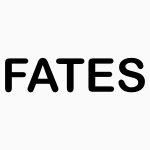 FATES-2003-BadriBN #approach #case study #collaboration #formal method #process #testing #towards #uml
FATES-2003-BadriBN #approach #case study #collaboration #formal method #process #testing #towards #uml- A Use Case Driven Testing Process: Towards a Formal Approach Based on UML Collaboration Diagrams (MB, LB, MN), pp. 223–235.
 CSMR-2002-KollmannG #representation #uml
CSMR-2002-KollmannG #representation #uml- Metric-Based Selective Representation of UML Diagrams (RK, MG), pp. 89–98.
 ICSM-2002-MilanovaRR #precise
ICSM-2002-MilanovaRR #precise- Constructing Precise Object Relation Diagrams (AM, AR, BGR), pp. 586–595.
 ICSM-2002-TonellaP #analysis #c++
ICSM-2002-TonellaP #analysis #c++- Static and Dynamic C++ Code Analysis for the Recovery of the Object Diagram (PT, AP), pp. 54–63.
 IWPC-2002-BurdOW #animation #comprehension #sequence chart #using
IWPC-2002-BurdOW #animation #comprehension #sequence chart #using- Evaluating Using Animation to Improve Understanding of Sequence Diagrams (EB, DO, AW), pp. 107–113.
 IFM-2002-KuskeGKK #graph transformation #semantics #uml
IFM-2002-KuskeGKK #graph transformation #semantics #uml- An Integrated Semantics for UML Class, Object and State Diagrams Based on Graph Transformation (SK, MG, RK, HJK), pp. 11–28.
 ICGT-2002-MinasS
ICGT-2002-MinasS - Unparsing of Diagrams with DiaGen (MM, FS), pp. 302–316.
 VISSOFT-2002-Eichelberger
VISSOFT-2002-Eichelberger - Aesthetics of Class Diagrams (HE), pp. 23–31.
 VISSOFT-2002-PurchaseCMC #collaboration #comprehension #empirical #syntax #uml
VISSOFT-2002-PurchaseCMC #collaboration #comprehension #empirical #syntax #uml- UML Collaboration Diagram Syntax: An Empirical Study of Comprehension (HCP, LC, MM, DAC), pp. 13–22.
 CAiSE-2002-AoumeurS #behaviour #logic #prototype #uml #using
CAiSE-2002-AoumeurS #behaviour #logic #prototype #uml #using- Integrating and Rapid-Prototyping UML Structural and Behavioural Diagrams Using Rewriting Logic (NA, GS), pp. 296–310.
 ICPR-v3-2002-BlosteinCZ #compilation #recognition
ICPR-v3-2002-BlosteinCZ #compilation #recognition- Applying Compiler Techniques to Diagram Recognition (DB, JRC, RZ), pp. 123–126.
 UML-2002-BogerJMF #uml
UML-2002-BogerJMF #uml- Diagram Interchange for UML (MB, MJ, SM, JF), pp. 398–411.
 ASE-2002-FraikinL #named #sequence chart #testing
ASE-2002-FraikinL #named #sequence chart #testing- SeDiTeC — Testing Based on Sequence Diagrams (FF, TL), pp. 261–266.
 DATE-2002-CiesielskiKZR #canonical #representation #verification
DATE-2002-CiesielskiKZR #canonical #representation #verification- Taylor Expansion Diagrams: A Compact, Canonical Representation with Applications to Symbolic Verification (MJC, PK, ZZ, BR), pp. 285–289.
 STOC-2002-AryaMM #approximate
STOC-2002-AryaMM #approximate- Space-efficient approximate Voronoi diagrams (SA, TM, DMM), pp. 721–730.
 ISSTA-2002-LatellaM #behaviour #consistency #on the #statechart #testing #uml
ISSTA-2002-LatellaM #behaviour #consistency #on the #statechart #testing #uml- On testing and conformance relations for UML statechart diagrams behaviours (DL, MM), pp. 144–153.
 ICDAR-2001-LankTCB #online #recognition #uml
ICDAR-2001-LankTCB #online #recognition #uml- On-Line Recognition of UML Diagrams (EL, JST, SC, DB), pp. 356–360.
 ICDAR-2001-ValoisCC #online #recognition #sketching
ICDAR-2001-ValoisCC #online #recognition #sketching- Online Recognition of Sketched Electrical Diagrams (JPV, MC, MC), pp. 460–464.
 CSMR-2001-KollmannG #behaviour #collaboration #uml
CSMR-2001-KollmannG #behaviour #collaboration #uml- Capturing Dynamic Program Behaviour with UML Collaboration Diagrams (RK, MG), pp. 58–67.
 ICSM-2001-TonellaP #c++ #reverse engineering #uml
ICSM-2001-TonellaP #c++ #reverse engineering #uml- Reverse Engineering of the UML Class Diagram from C++ Code in Presence of Weakly Typed Containers (PT, AP), pp. 376–385.
 GT-VMT-2001-KothM #abstraction #editing
GT-VMT-2001-KothM #abstraction #editing- Abstraction in Graph-Transformation Based Diagram Editors (OK, MM), pp. 295–301.
 GT-VMT-2001-Tsiolakis #sequence chart #uml
GT-VMT-2001-Tsiolakis #sequence chart #uml- Integrating Model Information in UML Sequence Diagrams (AT), pp. 266–274.
 SVIS-2001-OechsleS #automation #debugging #interface #java #named #sequence chart #using #visualisation
SVIS-2001-OechsleS #automation #debugging #interface #java #named #sequence chart #using #visualisation- JAVAVIS: Automatic Program Visualization with Object and Sequence Diagrams Using the Java Debug Interface (JDI) (RO, TS), pp. 176–190.
 ICEIS-v2-2001-AraujoM #uml
ICEIS-v2-2001-AraujoM #uml- Handling Mutual Exclusion in UML Class Diagrams (JA, AMDM), pp. 659–666.
 ICEIS-v2-2001-ShishkovD #analysis #case study #modelling #process
ICEIS-v2-2001-ShishkovD #analysis #case study #modelling #process- Analysis of Suitability, Appropriateness and Adequacy of Use Cases Combined with Activity Diagram for Business Systems Modelling (BS, JLGD), pp. 854–858.
 SEKE-2001-GeneroOPR #information management #maintenance #predict
SEKE-2001-GeneroOPR #information management #maintenance #predict- Knowledge Discovery For Predicting Entity Relationship Diagram Maintainability (MG, JAO, MP, FPR), pp. 203–211.
 UML-2001-DumasH #process #specification #uml #workflow
UML-2001-DumasH #process #specification #uml #workflow- UML Activity Diagrams as a Workflow Specification Language (MD, AHMtH), pp. 76–90.
 UML-2001-LatronicoK #embedded #formal method #representation #sequence chart
UML-2001-LatronicoK #embedded #formal method #representation #sequence chart- Representing Embedded System Sequence Diagrams as a Formal Language (EL, PK), pp. 302–316.
 UML-2001-XuandongMYJG #analysis #process #uml
UML-2001-XuandongMYJG #analysis #process #uml- Timing Analysis of UML Activity Diagrams (XL, CM, YP, JZ, GZ), pp. 62–75.
 TOOLS-USA-2001-SelonenSK #generative #implementation #sequence chart #uml
TOOLS-USA-2001-SelonenSK #generative #implementation #sequence chart #uml- Generating Structured Implementation Schemes from UML Sequence Diagrams (PS, TS, KK), pp. 317–330.
 ASE-2001-AlurG #interactive
ASE-2001-AlurG #interactive- Shared Variables Interaction Diagrams (RA, RG), pp. 281–288.
 ASE-2001-LedangS #behaviour #modelling #uml
ASE-2001-LedangS #behaviour #modelling #uml- Modeling Class Operations in B: Application to UML Behavioral Diagrams (HL, JS), pp. 289–296.
 ICSE-2001-Campbell #analysis #uml #visualisation
ICSE-2001-Campbell #analysis #uml #visualisation- Visualizaiton an Interpretation of Analysis Results within the Context of Formalized UML Diagrams (LAC), pp. 785–786.
 ICSE-2001-Dong #modelling
ICSE-2001-Dong #modelling- State, Event, Time and Diagram in System Modeling (JSD), pp. 733–734.
 ICSE-2001-MenziesPH #analysis #formal method #performance #requirements
ICSE-2001-MenziesPH #analysis #formal method #performance #requirements- Fast Formal Analysis of Requirements via “Topoi Diagrams” (TM, JDP, MEH), pp. 391–400.
 DATE-2001-LiuWHL
DATE-2001-LiuWHL - Binary decision diagram with minimum expected path length (YYL, KHW, TH, CLL), pp. 708–712.
 DATE-2001-RedaS #equivalence #satisfiability #using
DATE-2001-RedaS #equivalence #satisfiability #using- Combinational equivalence checking using Boolean satisfiability and binary decision diagrams (SR, AS), pp. 122–126.
 DATE-2001-ThorntonD #graph transformation #using
DATE-2001-ThorntonD #graph transformation #using- Spectral decision diagrams using graph transformations (MAT, RD), pp. 713–719.
 DATE-2001-UbarJP #simulation
DATE-2001-UbarJP #simulation- Timing simulation of digital circuits with binary decision diagrams (RU, AJ, ZP), pp. 460–466.
 FASE-2001-EshuisW #execution #process #realtime #semantics #uml
FASE-2001-EshuisW #execution #process #realtime #semantics #uml- A Real-Time Execution Semantics for UML Activity Diagrams (RE, RW), pp. 76–90.
 FASE-2001-FischerOW #csp #uml
FASE-2001-FischerOW #csp #uml- A CSP View on UML-RT Structure Diagrams (CF, ERO, HW), pp. 91–108.
 FASE-2001-HeckelS #collaboration #uml
FASE-2001-HeckelS #collaboration #uml- Strengthening UML Collaboration Diagrams by State Transformations (RH, SS), pp. 109–123.
 STOC-2001-IckingM #3d #bound #complexity #distance
STOC-2001-IckingM #3d #bound #complexity #distance- A tight bound for the complexity of voroni diagrams under polyhedral convex distance functions in 3D (CI, LM), pp. 316–321.
 TACAS-2001-AmlaENT #composition #reasoning
TACAS-2001-AmlaENT #composition #reasoning- Assume-Guarantee Based Compositional Reasoning for Synchronous Timing Diagrams (NA, EAE, KSN, RJT), pp. 465–479.
 TACAS-2001-WilliamsAH #satisfiability #using
TACAS-2001-WilliamsAH #satisfiability #using- Satisfiability Checking Using Boolean Expression Diagrams (PFW, HRA, HH), pp. 39–51.
 CAV-2001-AmlaEKN #model checking #named #performance
CAV-2001-AmlaEKN #model checking #named #performance- Rtdt: A Front-End for Efficient Model Checking of Synchronous Timing Diagrams (NA, EAE, RPK, KSN), pp. 387–390.
 ICSM-2000-LuccaFC #data-driven #legacy
ICSM-2000-LuccaFC #data-driven #legacy- Recovering Class Diagrams from Data-Intensive Legacy Systems (GADL, ARF, UdC), pp. 52–63.
 WCRE-2000-HendrixCM #validation
WCRE-2000-HendrixCM #validation- An Experimental Validation of Control Structure Diagrams (TDH, JHCI, SM), p. 224–?.
 IFM-2000-CansellMM #verification
IFM-2000-CansellMM #verification- Predicate Diagrams for the Verification of Reactive Systems (DC, DM, SM), pp. 380–397.
 IFM-2000-FischerC #dependence #formal method #verification
IFM-2000-FischerC #dependence #formal method #verification- Formalizing Timing Diagrams as Causal Dependencies for Verification Purposes (JF, SC), pp. 45–60.
 CHI-2000-KoikeSKTK #interactive #interface
CHI-2000-KoikeSKTK #interactive #interface- Interactive textbook and interactive Venn diagram: natural and intuitive interfaces on augmented desk system (HK, YS, YK, HT, MK), pp. 121–128.
 ICEIS-2000-Bosilj-VuksicGH #modelling #petri net #process
ICEIS-2000-Bosilj-VuksicGH #modelling #petri net #process- IDEF Diagrams and Petri Nets for Business Process Modelling: Suitability, Efficacy, and Complementary Use (VBV, GMG, VH), pp. 242–247.
 ICEIS-2000-Morand #abduction #approach #process #representation
ICEIS-2000-Morand #abduction #approach #process #representation- Representation Process and Abductive Reasoning-An Experimental Approach of the Diagrammatic Case (BM), pp. 322–326.
 ICPR-v3-2000-Rocha #composition #performance
ICPR-v3-2000-Rocha #composition #performance- Efficient Polygonal Decomposition into Singular and Regular Regions via Voronoi Diagrams (JR), pp. 3770–3773.
 UML-2000-AbdurazikO #collaboration #generative #static analysis #testing #uml #using
UML-2000-AbdurazikO #collaboration #generative #static analysis #testing #uml #using- Using UML Collaboration Diagrams for Static Checking and Test Generation (AA, AJO), pp. 383–395.
 UML-2000-EngelsHHS #approach #behaviour #metamodelling #modelling #semantics #uml #visual notation
UML-2000-EngelsHHS #approach #behaviour #metamodelling #modelling #semantics #uml #visual notation- Dynamic Meta Modeling: A Graphical Approach to the Operational Semantics of Behavioral Diagrams in UML (GE, JHH, RH, SS), pp. 323–337.
 UML-2000-FelfernigJZ #design #knowledge base #uml
UML-2000-FelfernigJZ #design #knowledge base #uml- Contextual Diagrams as Structuring Mechanisms for Designing Configuration Knowledge Bases in UML (AF, DJ, MZ), pp. 240–254.
 UML-2000-GraubmannR #case study #modelling #sequence chart #testing
UML-2000-GraubmannR #case study #modelling #sequence chart #testing- HyperMSCs and Sequence Diagrams for Use Case Modelling and Testing (PG, ER), pp. 32–46.
 UML-2000-Padawitz #constraints #how #proving #state machine #theorem proving #uml
UML-2000-Padawitz #constraints #how #proving #state machine #theorem proving #uml- Swinging UML: How to Make Class Diagrams and State Machines Amenable to Constraint Solving and Proving (PP), pp. 162–177.
 UML-2000-PetriuS #behaviour #consistency #process #representation #sequence chart
UML-2000-PetriuS #behaviour #consistency #process #representation #sequence chart- Consistent Behaviour Representation in Activity and Sequence Diagrams (DCP, YS), pp. 369–382.
 UML-2000-VilainSS #interactive #representation #uml
UML-2000-VilainSS #interactive #representation #uml- A Diagrammatic Tool for Representing User Interaction in UML (PV, DS, CSdS), pp. 133–147.
 UML-2000-WegmannG #case study
UML-2000-WegmannG #case study- The Roles of “Roles” in Use Case Diagrams (AW, GG), pp. 210–224.
 TOOLS-EUROPE-2000-KleppeW #object-oriented #process #uml
TOOLS-EUROPE-2000-KleppeW #object-oriented #process #uml- Making UML Activity Diagrams Object-Oriented (AK, JW), pp. 288–299.
 ASE-2000-Egyed #abstraction #semantics
ASE-2000-Egyed #abstraction #semantics- Semantic Abstraction Rules for Class Diagrams (AE), pp. 301–304.
 ASE-2000-Li #case study #sequence chart
ASE-2000-Li #case study #sequence chart- Translating Use Cases to Sequence Diagrams (LL), pp. 293–296.
 ICSE-2000-GurrT #design #re-engineering #towards
ICSE-2000-GurrT #design #re-engineering #towards- Towards the principled design of software engineering diagrams (CAG, KT), pp. 509–518.
 ICSE-2000-KohlerNNZ #uml
ICSE-2000-KohlerNNZ #uml- Integrating UML diagrams for production control systems (HJK, UN, JN, AZ), pp. 241–251.
 ICSE-2000-Rifkin #precedence
ICSE-2000-Rifkin #precedence- When the project absolutely must get done: marrying the organization chart with the precedence diagram (SR), pp. 588–596.
 DAC-2000-GhoshF #automation #functional #generative #using
DAC-2000-GhoshF #automation #functional #generative #using- Automatic test pattern generation for functional RTL circuits using assignment decision diagrams (IG, MF), pp. 43–48.
 DAC-2000-PiS #analysis #approach #multi
DAC-2000-PiS #analysis #approach #multi- Multi-terminal determinant decision diagrams: a new approach to semi-symbolic analysis of analog integrated circuits (TP, CJRS), pp. 19–22.
 DATE-2000-MorawiecUR #algorithm #simulation #using
DATE-2000-MorawiecUR #algorithm #simulation #using- Cycle-Based Simulation Algorithms for Digital Systems Using High-Level Decision Diagrams (AM, RU, JR), p. 743.
 CAV-2000-Rushby #invariant #verification
CAV-2000-Rushby #invariant #verification- Verification Diagrams Revisited: Disjunctive Invariants for Easy Verification (JMR), pp. 508–520.
 CAV-2000-WilliamsBCG #model checking #performance #satisfiability
CAV-2000-WilliamsBCG #model checking #performance #satisfiability- Combining Decision Diagrams and SAT Procedures for Efficient Symbolic Model Checking (PFW, AB, EMC, AG), pp. 124–138.
 CL-2000-HolldoblerS #calculus #problem #using
CL-2000-HolldoblerS #calculus #problem #using- Solving the Entailment Problem in the Fluent Calculus Using Binary Decision Diagrams (SH, HPS), pp. 747–761.
 ICDAR-1999-LladosML #detection
ICDAR-1999-LladosML #detection- A Hough-based Method for Hatched Pattern Detection in Maps and Diagrams (JL, EM, JLK), pp. 479–482.
 ITiCSE-1999-Power #design #logic #named
ITiCSE-1999-Power #design #logic #named- Designer — a logic diagram design tool (CP), p. 211.
 FM-v1-1999-MeyerS #approach #specification
FM-v1-1999-MeyerS #approach #specification- A Systematic Approach to Transform OMT Diagrams to a B Specification (EM, JS), pp. 875–895.
 AGTIVE-1999-Hoffmann #graph transformation #programming #rule-based
AGTIVE-1999-Hoffmann #graph transformation #programming #rule-based- From Graph Transformation to Rule-Based Programming with Diagrams (BH), pp. 165–180.
 AGTIVE-1999-Minas #semantics
AGTIVE-1999-Minas #semantics- Creating Semantic Representations of Diagrams (MM), pp. 209–224.
 AGTIVE-1999-MinasK #editing #generative
AGTIVE-1999-MinasK #editing #generative- Generating Diagram Editors with DiaGen (MM, OK), pp. 433–440.
 HCI-CCAD-1999-LinDF #comprehension #data flow #difference
HCI-CCAD-1999-LinDF #comprehension #data flow #difference- Strategy differences in data flow diagram comprehension between intermediates and novices (CJL, TCD, YMF), pp. 48–52.
 HCI-EI-1999-MeyerZMG #automation
HCI-EI-1999-MeyerZMG #automation- Automatic Construction of Intelligent Diagrammatic Environments (BM, HZ, LM, ZG), pp. 1303–1307.
 HCI-EI-1999-Takeda #approach #communication #using
HCI-EI-1999-Takeda #approach #communication #using- Evolutionary Approach to Revolutionary Use of Software Diagrams in Client-Designer Communication (KT), pp. 866–870.
 UML-1999-Clark #type checking #uml
UML-1999-Clark #type checking #uml- Type Checking UML Static Diagrams (TC), pp. 503–517.
 UML-1999-EngelsHSW #collaboration #java #uml
UML-1999-EngelsHSW #collaboration #java #uml- UML Collaboration Diagrams and their Transformation to Java (GE, RH, SS, AW), pp. 473–488.
 UML-1999-FirleyHDGG #analysis #case study #sequence chart
UML-1999-FirleyHDGG #analysis #case study #sequence chart- Timed Sequence Diagrams and Tool-Based Analysis — A Case Study (TF, MH, KD, TG, UG), pp. 645–660.
 UML-1999-GogollaRR #3d #animation #towards #uml
UML-1999-GogollaRR #3d #animation #towards #uml- Towards Three-Dimensional Animation of UML Diagrams (MG, OR, MR), pp. 489–502.
 UML-1999-KimC #formal method #uml #using
UML-1999-KimC #formal method #uml #using- Formalizing the UML Class Diagram Using Object-Z (SKK, DAC), pp. 83–98.
 UML-1999-LiL #analysis #sequence chart #uml
UML-1999-LiL #analysis #sequence chart #uml- Timing Analysis of UML Sequence Diagrams (XL, JL), pp. 661–674.
 UML-1999-RaczK #uml
UML-1999-RaczK #uml- Tool-Supported Compressing of UML Class Diagrams (FDR, KK), pp. 172–187.
 TOOLS-EUROPE-1999-Li #approach #automation #case study #sequence chart
TOOLS-EUROPE-1999-Li #approach #automation #case study #sequence chart- A Semi-Automatic Approach to Translating Use Cases to Sequence Diagrams (LL), pp. 184–193.
 TOOLS-USA-1999-GilHK #constraints #uml
TOOLS-USA-1999-GilHK #constraints #uml- Constraint Diagrams: A Step Beyond UML (JYG, JH, SK), pp. 453–463.
 SAC-1999-LeavensWB #data flow #semantics #specification
SAC-1999-LeavensWB #data flow #semantics #specification- Formal Semantics for SA Style Data Flow Diagram Specification Languages (GTL, TW, ALB), pp. 526–532.
 DATE-1999-RaikU #generative #modelling #testing #using
DATE-1999-RaikU #generative #modelling #testing #using- Sequential Circuit Test Generation Using Decision Diagram Models (JR, RU), pp. 736–740.
 DATE-1999-StrehlT #model checking #petri net
DATE-1999-StrehlT #model checking #petri net- Interval Diagram Techniques for Symbolic Model Checking of Petri Nets (KS, LT), pp. 756–757.
 DATE-1999-TanS #scalability #using
DATE-1999-TanS #scalability #using- Interpretable Symbolic Small-Signal Characterization of Large Analog Circuits using Determinant Decision Diagrams (XDT, CJRS), pp. 448–453.
 DATE-1999-ThorntonWDD #order #using
DATE-1999-ThorntonWDD #order #using- Variable Reordering for Shared Binary Decision Diagrams Using Output Probabilities (MAT, JPW, RD, ND), pp. 758–759.
 DATE-1999-UbarRM #simulation
DATE-1999-UbarRM #simulation- Cycle-based Simulation with Decision Diagrams (RU, JR, AM), pp. 454–458.
 CAV-1999-BehrmannLPWY #analysis #difference #performance #reachability #using
CAV-1999-BehrmannLPWY #analysis #difference #performance #reachability #using- Efficient Timed Reachability Analysis Using Clock Difference Diagrams (GB, KGL, JP, CW, WY), pp. 341–353.
 CAV-1999-MannaS #induction #verification
CAV-1999-MannaS #induction #verification- Verification of Parameterized Systems by Dynamic Induction on Diagrams (ZM, HS), pp. 25–41.
 CSL-1999-MollerLAH #difference
CSL-1999-MollerLAH #difference- Difference Decision Diagrams (JBM, JL, HRA, HH), pp. 111–125.
 ITiCSE-1998-HoggarthL #assessment #automation #student
ITiCSE-1998-HoggarthL #assessment #automation #student- An automated student diagram assessment system (GH, MAL), pp. 122–124.
 ICSM-1998-Tonella #encapsulation #memory management #using
ICSM-1998-Tonella #encapsulation #memory management #using- Using the O-A Diagram to Encapsulate Dynamic Memory Access (PT), pp. 326–335.
 WIA-1998-MichonC #automaton
WIA-1998-MichonC #automaton- Automata and Binary Decision Diagrams (JFM, JMC), pp. 178–182.
 TAGT-1998-FischerNTZ #graph grammar #java #modelling
TAGT-1998-FischerNTZ #graph grammar #java #modelling- Story Diagrams: A New Graph Rewrite Language Based on the Unified Modeling Language and Java (TF, JN, LT, AZ), pp. 296–309.
 TAGT-1998-Minas #representation
TAGT-1998-Minas #representation- Hypergraphs as a Uniform Diagram Representation Model (MM), pp. 281–295.
 KDD-1998-BerchtoldJR #data mining #independence #mining #visual notation
KDD-1998-BerchtoldJR #data mining #independence #mining #visual notation- Independence Diagrams: A Technique for Visual Data Mining (SB, HVJ, KAR), pp. 139–143.
 UML-1998-BourdeauLR #analysis #case study #experience #uml
UML-1998-BourdeauLR #analysis #case study #experience #uml- Hierarchical Context Diagrams with UML: An Experience Report on Satellite Ground System Analysis (EB, PL, PR), pp. 227–239.
 UML-1998-GogollaR #uml
UML-1998-GogollaR #uml- Transformation Rules for UML Class Diagrams (MG, MR), pp. 92–106.
 UML-1998-KhrissEK #automation #collaboration #multi #statechart #synthesis #uml
UML-1998-KhrissEK #automation #collaboration #multi #statechart #synthesis #uml- Automating the Synthesis of UML StateChart Diagrams from Multiple Collaboration Diagrams (IK, ME, RKK), pp. 132–147.
 UML-1998-Ou #constraints #database #design #object-oriented #on the #specification #uml #using
UML-1998-Ou #constraints #database #design #object-oriented #on the #specification #uml #using- On Using UML Class Diagrams for Object-Oriented Database Design. Specification of Integrity Constraints (YO), pp. 173–188.
 UML-1998-Paech #development #on the #process #uml
UML-1998-Paech #development #on the #process #uml- On the Role of Activity Diagrams in UML — A User Task Centered Development Process for UML (BP), pp. 267–277.
 UML-1998-SeemannG #realtime #sequence chart #uml
UML-1998-SeemannG #realtime #sequence chart #uml- Extension of UML Sequence Diagrams for Real-Time Systems (JS, JWvG), pp. 240–252.
 TOOLS-USA-1998-MaY #reduction
TOOLS-USA-1998-MaY #reduction- Practical Rules for Reduction on the Number of States of a State Diagram (JM, SY), p. 46–?.
 ASE-1998-Dimitrakos #algebra #specification
ASE-1998-Dimitrakos #algebra #specification- Parameterising (Algebraic) Specifications on Diagrams (TD), pp. 221–224.
 SAC-1998-InderKL #automation #generative #web
SAC-1998-InderKL #automation #generative #web- Automatic generation of diagrammatic Web site maps (RI, JK, JL), pp. 719–725.
 DAC-1998-RaviMSS #approximate #composition
DAC-1998-RaviMSS #approximate #composition- Approximation and Decomposition of Binary Decision Diagrams (KR, KLM, TRS, FS), pp. 445–450.
 DATE-1998-HorethD
DATE-1998-HorethD - Dynamic Minimization of Word-Level Decision Diagrams (SH, RD), pp. 612–617.
 ICDAR-1997-GalindoF #network #representation
ICDAR-1997-GalindoF #network #representation- Perceptually-Based Representation of Network Diagrams (DG, CF), pp. 352–356.
 FME-1997-AndersonT #programmable #programming language
FME-1997-AndersonT #programmable #programming language- Diagrams and Programming Languages for Programmable Controllers (SA, KT), pp. 1–19.
 FME-1997-Kleuker #distributed #formal method #requirements
FME-1997-Kleuker #distributed #formal method #requirements- Formalizing Requirements for Distributed Systems with Trace Diagrams (SK), pp. 102–121.
 UML-1997-WeberM #concept #implementation #modelling #reuse #uml #using
UML-1997-WeberM #concept #implementation #modelling #reuse #uml #using- Reuse of Models and Diagrams of the UML and Implementation Concepts Regarding Dynamic Modeling (WW, PM), pp. 190–203.
 OOPSLA-1997-Kent #constraints #modelling #object-oriented #visualisation
OOPSLA-1997-Kent #constraints #modelling #object-oriented #visualisation- Constraint Diagrams: Visualizing Assertions in Object-Oriented Models (SK), pp. 327–341.
 DAC-1997-AmonBHL #using #verification
DAC-1997-AmonBHL #using #verification- Symbolic Timing Verification of Timing Diagrams using Presburger Formulas (TA, GB, TH, JL), pp. 226–231.
 DAC-1997-MeinelST #linear
DAC-1997-MeinelST #linear- Linear Sifting of Decision Diagrams (CM, FS, TT), pp. 202–207.
 CAV-1997-Fisler #decidability #regular expression
CAV-1997-Fisler #decidability #regular expression- Containing of Regular Languages in Non-Regular Timing Diagram Languages is Decidable (KF), pp. 155–166.
 LICS-1997-AndersenH
LICS-1997-AndersenH - Boolean Expression Diagrams (HRA, HH), pp. 88–98.
 WPC-1996-DoorleyC #automation #case study #data flow #experience
WPC-1996-DoorleyC #automation #case study #data flow #experience- Experiences in Automatic Leveling of Data Flow Diagrams (MD, AC), pp. 218–229.
 RTA-1996-Cosmo #on the #power of
RTA-1996-Cosmo #on the #power of- On the Power of Simple Diagrams (RDC), pp. 200–214.
 ICPR-1996-KlemencicPK #image #modelling #segmentation #using
ICPR-1996-KlemencicPK #image #modelling #segmentation #using- Segmentation of muscle fibre images using Voronoi diagrams and active contour models (AK, FP, SK), pp. 538–542.
 ECOOP-1996-SilvaC #concept #database #design #multi #object-oriented #using
ECOOP-1996-SilvaC #concept #database #design #multi #object-oriented #using- Conceptual Design of Active Object-Oriented Database Applications Using Multi-level Diagrams (MJVS, CRC), pp. 366–397.
 TRI-Ada-1996-CrossBHT #ada
TRI-Ada-1996-CrossBHT #ada- Control Structure Diagrams for Ada 95 (JHCI, LAB, TDH, JCT), pp. 143–147.
 FSE-1996-DamonJJ #relational #specification
FSE-1996-DamonJJ #relational #specification- Checking Relational Specifications With Binary Decision Diagrams (CD, DJ, SJ), pp. 70–80.
 ICSE-1996-KoskimiesM #named #object-oriented #source code #using
ICSE-1996-KoskimiesM #named #object-oriented #source code #using- Scene: Using Scenario Diagrams and Active Text for Illustrating Object-Oriented Programs (KK, HM), pp. 366–375.
 DAC-1996-HansenS #synthesis #using
DAC-1996-HansenS #synthesis #using- Synthesis by Spectral Translation Using Boolean Decision Diagrams (JPH, MS), pp. 248–253.
 CAV-1996-AlfaroM #verification
CAV-1996-AlfaroM #verification- Temporal Verification by Diagram Transformations (LdA, ZM), pp. 288–299.
 ICDAR-v2-1995-ButlerGST #data flow #documentation #logic
ICDAR-v2-1995-ButlerGST #data flow #documentation #logic- Analyzing the logical structure of data flow diagrams in software documents (GB, PG, RS, IAT), pp. 575–578.
 ICDAR-v2-1995-FutrelleN #analysis #constraints #parsing #performance #using
ICDAR-v2-1995-FutrelleN #analysis #constraints #parsing #performance #using- Efficient analysis of complex diagrams using constraint-based parsing (RPF, NN), pp. 782–790.
 ICDAR-v2-1995-KiseYTF #concept #string
ICDAR-v2-1995-KiseYTF #concept #string- Interpretation of conceptual diagrams from line segments and strings (KK, NY, ST, KF), pp. 960–963.
 ICDAR-v2-1995-Yu #automation #comprehension
ICDAR-v2-1995-Yu #automation #comprehension- Automatic understanding of symbol-connected diagrams (BY), pp. 803–806.
 WCRE-1995-ButlerGST #data flow
WCRE-1995-ButlerGST #data flow- Retrieving Information from Data Flow Diagrams (GB, PG, RS, IAT), pp. 22–29.
 CHI-1995-FurnasB #comprehension #interface #multi
CHI-1995-FurnasB #comprehension #interface #multi- Space-Scale Diagrams: Understanding Multiscale Interfaces (GWF, BBB), pp. 234–241.
 SAC-1995-AndersonM #heuristic #reasoning
SAC-1995-AndersonM #heuristic #reasoning- Developing a heuristic via diagrammatic reasoning (MA, RM), pp. 227–231.
 DAC-1995-BryantC #verification
DAC-1995-BryantC #verification- Verification of Arithmetic Circuits with Binary Moment Diagrams (REB, YAC), pp. 535–541.
 SIGMOD-1994-CatarciS #database #query #visual notation
SIGMOD-1994-CatarciS #database #query #visual notation- Query by Diagram: A Graphical Environment for Querying Databases (TC, GS), p. 515.
 DAC-1994-DrechslerSTBP #functional #order #performance #representation
DAC-1994-DrechslerSTBP #functional #order #performance #representation- Efficient Representation and Manipulation of Switching Functions Based on Ordered Kronecker Functional Decision Diagrams (RD, AS, MT, BB, MAP), pp. 415–419.
 EDAC-1994-BeckerD #functional #testing
EDAC-1994-BeckerD #functional #testing- Testability of Circuits Derived from Functional Decision Diagrams (BB, RD), p. 667.
 PDP-1994-KondratyevTVKP #behaviour #parallel
PDP-1994-KondratyevTVKP #behaviour #parallel- Change Diagram : A behavioural model for very speed VLSI circuit/highly parallel systems (AK, AT, VV, MK, EEP), pp. 220–226.
 ICDAR-1993-Hamada #analysis
ICDAR-1993-Hamada #analysis- A new system for the analysis of schematic diagrams (AHH), pp. 369–372.
 ICDAR-1993-KimSK #identification #logic #recognition
ICDAR-1993-KimSK #identification #logic #recognition- Recognition of logic diagrams by identifying loops and rectilinear polylines (SHK, JWS, JHK), pp. 349–352.
 ICDAR-1993-NakamuraFN #comprehension #natural language
ICDAR-1993-NakamuraFN #comprehension #natural language- Diagram understanding utilizing natural language text (YN, RF, MN), pp. 614–618.
 WCRE-1993-Cross #ada #named #reverse engineering
WCRE-1993-Cross #ada #named #reverse engineering- GRASP/Ada: Reverse Engineering of Control Structure Diagrams (JHCI), pp. 107–116.
 HCI-SHI-1993-Jones #3d #estimation #information management
HCI-SHI-1993-Jones #3d #estimation #information management- 3-D Diagrams for Knowledge Engineering: An Early Estimation of Utility (SJ), pp. 561–566.
 HCI-SHI-1993-Zhao #editing #gesture #recognition #sketching #specification
HCI-SHI-1993-Zhao #editing #gesture #recognition #sketching #specification- Gesture Specification and Structure Recognition in Handsketch-Based Diagram Editors (RZ), pp. 1052–1057.
 INTERCHI-1993-Zhao #editing #gesture #incremental #recognition
INTERCHI-1993-Zhao #editing #gesture #incremental #recognition- Incremental recognition in gesture-based and syntax-directed diagram editors (RZ), pp. 95–100.
 KBSE-1993-JulligS #synthesis
KBSE-1993-JulligS #synthesis- Diagrams for Software Synthesis (RJ, YS), p. 6.
 SAC-1993-HyslopL #fault #incremental
SAC-1993-HyslopL #fault #incremental- Error Free Incremental Construction of Voronoi Diagrams in the Plane (GAH, EAL), pp. 388–396.
 CAiSE-1992-IpH #information management #knowledge base #lifecycle #modelling #process
CAiSE-1992-IpH #information management #knowledge base #lifecycle #modelling #process- A Knowledge Based Technique for the Process Modelling of Information Systems: The Object Life Cycle Diagram (SI, TH), pp. 164–186.
 KR-1992-ZhangP
KR-1992-ZhangP - Stepwise-Decomposable Influence Diagrams (NLZ, DLP), pp. 141–152.
 SEKE-1992-ArndtG #composition #data flow
SEKE-1992-ArndtG #composition #data flow- Decomposition of Data Flow Diagrams (TA, AG), pp. 560–566.
 SEKE-1992-SugiharaYM #automation #layout #specification
SEKE-1992-SugiharaYM #automation #layout #specification- Automatic Layout of Diagrams for Software Specification (KS, KY, IM), pp. 245–252.
 DAC-1992-LaiS #multi #verification
DAC-1992-LaiS #multi #verification- Edge-Valued Binary Decision Diagrams for Multi-Level Hierarchical Verification (YTL, SS), pp. 608–613.
 DAC-1992-PixleyJH #sequence
DAC-1992-PixleyJH #sequence- Exact Calculation of Synchronization Sequences Based on Binary Decision Diagrams (CP, SWJ, GDH), pp. 620–623.
 DAC-1991-ButlerRKM #heuristic #order #performance
DAC-1991-ButlerRKM #heuristic #order #performance- Heuristics to Compute Variable Orderings for Efficient Manipulation of Ordered Binary Decision Diagrams (KMB, DER, RK, MRM), pp. 417–420.
 ICALP-1990-ColeGO #parallel #performance
ICALP-1990-ColeGO #parallel #performance- Merging Free Trees in Parallel for Efficient Voronoi Diagram Construction (RC, MTG, CÓ), pp. 432–445.
 ICALP-1990-GuibasKS #incremental #random
ICALP-1990-GuibasKS #incremental #random- Randomized Incremental Construction of Delaunay and Voronoi Diagrams (LJG, DEK, MS), pp. 414–431.
 SEKE-1990-MatetiD #data type #linked data #open data
SEKE-1990-MatetiD #data type #linked data #open data- Aesthetics Rules in The Diagrams of Linked Data Structures (PM, CD), pp. 239–244.
 DAC-1990-IshiuraDY #simulation #using
DAC-1990-IshiuraDY #simulation #using- Coded Time-Symbolic Simulation Using Shared Binary Decision Diagram (NI, YD, SY), pp. 130–135.
 DAC-1990-MinatoIY #performance
DAC-1990-MinatoIY #performance- Shared Binary Decision Diagram with Attributed Edges for Efficient Boolean function Manipulation (SiM, NI, SY), pp. 52–57.
 DAC-1990-SatoYMF
DAC-1990-SatoYMF - Boolean Resubstitution with Permissible Functions and Binary Decision Diagrams (HS, YY, YM, MF), pp. 284–289.
 STOC-1990-AggarwalHL #problem
STOC-1990-AggarwalHL #problem- Solving Query-Retrieval Problems by Compacting Voronoi Diagrams (AA, MH, FTL), pp. 331–340.
 STOC-1990-Mulmuley #order
STOC-1990-Mulmuley #order- Output Sensitive Construction of Levels and Voronoi Diagrams in R^d of Order 1 to k (KM), pp. 322–330.
 CAV-1990-CoudertMB #verification
CAV-1990-CoudertMB #verification- Verifying Temporal Properties of Sequential Machines Without Building their State Diagrams (OC, JCM, CB), pp. 23–32.
 JICSCP-1988-Steer88 #data flow #testing
JICSCP-1988-Steer88 #data flow #testing- Testing Data Flow Diagrams with PARLOG (KS), pp. 96–110.
 DAC-1987-FriedmanS
DAC-1987-FriedmanS - Finding the Optimal Variable Ordering for Binary Decision Diagrams (SJF, KJS), pp. 358–356.
 STOC-1987-AggarwalGSS #algorithm #linear
STOC-1987-AggarwalGSS #algorithm #linear- A Linear Time Algorithm for Computing the Voronoi Diagram of a Convex Polygon (AA, LJG, JBS, PWS), pp. 39–45.
 CSL-1987-GermanoM #category theory
CSL-1987-GermanoM #category theory- Loose Diagrams, Semigroupoids, Categories, Groupoids and Iteration (GG, SM), pp. 64–80.
 ICALP-1986-Aurenhammer
ICALP-1986-Aurenhammer - A New Duality Result Concerning Voronoi Diagrams (FA), pp. 21–30.
 GG-1986-Gottler #editing #graph grammar
GG-1986-Gottler #editing #graph grammar- Graph grammars and diagram editing (HG), pp. 216–231.
 OOPSLA-1986-CunninghamB #object-oriented #source code
OOPSLA-1986-CunninghamB #object-oriented #source code- A Diagram for Object-Oriented Programs (WC, KB), pp. 361–367.
 VLDB-1985-RamakrishnanS #concept #database #design
VLDB-1985-RamakrishnanS #concept #database #design- The MR Diagram — A Model for Conceptual Database Design (RR, AS), pp. 376–393.
 DAC-1985-AryaKSM #automation #generative
DAC-1985-AryaKSM #automation #generative- Automatic generation of digital system schematic diagrams (AA, AK, VVS, AM), pp. 388–395.
 DAC-1985-OdawaraTO #data flow
DAC-1985-OdawaraTO #data flow- Diagrammatic function description of microprocessor and data-flow processor (GO, MT, IO), pp. 731–734.
 ICALP-1983-Dehne #algorithm #nearest neighbour #on the
ICALP-1983-Dehne #algorithm #nearest neighbour #on the- On O(N^4) Algorithm to Construct all Voronoi Diagrams for k Nearest Neighbor Searching (FKHAD), pp. 160–172.
 DAC-1983-MetosO #implementation #physics
DAC-1983-MetosO #implementation #physics- Binary Decision Diagrams: From abstract representations to physical implementations (JSM, JVO), pp. 567–570.
 STOC-1983-GuibasS
STOC-1983-GuibasS - Primitives for the Manipulation of General Subdivisions and the Computation of Voronoi Diagrams (LJG, JS), pp. 221–234.
 ICSE-1982-Babb #data flow #data-driven #implementation
ICSE-1982-Babb #data flow #data-driven #implementation- Data-Driven Implementation of Data Flow Diagrams (RGBI), pp. 309–318.
 ICSE-1982-Ling #design #source code #using
ICSE-1982-Ling #design #source code #using- Designing Data Entry Programs Using State Diagram as a Common Model (MML), pp. 296–308.
 ICSE-1981-FutamuraKHT #analysis #development #problem #source code
ICSE-1981-FutamuraKHT #analysis #development #problem #source code- Development of Computer Programs by Problem Analysis Diagram (PAD) (YF, TK, HH, MT), pp. 325–332.
 DAC-1981-IshiiIIYK #automation #editing #interactive #logic
DAC-1981-IshiiIIYK #automation #editing #interactive #logic- Automatic input and interactive editing systems of logic circuit diagrams (MI, YI, MI, MY, SK), pp. 639–645.
 SCC-1979-CordyHW #approach #semantics
SCC-1979-CordyHW #approach #semantics- Semantic charts: A diagrammatic approach to semantic processing (JRC, RCH, DBW), pp. 39–49.
 DAC-1979-IshiiYIS #logic
DAC-1979-IshiiYIS #logic- An experimental input system of hand-drawn logic circuit diagram for LSI CAD (MI, MY, MI, HS), pp. 114–120.
 ICSE-1978-ChungG #using
ICSE-1978-ChungG #using- Use of State Diagrams to Engineer Communications Software (PC, BG), pp. 215–221.
 DAC-1978-Fortin #approximate #named #using
DAC-1978-Fortin #approximate #named #using- BUBBLE: Relationship diagrams using iterative vector approximation (GF), pp. 145–151.
 DAC-1977-JaffeY #automation #using
DAC-1977-JaffeY #automation #using- Automating analog circuit diagrams using a list processing language (RCJ, JPY), pp. 391–395.
 DAC-1976-SmithL #automation #generative #logic
DAC-1976-SmithL #automation #generative #logic- Automatic generation of logic diagrams (JAS, JGL), pp. 377–391.
 ICALP-1974-MichelisS #semantics
ICALP-1974-MichelisS #semantics- Semantic Characterization of Flow Diagrams and Their Decomposability (GDM, CS), pp. 81–96.
 DAC-1973-Shenkman #functional #generative #logic
DAC-1973-Shenkman #functional #generative #logic- Circuit diagram generation via functional logic (SMS), pp. 267–273.
 DAC-1973-TokunagaKMLO #assembly #named
DAC-1973-TokunagaKMLO #assembly #named- WIDAS — Wiring Diagram Assembly System (MT, TK, MM, CL, FO), pp. 199–204.
 DAC-1972-SandersonM #logic
DAC-1972-SandersonM #logic- A logic and signal flow diagram subsystem (GS, AM), pp. 250–257.
 DAC-1968-Uhlik #automation #logic
DAC-1968-Uhlik #automation #logic- Graphic update of automated logic diagrams (RJU).
 DAC-1967-Strongd #automation
DAC-1967-Strongd #automation- Automated diagram drafting (RMS, HGd).
 PADL-2020-ErikssonP #domain-specific language #integer #reasoning
PADL-2020-ErikssonP #domain-specific language #integer #reasoning POPL-2019-BonchiHPSZ #algebra #concurrent #linear
POPL-2019-BonchiHPSZ #algebra #concurrent #linear ESEC-FSE-2019-LohiaKSM #design #ontology
ESEC-FSE-2019-LohiaKSM #design #ontology GPCE-2019-Dimovski #abstract domain #static analysis #using
GPCE-2019-Dimovski #abstract domain #static analysis #using VMCAI-2019-PreoteasaDT #proving
VMCAI-2019-PreoteasaDT #proving JCDL-2018-Benotman0 #multi #navigation
JCDL-2018-Benotman0 #multi #navigation ICPC-2018-LyuNK #named #sequence chart #tool support
ICPC-2018-LyuNK #named #sequence chart #tool support FSCD-2018-EndrullisKO #confluence
FSCD-2018-EndrullisKO #confluence FSCD-2018-HadzihasanovicF #axiom #quantum
FSCD-2018-HadzihasanovicF #axiom #quantum VS-Games-2018-MunozVCMH #artificial reality #coordination #using
VS-Games-2018-MunozVCMH #artificial reality #coordination #using MoDELS-2018-KastnerGS
MoDELS-2018-KastnerGS  EDM-2017-Xue #student
EDM-2017-Xue #student EDM-2017-XueLC #graph grammar #mining
EDM-2017-XueLC #graph grammar #mining SEFM-2017-MatteplackelPW #calculus #formal method #requirements
SEFM-2017-MatteplackelPW #calculus #formal method #requirements ICML-2017-CarriereCO #kernel #persistent #slicing
ICML-2017-CarriereCO #kernel #persistent #slicing ECMFA-2017-GogollaHNW #independence #uml #verification
ECMFA-2017-GogollaHNW #independence #uml #verification MoDELS-2017-BeckmannMSV #process #uml
MoDELS-2017-BeckmannMSV #process #uml FASE-2017-AlvinPM #generative #named #sequence chart #uml
FASE-2017-AlvinPM #generative #named #sequence chart #uml CSL-2017-GhicaJL #semantics
CSL-2017-GhicaJL #semantics ECSA-2016-Mesli-KesraouiK #architecture #verification
ECSA-2016-Mesli-KesraouiK #architecture #verification CSEET-2016-HeroutB #automation #student #uml #validation
CSEET-2016-HeroutB #automation #student #uml #validation CSEET-2016-SrinivasanLY #comprehension #object-oriented #programming #sequence chart #using
CSEET-2016-SrinivasanLY #comprehension #object-oriented #programming #sequence chart #using EDM-2016-ChenDP #problem #using
EDM-2016-ChenDP #problem #using EDM-2016-XueLC #evolution #graph grammar #re-engineering
EDM-2016-XueLC #evolution #graph grammar #re-engineering ICPC-2016-SrinivasanYL #case study #comprehension #sequence chart
ICPC-2016-SrinivasanYL #case study #comprehension #sequence chart ICSME-2016-DeckerSCM #reverse engineering #uml
ICSME-2016-DeckerSCM #reverse engineering #uml SEFM-2016-DernehlHK #abstract interpretation #analysis #execution #symbolic computation
SEFM-2016-DernehlHK #abstract interpretation #analysis #execution #symbolic computation MoDELS-2016-RueggLPKSH #automation #incremental #layout #migration
MoDELS-2016-RueggLPKSH #automation #incremental #layout #migration Onward-2016-ForsH #composition #named #programming
Onward-2016-ForsH #composition #named #programming SLE-2016-SantosG #declarative #domain-specific language #editing #named
SLE-2016-SantosG #declarative #domain-specific language #editing #named CASE-2016-TanCPT #automation #design #evaluation #layout #using
CASE-2016-TanCPT #automation #design #evaluation #layout #using CASE-2016-TanCT #automation #component #identification #preprocessor
CASE-2016-TanCT #automation #component #identification #preprocessor ECSA-2015-PautassoIS #modelling #rest
ECSA-2015-PautassoIS #modelling #rest DRR-2015-FuLLQT #learning #multi #retrieval
DRR-2015-FuLLQT #learning #multi #retrieval EDM-2015-AnayaGLH #analysis #approach #collaboration #network #social #using
EDM-2015-AnayaGLH #analysis #approach #collaboration #network #social #using ICALP-v1-2015-AronovK #algebra #tool support
ICALP-v1-2015-AronovK #algebra #tool support SEFM-2015-DawC #process #semantics #uml
SEFM-2015-DawC #process #semantics #uml TLCA-2015-Bagnol #equivalence #proving
TLCA-2015-Bagnol #equivalence #proving ICGT-2015-KissingerZ #equation #product line #reasoning #string
ICGT-2015-KissingerZ #equation #product line #reasoning #string ICEIS-v2-2015-MeloFOS #approach #modelling #process #uml
ICEIS-v2-2015-MeloFOS #approach #modelling #process #uml SEKE-2015-LongoV #interactive
SEKE-2015-LongoV #interactive SEKE-2015-LopesMBC #named
SEKE-2015-LopesMBC #named MoDELS-J-2011-BavotaGOLTGC15 #analysis #fine-grained #maintenance #uml
MoDELS-J-2011-BavotaGOLTGC15 #analysis #fine-grained #maintenance #uml AMT-2015-RabbiLYK #approach
AMT-2015-RabbiLYK #approach MoDELS-2015-FoucheNGE #generative #modelling #standard #tool support
MoDELS-2015-FoucheNGE #generative #modelling #standard #tool support MoDELS-2015-GregoricsGKDD #algorithm #layout #visualisation
MoDELS-2015-GregoricsGKDD #algorithm #layout #visualisation SPLC-2015-FerrariSGD #documentation #feature model #natural language #tool support
SPLC-2015-FerrariSGD #documentation #feature model #natural language #tool support SAC-2015-CostaCFR #modelling #precise #uml
SAC-2015-CostaCFR #modelling #precise #uml SAC-2015-KimL #qvt #sequence chart #using
SAC-2015-KimL #qvt #sequence chart #using SAC-2015-MeftehBB #approach #case study #evaluation #feature model #implementation #modelling #uml
SAC-2015-MeftehBB #approach #case study #evaluation #feature model #implementation #modelling #uml DATE-2015-AhmadyanGNCV #analysis #performance
DATE-2015-AhmadyanGNCV #analysis #performance TACAS-2015-DijkP #manycore #named
TACAS-2015-DijkP #manycore #named CADE-2015-KissingerZ #named #proving #reasoning
CADE-2015-KissingerZ #named #proving #reasoning ICLP-2015-Charwat #programming #research #summary #using
ICLP-2015-Charwat #programming #research #summary #using LICS-2015-Hadzihasanovic #axiom #quantum
LICS-2015-Hadzihasanovic #axiom #quantum TAP-2015-MijatovMLK #functional #process #requirements #testing #uml
TAP-2015-MijatovMLK #functional #process #requirements #testing #uml EDM-2014-LynchFA
EDM-2014-LynchFA  ITiCSE-2014-StrieweG #assessment #automation #process #uml
ITiCSE-2014-StrieweG #assessment #automation #process #uml ICPC-2014-ThungLOC #classification #design #metric #network #using
ICPC-2014-ThungLOC #classification #design #metric #network #using RTA-TLCA-2014-AotoTU #confluence #proving #term rewriting
RTA-TLCA-2014-AotoTU #confluence #proving #term rewriting RTA-TLCA-2014-Mellies #string
RTA-TLCA-2014-Mellies #string SEFM-2014-LovatoMS #library #thread
SEFM-2014-LovatoMS #library #thread CHI-2014-AlperRH #case study #visual notation
CHI-2014-AlperRH #case study #visual notation HCI-AIMT-2014-NieblingSKS #editing #gesture #interactive #modelling #multi
HCI-AIMT-2014-NieblingSKS #editing #gesture #interactive #modelling #multi ICEIS-v2-2014-MarcolinoOG #approach #effectiveness #sequence chart #towards #variability
ICEIS-v2-2014-MarcolinoOG #approach #effectiveness #sequence chart #towards #variability ICEIS-v2-2014-PfisterHN #agile #concurrent #design #framework #metamodelling #modelling #synthesis #towards #visual notation
ICEIS-v2-2014-PfisterHN #agile #concurrent #design #framework #metamodelling #modelling #synthesis #towards #visual notation ICEIS-v3-2014-GoncalvesSC #case study #metric #process #using
ICEIS-v3-2014-GoncalvesSC #case study #metric #process #using ICML-c1-2014-ChazalGLM #convergence #data analysis #estimation #persistent
ICML-c1-2014-ChazalGLM #convergence #data analysis #estimation #persistent KR-2014-KisaBCD #probability
KR-2014-KisaBCD #probability MLDM-2014-BugaychenkoZ #learning #multi #pattern matching #pattern recognition #performance #recognition #using
MLDM-2014-BugaychenkoZ #learning #multi #pattern matching #pattern recognition #performance #recognition #using SEKE-2014-CostaMM #detection #equivalence #semantics #uml
SEKE-2014-CostaMM #detection #equivalence #semantics #uml SEKE-2014-HuHCC #execution #model transformation #uml
SEKE-2014-HuHCC #execution #model transformation #uml SEKE-2014-MarinQ #metric
SEKE-2014-MarinQ #metric MoDELS-2014-MaraeeB #uml
MoDELS-2014-MaraeeB #uml MoDELS-2014-Storrle #comprehension #layout #matter #on the #quality #uml
MoDELS-2014-Storrle #comprehension #layout #matter #on the #quality #uml RE-2014-SlavinLNB #feature model #requirements #security #using
RE-2014-SlavinLNB #feature model #requirements #security #using FSE-2014-BaltesD #sketching
FSE-2014-BaltesD #sketching FSE-2014-BaltesSD #sketching #source code
FSE-2014-BaltesSD #sketching #source code SAC-2014-MazelFF #comparison #detection #network #visual notation
SAC-2014-MazelFF #comparison #detection #network #visual notation SAC-2014-NguyenJ0B #automation #embedded #modelling #realtime #uml
SAC-2014-NguyenJ0B #automation #embedded #modelling #realtime #uml SLE-2014-KaufmannKPSW #debugging #satisfiability #sequence chart #state machine
SLE-2014-KaufmannKPSW #debugging #satisfiability #sequence chart #state machine DATE-2014-AmaruGM #performance
DATE-2014-AmaruGM #performance FASE-2014-FahrenbergALW #difference
FASE-2014-FahrenbergALW #difference ECSA-2013-HaitzerZ #architecture #component #comprehension #design #empirical
ECSA-2013-HaitzerZ #architecture #component #comprehension #design #empirical CSMR-2013-ScannielloGT #comprehension #sequence chart #source code
CSMR-2013-ScannielloGT #comprehension #sequence chart #source code ICPC-2013-FalconeS #eclipse #graph #named #plugin #uml #visualisation
ICPC-2013-FalconeS #eclipse #graph #named #plugin #uml #visualisation ICSM-2013-LabicheKM #analysis
ICSM-2013-LabicheKM #analysis ICSM-2013-OsmanCP #algorithm #analysis #machine learning
ICSM-2013-OsmanCP #algorithm #analysis #machine learning ICALP-v1-2013-BohlerCKLPZ #complexity #higher-order #on the
ICALP-v1-2013-BohlerCKLPZ #complexity #higher-order #on the IFM-2013-Prehofer #behaviour #refinement #specification
IFM-2013-Prehofer #behaviour #refinement #specification RTA-2013-FelgenhauerO #order #proving
RTA-2013-FelgenhauerO #order #proving RTA-2013-Zankl #confluence
RTA-2013-Zankl #confluence GT-VMT-2013-GreenyerBM #sequence chart #specification
GT-VMT-2013-GreenyerBM #sequence chart #specification GT-VMT-2013-MaierM #approach #layout
GT-VMT-2013-MaierM #approach #layout HCI-AMTE-2013-MayasHK #classification #process
HCI-AMTE-2013-MayasHK #classification #process HCI-IMT-2013-DharmaT
HCI-IMT-2013-DharmaT  HCI-UC-2013-KellenCF #performance #probability #problem
HCI-UC-2013-KellenCF #performance #probability #problem KDIR-KMIS-2013-ItalaH #behaviour #process #using
KDIR-KMIS-2013-ItalaH #behaviour #process #using SEKE-2013-AnchietaSM #case study #identification #prototype #uml #user interface #using
SEKE-2013-AnchietaSM #case study #identification #prototype #uml #user interface #using SEKE-2013-AssuncaoV #optimisation #retrieval
SEKE-2013-AssuncaoV #optimisation #retrieval SEKE-2013-ElshaarawyHT #framework #ocl #towards
SEKE-2013-ElshaarawyHT #framework #ocl #towards SEKE-2013-YoonMPP #reverse engineering #sequence chart
SEKE-2013-YoonMPP #reverse engineering #sequence chart MoDELS-2013-BalabanM #composition #constraints #correctness #multi #uml
MoDELS-2013-BalabanM #composition #constraints #correctness #multi #uml ICSE-2013-ScharfA #editing #injection #sketching
ICSE-2013-ScharfA #editing #injection #sketching DATE-2013-ElbayoumiHE #concurrent #manycore #novel #platform
DATE-2013-ElbayoumiHE #concurrent #manycore #novel #platform CAV-2013-ColangeBKT #distributed #model checking #towards #using
CAV-2013-ColangeBKT #distributed #model checking #towards #using ICST-2013-UrataK #testing #visualisation
ICST-2013-UrataK #testing #visualisation ICTSS-2013-EnoiuSP #logic #testing #using
ICTSS-2013-EnoiuSP #logic #testing #using ICTSS-2013-FariaPC #consistency #sequence chart #testing #tool support #uml
ICTSS-2013-FariaPC #consistency #sequence chart #testing #tool support #uml ICPC-2012-SohSPPGA #comprehension #empirical #uml
ICPC-2012-SohSPPGA #comprehension #empirical #uml WCRE-2012-AmmarA #empirical #evaluation #runtime
WCRE-2012-AmmarA #empirical #evaluation #runtime SEFM-2012-OuchaniMD #abstraction #performance #probability #process
SEFM-2012-OuchaniMD #abstraction #performance #probability #process GT-VMT-2012-MaierM #ad hoc #automation #editing #layout
GT-VMT-2012-MaierM #ad hoc #automation #editing #layout CHI-2012-CheemaGL #experience #geometry #named
CHI-2012-CheemaGL #experience #geometry #named CSCW-2012-HarboeMIH #collaboration #data analysis
CSCW-2012-HarboeMIH #collaboration #data analysis KR-2012-WilsonM #axiom #framework #order
KR-2012-WilsonM #axiom #framework #order SEKE-2012-CuiWLBZL #aspect-oriented #petri net #process #verification
SEKE-2012-CuiWLBZL #aspect-oriented #petri net #process #verification SEKE-2012-DamianiV #automation #generative #interactive #interface #web
SEKE-2012-DamianiV #automation #generative #interactive #interface #web SEKE-2012-NarkngamL #domain-specific language #process #uml
SEKE-2012-NarkngamL #domain-specific language #process #uml SEKE-2012-SalamiA #algorithm #framework #retrieval #search-based #using
SEKE-2012-SalamiA #algorithm #framework #retrieval #search-based #using ECMFA-2012-BriandLL #data flow #integration #sequence #state machine #testing #uml
ECMFA-2012-BriandLL #data flow #integration #sequence #state machine #testing #uml REFSQ-2012-ChowdhuryMSK #requirements #risk management #security
REFSQ-2012-ChowdhuryMSK #requirements #risk management #security REFSQ-2012-RaspotnigO #analysis #case study #sequence chart
REFSQ-2012-RaspotnigO #analysis #case study #sequence chart FSE-2012-ShaikhW #ocl #performance #slicing #uml #verification
FSE-2012-ShaikhW #ocl #performance #slicing #uml #verification SAC-2012-ChanvilaiHNTO #approach #constraints #ocl
SAC-2012-ChanvilaiHNTO #approach #constraints #ocl SAC-2012-EmirisMM #algorithm
SAC-2012-EmirisMM #algorithm SAC-2012-ZhaoHWA #constraints #difference #equation #polynomial
SAC-2012-ZhaoHWA #constraints #difference #equation #polynomial SLE-2012-WidlBBEHKST #sequence chart
SLE-2012-WidlBBEHKST #sequence chart FoSSaCS-2012-CaliGOP #query #uml
FoSSaCS-2012-CaliGOP #query #uml ICLP-J-2012-Haemmerle #confluence #constraints
ICLP-J-2012-Haemmerle #confluence #constraints LICS-2012-Mellies #game studies #semantics #string
LICS-2012-Mellies #game studies #semantics #string TAP-2012-BroschEGKSTWW #testing #towards #uml
TAP-2012-BroschEGKSTWW #testing #towards #uml VMCAI-2012-Bugaychenko #model checking #multi #on the #probability
VMCAI-2012-Bugaychenko #model checking #multi #on the #probability WICSA-2011-SavolainenMM #dependence #industrial
WICSA-2011-SavolainenMM #dependence #industrial ITiCSE-2011-Buck #editing #generative #named #user interface
ITiCSE-2011-Buck #editing #generative #named #user interface ITiCSE-2011-StrieweG #automation #uml
ITiCSE-2011-StrieweG #automation #uml ICSM-2011-Sharif #architecture #assessment #empirical #uml
ICSM-2011-Sharif #architecture #assessment #empirical #uml SCAM-2011-RoubtsovSMB #enterprise #java #named #reverse engineering #sequence chart
SCAM-2011-RoubtsovSMB #enterprise #java #named #reverse engineering #sequence chart RTA-2011-ZanklFM
RTA-2011-ZanklFM  SEFM-2011-GarisCR #alloy #ocl #specification #uml
SEFM-2011-GarisCR #alloy #ocl #specification #uml GCM-2010-HoffmannM11 #adaptation #generative #graph
GCM-2010-HoffmannM11 #adaptation #generative #graph AGTIVE-2011-GreenyerR #automaton #concept #game studies #graph grammar #sequence chart #specification
AGTIVE-2011-GreenyerR #automaton #concept #game studies #graph grammar #sequence chart #specification AGTIVE-2011-MaierM #editing #integration #layout
AGTIVE-2011-MaierM #editing #integration #layout AGTIVE-2011-StroblM #editing #generative #graph transformation #state machine
AGTIVE-2011-StroblM #editing #generative #graph transformation #state machine GT-VMT-2011-BottoniF #specification #visual notation
GT-VMT-2011-BottoniF #specification #visual notation HCI-MIIE-2011-ShibuyaNM #documentation #float #mobile #performance
HCI-MIIE-2011-ShibuyaNM #documentation #float #mobile #performance VISSOFT-2011-WalnyHDSC #development #lifecycle #sketching
VISSOFT-2011-WalnyHDSC #development #lifecycle #sketching ICEIS-v2-2011-Yi
ICEIS-v2-2011-Yi  ICEIS-v3-2011-PapatheocharousTYA #agile #cost analysis #development #estimation #modelling #using
ICEIS-v3-2011-PapatheocharousTYA #agile #cost analysis #development #estimation #modelling #using KEOD-2011-KudryavtsevG #approach #modelling #ontology
KEOD-2011-KudryavtsevG #approach #modelling #ontology SEKE-2011-PossompesDHT #design #feature model #implementation #uml
SEKE-2011-PossompesDHT #design #feature model #implementation #uml ICMT-J-2010-GronmoM11 #graph transformation #sequence chart #state machine #uml
ICMT-J-2010-GronmoM11 #graph transformation #sequence chart #state machine #uml ECMFA-2011-GessenharterR #approach #code generation #development #modelling #process #towards #uml
ECMFA-2011-GessenharterR #approach #code generation #development #modelling #process #towards #uml MoDELS-2011-BavotaGOLTGC #comprehension #identification #uml
MoDELS-2011-BavotaGOLTGC #comprehension #identification #uml MoDELS-2011-ElaasarL #case study #uml
MoDELS-2011-ElaasarL #case study #uml MoDELS-2011-FeinererSS #multi
MoDELS-2011-FeinererSS #multi MoDELS-2011-MaozRR #analysis #configuration management #consistency #semantics
MoDELS-2011-MaozRR #analysis #configuration management #consistency #semantics MoDELS-2011-MaozRR11a #alloy #analysis #named #revisited #using
MoDELS-2011-MaozRR11a #alloy #analysis #named #revisited #using ECOOP-2011-MaozRR #difference #named #semantics
ECOOP-2011-MaozRR #difference #named #semantics ECOOP-2011-MaozRR11a
ECOOP-2011-MaozRR11a  ESEC-FSE-2011-MaozRR #difference #named #process #semantics
ESEC-FSE-2011-MaozRR #difference #named #process #semantics ICSE-2011-HermansPD #data flow #generative #spreadsheet
ICSE-2011-HermansPD #data flow #generative #spreadsheet SAC-2011-EbraertSJ #design #feature model #implementation
SAC-2011-EbraertSJ #design #feature model #implementation SAC-2011-KimDB #dependence #identification #state machine #uml
SAC-2011-KimDB #dependence #identification #state machine #uml SAC-2011-QueirozGRGQ #education #interactive #interface
SAC-2011-QueirozGRGQ #education #interactive #interface GPCE-2011-LiNN #generative #geometry #source code
GPCE-2011-LiNN #generative #geometry #source code DAC-2011-Stergiou #network #order #permutation
DAC-2011-Stergiou #network #order #permutation ISSTA-2011-SegallTF #combinator #design #using
ISSTA-2011-SegallTF #combinator #design #using SAT-2011-Minato #named #performance #permutation #problem
SAT-2011-Minato #named #performance #permutation #problem QoSA-2010-BirkmeierO #architecture #development #empirical #process #uml #usability
QoSA-2010-BirkmeierO #architecture #development #empirical #process #uml #usability VLDB-2010-SharifzadehS #named #nearest neighbour #performance #query
VLDB-2010-SharifzadehS #named #nearest neighbour #performance #query WCRE-2010-GratiSP #execution #interactive #sequence chart #using #visualisation
WCRE-2010-GratiSP #execution #interactive #sequence chart #using #visualisation RTA-2010-Aoto #automation #confluence #proving
RTA-2010-Aoto #automation #confluence #proving FLOPS-2010-KetemaS #bound #term rewriting #λ-calculus
FLOPS-2010-KetemaS #bound #term rewriting #λ-calculus SOFTVIS-2010-Booch #developer #question #why
SOFTVIS-2010-Booch #developer #question #why SOFTVIS-2010-FrischD #visualisation
SOFTVIS-2010-FrischD #visualisation SOFTVIS-2010-KerrenJ #3d #analysis #interactive #metric #roadmap
SOFTVIS-2010-KerrenJ #3d #analysis #interactive #metric #roadmap CAiSE-2010-StalhaneSB #analysis #case study #safety #sequence chart
CAiSE-2010-StalhaneSB #analysis #case study #safety #sequence chart SEKE-2010-ParkHK #sequence chart #uml #verification
SEKE-2010-ParkHK #sequence chart #uml #verification ECMFA-2010-KessentiniBSB #heuristic #petri net #sequence chart #using
ECMFA-2010-KessentiniBSB #heuristic #petri net #sequence chart #using ECMFA-2010-YueBL #approach #automation #case study #process
ECMFA-2010-YueBL #approach #automation #case study #process ICMT-2010-GronmoM #graph transformation #sequence chart #state machine
ICMT-2010-GronmoM #graph transformation #sequence chart #state machine MoDELS-v1-2010-GronnigerRR #process #semantics #towards
MoDELS-v1-2010-GronnigerRR #process #semantics #towards SPLC-2010-CosmoZ #dependence #feature model
SPLC-2010-CosmoZ #dependence #feature model SPLC-2010-Duszynski #matrix #variability #visualisation
SPLC-2010-Duszynski #matrix #variability #visualisation SPLC-2010-GilKM #constraints #feature model #modelling
SPLC-2010-GilKM #constraints #feature model #modelling SPLC-2010-HeuerBKLP #process #semantics #syntax #variability
SPLC-2010-HeuerBKLP #process #semantics #syntax #variability SPLC-2010-Nakajima #automation #encoding #feature model
SPLC-2010-Nakajima #automation #encoding #feature model ECOOP-2010-HermansPD #automation #spreadsheet
ECOOP-2010-HermansPD #automation #spreadsheet SAC-2010-Nakajima #automation #feature model
SAC-2010-Nakajima #automation #feature model DATE-2010-ChengLW #optimisation
DATE-2010-ChengLW #optimisation ICST-2010-PavlovicE #model checking
ICST-2010-PavlovicE #model checking IJCAR-2010-HirokawaM #termination
IJCAR-2010-HirokawaM #termination DocEng-2009-Lumley #automation #xml
DocEng-2009-Lumley #automation #xml ICDAR-2009-HoangTP #image #using
ICDAR-2009-HoangTP #image #using ICDAR-2009-StoffelTR #commutative #online #recognition
ICDAR-2009-StoffelTR #commutative #online #recognition CSEET-2009-Hai #collaboration #object-oriented #re-engineering #student
CSEET-2009-Hai #collaboration #object-oriented #re-engineering #student ITiCSE-2009-ThomasWS #automation #tool support
ITiCSE-2009-ThomasWS #automation #tool support CSMR-2009-ByelasT #multi #visualisation
CSMR-2009-ByelasT #multi #visualisation ICPC-2009-SharifM #comprehension #empirical #uml
ICPC-2009-SharifM #comprehension #empirical #uml WCRE-1999-SerebrenikRRB99a #enterprise #java #reverse engineering #sequence chart
WCRE-1999-SerebrenikRRB99a #enterprise #java #reverse engineering #sequence chart ICALP-v2-2009-JouannaudO #confluence
ICALP-v2-2009-JouannaudO #confluence IFM-2009-ZeydaC
IFM-2009-ZeydaC  ICFP-2009-Piponi #commutative #monad
ICFP-2009-Piponi #commutative #monad GT-VMT-2009-BottoniS #adaptation #process #workflow
GT-VMT-2009-BottoniS #adaptation #process #workflow GT-VMT-2009-Fish
GT-VMT-2009-Fish  GT-VMT-2009-GieseHS #flexibility #scalability
GT-VMT-2009-GieseHS #flexibility #scalability GT-VMT-2009-MazanekM #editing #generative
GT-VMT-2009-MazanekM #editing #generative GT-VMT-2009-MazanekM09a #parsing #using
GT-VMT-2009-MazanekM09a #parsing #using CHI-2009-YataniCJT #comprehension #development #how #open source #why
CHI-2009-YataniCJT #comprehension #development #how #open source #why HCI-NIMT-2009-GeigerRDKB #scalability #user interface
HCI-NIMT-2009-GeigerRDKB #scalability #user interface HCI-NIMT-2009-MaierM #editing #specification
HCI-NIMT-2009-MaierM #editing #specification HCI-NIMT-2009-Whitman #effectiveness
HCI-NIMT-2009-Whitman #effectiveness VISSOFT-2009-SharifM #comprehension #empirical #layout #uml
VISSOFT-2009-SharifM #comprehension #empirical #layout #uml CAiSE-2009-SalayM #quality #test coverage #using
CAiSE-2009-SalayM #quality #test coverage #using ICEIS-AIDSS-2009-RaimbaultGL #information management #uml #using
ICEIS-AIDSS-2009-RaimbaultGL #information management #uml #using SEKE-2009-GratiTG #interactive #quality
SEKE-2009-GratiTG #interactive #quality SEKE-2009-LiangKS #approach #automation #case study
SEKE-2009-LiangKS #approach #automation #case study SEKE-2009-Nakajima #feature model
SEKE-2009-Nakajima #feature model MoDELS-2009-MazanekM #editing #modelling #process
MoDELS-2009-MazanekM #editing #modelling #process SPLC-2009-Fernandez-AmorosGS #feature model #modelling #product line
SPLC-2009-Fernandez-AmorosGS #feature model #modelling #product line MoDELS-2009-MazanekM #editing #modelling #process
MoDELS-2009-MazanekM #editing #modelling #process TOOLS-EUROPE-2009-RutleRLW #formal method #modelling
TOOLS-EUROPE-2009-RutleRLW #formal method #modelling TOOLS-EUROPE-2009-StrickerHS #constraints #design #uml #using
TOOLS-EUROPE-2009-StrickerHS #constraints #design #uml #using POPL-2009-LublinermanST #code generation #composition
POPL-2009-LublinermanST #code generation #composition RE-2009-GrossD #process #requirements #uml
RE-2009-GrossD #process #requirements #uml SAC-2009-AndradeMCNA #constraints #embedded #energy #petri net #realtime #sequence chart #uml #validation
SAC-2009-AndradeMCNA #constraints #embedded #energy #petri net #realtime #sequence chart #uml #validation SAC-2009-CuiWLX #aspect-oriented #modelling #process #uml
SAC-2009-CuiWLX #aspect-oriented #modelling #process #uml FASE-2009-JurackLMTW #process
FASE-2009-JurackLMTW #process TACAS-2009-Thierry-MiegPHK #modelling #set
TACAS-2009-Thierry-MiegPHK #modelling #set ECSA-2008-DamaseviciusST #component #design #feature model #generative #metaprogramming #ontology #using
ECSA-2008-DamaseviciusST #component #design #feature model #generative #metaprogramming #ontology #using ECSA-2008-ZalewskiL #architecture #modelling
ECSA-2008-ZalewskiL #architecture #modelling DocEng-2008-McCormackMM #adaptation #authoring
DocEng-2008-McCormackMM #adaptation #authoring VLDB-2008-DDH #identification #reduction #robust
VLDB-2008-DDH #identification #reduction #robust VLDB-2008-DeyBDH #approximate #query
VLDB-2008-DeyBDH #approximate #query CSMR-2008-LuciaGOT #maintenance #modelling #process #uml
CSMR-2008-LuciaGOT #maintenance #modelling #process #uml ICPC-2008-LuciaGOT #comparison #comprehension #empirical #uml
ICPC-2008-LuciaGOT #comparison #comprehension #empirical #uml WCRE-2008-AlalfiCD #database #named #relational #reverse engineering #sql #uml #xmi
WCRE-2008-AlalfiCD #database #named #relational #reverse engineering #sql #uml #xmi WCRE-2008-ByelasT #lens #metric #visualisation
WCRE-2008-ByelasT #lens #metric #visualisation RTA-2008-LafontR #case study #matrix #orthogonal
RTA-2008-LafontR #case study #matrix #orthogonal RTA-2008-Oostrom #confluence
RTA-2008-Oostrom #confluence GT-VMT-2006-HermannET08 #graph grammar #inheritance #sequence chart #syntax #uml
GT-VMT-2006-HermannET08 #graph grammar #inheritance #sequence chart #syntax #uml GT-VMT-2008-BrielerM #ambiguity #analysis #graph grammar #sketching #syntax
GT-VMT-2008-BrielerM #ambiguity #analysis #graph grammar #sketching #syntax GT-VMT-2008-RensinkK #graph #on the #semantics #uml
GT-VMT-2008-RensinkK #graph #on the #semantics #uml SOFTVIS-2008-Eichelberger #automation #case study #layout #uml
SOFTVIS-2008-Eichelberger #automation #case study #layout #uml SOFTVIS-2008-FrischDB #semantics #towards #uml
SOFTVIS-2008-FrischDB #semantics #towards #uml SOFTVIS-2008-XieKSDF #sequence chart
SOFTVIS-2008-XieKSDF #sequence chart EDOC-2008-AmeedeenB #approach #modelling #petri net #sequence chart
EDOC-2008-AmeedeenB #approach #modelling #petri net #sequence chart ICEIS-ISAS2-2008-ShigemitsuS
ICEIS-ISAS2-2008-ShigemitsuS  ICEIS-ISAS2-2008-TakakiSTIT #consistency #quality #workflow
ICEIS-ISAS2-2008-TakakiSTIT #consistency #quality #workflow SEKE-2008-AltahatET #analysis #detection #graph transformation #interactive #uml
SEKE-2008-AltahatET #analysis #detection #graph transformation #interactive #uml SEKE-2008-DezhkamS #design
SEKE-2008-DezhkamS #design SEKE-2008-IlievaB #generative #natural language #representation #requirements #uml #visual notation
SEKE-2008-IlievaB #generative #natural language #representation #requirements #uml #visual notation SEKE-2008-NavarroMFC #design #web #workflow
SEKE-2008-NavarroMFC #design #web #workflow ECMDA-FA-2008-OldevikH #aspect-oriented #semantics #sequence chart
ECMDA-FA-2008-OldevikH #aspect-oriented #semantics #sequence chart ICMT-2008-GronmoSMK #semantics #sequence chart #uml #weaving
ICMT-2008-GronmoSMK #semantics #sequence chart #uml #weaving MoDELS-2008-GeneroCCAIC #comprehension #empirical #sequence chart #uml
MoDELS-2008-GeneroCCAIC #comprehension #empirical #sequence chart #uml MoDELS-2008-GutierrezNCMR #automation #case study #process #visualisation
MoDELS-2008-GutierrezNCMR #automation #case study #process #visualisation MoDELS-2008-JurackLMT #behaviour #consistency #modelling #process
MoDELS-2008-JurackLMT #behaviour #consistency #modelling #process MoDELS-2008-McIntoshHS #3d #named #state machine #uml
MoDELS-2008-McIntoshHS #3d #named #state machine #uml MoDELS-2008-StalhaneS #case study #comparison #identification #safety
MoDELS-2008-StalhaneS #case study #comparison #identification #safety SPLC-2008-HartmannT #feature model #multi #product line #using #variability
SPLC-2008-HartmannT #feature model #multi #product line #using #variability MoDELS-2008-GeneroCCAIC #comprehension #empirical #sequence chart #uml
MoDELS-2008-GeneroCCAIC #comprehension #empirical #sequence chart #uml MoDELS-2008-GutierrezNCMR #automation #case study #process #visualisation
MoDELS-2008-GutierrezNCMR #automation #case study #process #visualisation MoDELS-2008-JurackLMT #behaviour #consistency #modelling #process
MoDELS-2008-JurackLMT #behaviour #consistency #modelling #process MoDELS-2008-McIntoshHS #3d #named #state machine #uml
MoDELS-2008-McIntoshHS #3d #named #state machine #uml MoDELS-2008-StalhaneS #case study #comparison #identification #safety
MoDELS-2008-StalhaneS #case study #comparison #identification #safety SAC-2008-LiQWLW #consistency #interactive #java #runtime #source code #state machine #uml #verification
SAC-2008-LiQWLW #consistency #interactive #java #runtime #source code #state machine #uml #verification SAC-2008-OsadaOKKK #metric #using
SAC-2008-OsadaOKKK #metric #using SAC-2008-ReynosoCGP #metric #ocl #statechart #uml #using
SAC-2008-ReynosoCGP #metric #ocl #statechart #uml #using ATEM-J-2006-HeymansSTBMC #feature model
ATEM-J-2006-HeymansSTBMC #feature model SLE-2008-MoodyH #analysis #effectiveness #syntax #uml #visual notation
SLE-2008-MoodyH #analysis #effectiveness #syntax #uml #visual notation DATE-2008-LublinermanT #code generation #composition #reuse #usability
DATE-2008-LublinermanT #code generation #composition #reuse #usability CSL-2008-Curien #string
CSL-2008-Curien #string ICST-2008-LeiWL #concurrent #consistency #java #nondeterminism #process #source code #testing #uml
ICST-2008-LeiWL #concurrent #consistency #java #nondeterminism #process #source code #testing #uml ICDAR-2007-CasellaDM #multi #recognition
ICDAR-2007-CasellaDM #multi #recognition ICDAR-2007-CostagliolaDR #grammarware #sketching #using
ICDAR-2007-CostagliolaDR #grammarware #sketching #using ICDAR-2007-MasSLL #algorithm #incremental #online #parsing #sketching
ICDAR-2007-MasSLL #algorithm #incremental #online #parsing #sketching VLDB-2007-DDH #on the
VLDB-2007-DDH #on the ITiCSE-2007-Dickinson07a
ITiCSE-2007-Dickinson07a  ITiCSE-2007-ThomasSW #assessment
ITiCSE-2007-ThomasSW #assessment ICPC-2007-XieKS #comprehension #concurrent #empirical #evaluation #interactive #sequence chart #thread #uml
ICPC-2007-XieKS #comprehension #concurrent #empirical #evaluation #interactive #sequence chart #thread #uml ICPC-2007-YusufKM #comprehension #eye tracking #uml
ICPC-2007-YusufKM #comprehension #eye tracking #uml SEFM-2007-DanHC #semantics #sequence chart #thread
SEFM-2007-DanHC #semantics #sequence chart #thread SEFM-2007-Lano #interactive #specification #using
SEFM-2007-Lano #interactive #specification #using SFM-2007-Ciardo #approach #data transformation #performance #representation
SFM-2007-Ciardo #approach #data transformation #performance #representation AGTIVE-2007-GronmoM #modelling #process #uml
AGTIVE-2007-GronmoM #modelling #process #uml HCI-IPT-2007-MaceA #constraints #design #editing #multi
HCI-IPT-2007-MaceA #constraints #design #editing #multi VISSOFT-2007-KagdiM #graph #uml
VISSOFT-2007-KagdiM #graph #uml SEKE-2007-LimCR #automation #case study #documentation #generative #specification
SEKE-2007-LimCR #automation #case study #documentation #generative #specification ECMDA-FA-2007-MaraeeB #finite #performance #reasoning #satisfiability #set #uml
ECMDA-FA-2007-MaraeeB #finite #performance #reasoning #satisfiability #set #uml MoDELS-2007-CabotG #contract #uml
MoDELS-2007-CabotG #contract #uml MoDELS-2007-WhittleMAJER #composition #uml
MoDELS-2007-WhittleMAJER #composition #uml SPLC-2007-BragancaM #automation #case study #feature model #modelling #product line
SPLC-2007-BragancaM #automation #case study #feature model #modelling #product line SPLC-2007-CzarneckiW #feature model #logic
SPLC-2007-CzarneckiW #feature model #logic MoDELS-2007-CabotG #contract #uml
MoDELS-2007-CabotG #contract #uml MoDELS-2007-WhittleMAJER #composition #uml
MoDELS-2007-WhittleMAJER #composition #uml REFSQ-2007-Sindre #process
REFSQ-2007-Sindre #process SAC-MT-J-2006-AlanenLP07 #model transformation
SAC-MT-J-2006-AlanenLP07 #model transformation ASE-2007-Abi-AntounWT #consistency #data flow #implementation #modelling #security
ASE-2007-Abi-AntounWT #consistency #data flow #implementation #modelling #security ASE-2007-SmaragdakisCS #automation #generative #modelling #scalability #testing
ASE-2007-SmaragdakisCS #automation #generative #modelling #scalability #testing ICSE-2007-GrundyH #sketching #visual notation
ICSE-2007-GrundyH #sketching #visual notation ICSE-2007-XieKS #comprehension #concept #concurrent #design #evaluation
ICSE-2007-XieKS #comprehension #concept #concurrent #design #evaluation SAC-2007-VignagaB #design #interactive
SAC-2007-VignagaB #design #interactive CASE-2007-GuoZW #automation #design #flexibility #named #state machine
CASE-2007-GuoZW #automation #design #flexibility #named #state machine DATE-2007-CiesielskiAGGB #data flow #using
DATE-2007-CiesielskiAGGB #data flow #using FASE-2007-HarelKM #compilation #multi #named #sequence chart #uml
FASE-2007-HarelKM #compilation #multi #named #sequence chart #uml FASE-2007-KleinG #specification #using
FASE-2007-KleinG #specification #using STOC-2007-ChanP
STOC-2007-ChanP  TACAS-2007-YuCL #bound #reachability #using
TACAS-2007-YuCL #bound #reachability #using ITiCSE-2006-HigginsB #assessment
ITiCSE-2006-HigginsB #assessment WCRE-2006-KorshunovaPBM #c++ #named #process #reverse engineering #sequence #source code #uml #xmi
WCRE-2006-KorshunovaPBM #c++ #named #process #reverse engineering #sequence #source code #uml #xmi FM-2006-LundS #semantics #sequence chart #uml
FM-2006-LundS #semantics #sequence chart #uml SOFTVIS-2006-ByelasT #architecture #visualisation
SOFTVIS-2006-ByelasT #architecture #visualisation SOFTVIS-2006-GudenbergNEE #layout #uml
SOFTVIS-2006-GudenbergNEE #layout #uml SOFTVIS-2006-SiebenhallerK #process
SOFTVIS-2006-SiebenhallerK #process EDOC-2006-JohnsonLNS #analysis #architecture #enterprise
EDOC-2006-JohnsonLNS #analysis #architecture #enterprise ECIR-2006-Tamine-LechaniB #information management #information retrieval
ECIR-2006-Tamine-LechaniB #information management #information retrieval KDD-2006-LoekitoB #mining #performance #using
KDD-2006-LoekitoB #mining #performance #using SEKE-2006-HoipkemierKM #3d #open source #visualisation
SEKE-2006-HoipkemierKM #3d #open source #visualisation SEKE-2006-LinWCS #case study #modelling #process #uml
SEKE-2006-LinWCS #case study #modelling #process #uml SEKE-2006-MokhatiBG #approach #maude #specification #uml
SEKE-2006-MokhatiBG #approach #maude #specification #uml SEKE-2006-PiaoWCC #analysis #process #uml
SEKE-2006-PiaoWCC #analysis #process #uml MoDELS-2006-AlanenLP #modelling
MoDELS-2006-AlanenLP #modelling MoDELS-2006-HendricksonJH #design #process
MoDELS-2006-HendricksonJH #design #process SPL-BOOK-2006-Engelsma #evolution #incremental #integration #multi #product line #using
SPL-BOOK-2006-Engelsma #evolution #incremental #integration #multi #product line #using MoDELS-2006-AlanenLP #modelling
MoDELS-2006-AlanenLP #modelling MoDELS-2006-HendricksonJH #design #process
MoDELS-2006-HendricksonJH #design #process RE-2006-SchobbensHT #feature model #overview #semantics
RE-2006-SchobbensHT #feature model #overview #semantics ASE-2006-ReinhardSMGM
ASE-2006-ReinhardSMGM  ASE-2006-SatohKU #uml
ASE-2006-SatohKU #uml ICSE-2006-MandelinKY #approach #architecture #modelling
ICSE-2006-MandelinKY #approach #architecture #modelling SAC-2006-AlanenLP #model transformation
SAC-2006-AlanenLP #model transformation SAC-2006-FekihAM #specification #state machine #uml
SAC-2006-FekihAM #specification #state machine #uml SAC-2006-GuelfiM #framework #process #specification #uml
SAC-2006-GuelfiM #framework #process #specification #uml DATE-2006-AbdollahiP #analysis #quantum #synthesis #using
DATE-2006-AbdollahiP #analysis #quantum #synthesis #using DATE-2006-GuillotBRCGA #performance #using
DATE-2006-GuillotBRCGA #performance #using TACAS-2006-SiminiceanuC #metric
TACAS-2006-SiminiceanuC #metric CSL-2006-Mellies #string
CSL-2006-Mellies #string ICDAR-2005-CostagliolaDR #sketching
ICDAR-2005-CostagliolaDR #sketching ICDAR-2005-LuT #documentation #image
ICDAR-2005-LuT #documentation #image ICDAR-2005-Szummer #learning #random
ICDAR-2005-Szummer #learning #random VLDB-2005-ReddyH #database #query
VLDB-2005-ReddyH #database #query CSEET-2005-Cowling #approach #formal method
CSEET-2005-Cowling #approach #formal method SIGITE-2005-DeLooze05a #data-driven #uml #web
SIGITE-2005-DeLooze05a #data-driven #uml #web CSMR-2005-BernardiL #case study #named
CSMR-2005-BernardiL #case study #named CSMR-2005-YehL #database #legacy
CSMR-2005-YehL #database #legacy ICSM-2005-OdaS #generative #version control
ICSM-2005-OdaS #generative #version control IWPC-2005-SunW #comprehension #layout #on the #uml
IWPC-2005-SunW #comprehension #layout #on the #uml PASTE-2005-RountevVR #analysis #control flow #reverse engineering #sequence chart #uml
PASTE-2005-RountevVR #analysis #control flow #reverse engineering #sequence chart #uml CIAA-2005-Latour #set
CIAA-2005-Latour #set FM-2005-CavalcantiCO
FM-2005-CavalcantiCO  IFM-2005-LamP #consistency #sequence chart #statechart #using #π-calculus
IFM-2005-LamP #consistency #sequence chart #statechart #using #π-calculus VISSOFT-2005-AndriyevskaDSM #architecture #layout #uml
VISSOFT-2005-AndriyevskaDSM #architecture #layout #uml VISSOFT-2005-SharpR #interactive #sequence chart #uml
VISSOFT-2005-SharpR #interactive #sequence chart #uml EDOC-2005-VitolinsK #modelling #process #semantics #uml #virtual machine
EDOC-2005-VitolinsK #modelling #process #semantics #uml #virtual machine ECIR-2005-CamposFH #documentation #evaluation #retrieval #strict
ECIR-2005-CamposFH #documentation #evaluation #retrieval #strict SEKE-2005-KrishnaG #concept #modelling #sequence chart #uml
SEKE-2005-KrishnaG #concept #modelling #sequence chart #uml SEKE-2005-OgameKH #uml
SEKE-2005-OgameKH #uml SEKE-2005-ZhouL #approach
SEKE-2005-ZhouL #approach ECMDA-FA-2005-GarousiBL #analysis #control flow #sequence chart #uml
ECMDA-FA-2005-GarousiBL #analysis #control flow #sequence chart #uml MoDELS-2005-Cruz-LemusGMP #statechart #uml
MoDELS-2005-Cruz-LemusGMP #statechart #uml MoDELS-2005-DeublerMRK #modelling #sequence chart #uml
MoDELS-2005-DeublerMRK #modelling #sequence chart #uml MoDELS-2005-ForsterES #constraints #modelling #process #quality
MoDELS-2005-ForsterES #constraints #modelling #process #quality MoDELS-2005-MarkovicB #ocl #refactoring #uml
MoDELS-2005-MarkovicB #ocl #refactoring #uml MoDELS-2005-Cruz-LemusGMP #statechart #uml
MoDELS-2005-Cruz-LemusGMP #statechart #uml MoDELS-2005-DeublerMRK #modelling #sequence chart #uml
MoDELS-2005-DeublerMRK #modelling #sequence chart #uml MoDELS-2005-ForsterES #constraints #modelling #process #quality
MoDELS-2005-ForsterES #constraints #modelling #process #quality MoDELS-2005-MarkovicB #ocl #refactoring #uml
MoDELS-2005-MarkovicB #ocl #refactoring #uml ECOOP-2005-LamP #consistency #statechart
ECOOP-2005-LamP #consistency #statechart ASE-2005-MehraGH #approach #collaboration #design #difference
ASE-2005-MehraGH #approach #collaboration #design #difference ASE-2005-Milanova #composition #identification #precise #uml
ASE-2005-Milanova #composition #identification #precise #uml ESEC-FSE-2005-BakerBJKTMB #detection #semantics #sequence chart #uml
ESEC-FSE-2005-BakerBJKTMB #detection #semantics #sequence chart #uml ICSE-2005-RountevC #analysis #sequence chart
ICSE-2005-RountevC #analysis #sequence chart SAC-2005-UpadhyayaK #named #ontology
SAC-2005-UpadhyayaK #named #ontology SAC-2005-ZhouX #approach #complexity
SAC-2005-ZhouX #approach #complexity FASE-2005-RountevKS #interactive #sequence chart #test coverage #testing
FASE-2005-RountevKS #interactive #sequence chart #test coverage #testing LICS-2005-Leroux #polynomial #synthesis
LICS-2005-Leroux #polynomial #synthesis TestCom-2005-LiL #anti #thread #uml #using
TestCom-2005-LiL #anti #thread #uml #using ICSM-2004-Gueheneuc #precise #uml
ICSM-2004-Gueheneuc #precise #uml IWPC-2004-HammoudaGKS #learning #modelling #uml
IWPC-2004-HammoudaGKS #learning #modelling #uml IWPC-2004-Torchiano #assessment #empirical #uml
IWPC-2004-Torchiano #assessment #empirical #uml IFM-2004-PickinJ #sequence chart #uml #using
IFM-2004-PickinJ #sequence chart #uml #using ICEIS-v2-2004-MuesHVB #using #visualisation
ICEIS-v2-2004-MuesHVB #using #visualisation ICEIS-v3-2004-AliBG #dependence #uml #verification
ICEIS-v3-2004-AliBG #dependence #uml #verification ICEIS-v3-2004-BonacinBL #analysis #design #ontology #semantics
ICEIS-v3-2004-BonacinBL #analysis #design #ontology #semantics ICEIS-v4-2004-KangT #mobile #modelling #process #uml
ICEIS-v4-2004-KangT #mobile #modelling #process #uml SEKE-2004-Cruz-LemusGORP #fuzzy #predict #statechart #uml #using
SEKE-2004-Cruz-LemusGORP #fuzzy #predict #statechart #uml #using SEKE-2004-GomesPCPSFB #composition #reuse #uml #using
SEKE-2004-GomesPCPSFB #composition #reuse #uml #using SEKE-2004-HuS #petri net #simulation #uml
SEKE-2004-HuS #petri net #simulation #uml UML-2004-DologN #collaboration #feature model #modelling #uml #using
UML-2004-DologN #collaboration #feature model #modelling #uml #using PLDI-2004-WhaleyL #alias #analysis #pointer #using
PLDI-2004-WhaleyL #alias #analysis #pointer #using RE-2004-KaiyaOK #case study #identification
RE-2004-KaiyaOK #case study #identification SAC-J-2003-Dong04 #behaviour
SAC-J-2003-Dong04 #behaviour ASE-2004-KonradCC #analysis #automation #uml
ASE-2004-KonradCC #analysis #automation #uml ICSE-2004-ZhangGZ #dynamic analysis #order #performance #slicing #using
ICSE-2004-ZhangGZ #dynamic analysis #order #performance #slicing #using ATEM-2003-MengW04
ATEM-2003-MengW04  DATE-v2-2004-JabirP #multi #named #representation
DATE-v2-2004-JabirP #multi #named #representation FASE-2004-Egyed #adaptation #consistency #evolution #refinement
FASE-2004-Egyed #adaptation #consistency #evolution #refinement IJCAR-2004-WintersteinBG #proving #theorem proving
IJCAR-2004-WintersteinBG #proving #theorem proving ICDAR-2003-FutrelleSCG #analysis #classification #documentation #layout
ICDAR-2003-FutrelleSCG #analysis #classification #documentation #layout ICDAR-2003-Lank #framework #interactive #recognition
ICDAR-2003-Lank #framework #interactive #recognition ICSM-2003-TonellaP #c++ #interactive #reverse engineering
ICSM-2003-TonellaP #c++ #interactive #reverse engineering WCRE-2003-BriandLM #reverse engineering #sequence chart #towards #uml
WCRE-2003-BriandLM #reverse engineering #sequence chart #towards #uml RTA-2003-WellsPK
RTA-2003-WellsPK  SEFM-2003-LitvakTY #behaviour #consistency #uml #validation
SEFM-2003-LitvakTY #behaviour #consistency #uml #validation SEFM-2003-NgB #csp #formal method #towards #uml
SEFM-2003-NgB #csp #formal method #towards #uml AGTIVE-2003-CordesHK #collaboration #interactive #sequence chart #uml
AGTIVE-2003-CordesHK #collaboration #interactive #sequence chart #uml AGTIVE-2003-FishH #constraints
AGTIVE-2003-FishH #constraints SOFTVIS-2003-Eichelberger #design #question
SOFTVIS-2003-Eichelberger #design #question SOFTVIS-2003-EiglspergerKS #approach #automation #layout #uml
SOFTVIS-2003-EiglspergerKS #approach #automation #layout #uml SOFTVIS-2003-GutwengerJKKLM #approach #uml #visualisation
SOFTVIS-2003-GutwengerJKKLM #approach #uml #visualisation VISSOFT-2003-EichelbergerG #layout #state of the art #uml
VISSOFT-2003-EichelbergerG #layout #state of the art #uml VISSOFT-2003-EichelbergerW #layout #uml
VISSOFT-2003-EichelbergerW #layout #uml CAiSE-2003-GeneroP #complexity #metric #uml
CAiSE-2003-GeneroP #complexity #metric #uml ICEIS-v1-2003-MirandaGP #empirical #metric #statechart #uml #validation
ICEIS-v1-2003-MirandaGP #empirical #metric #statechart #uml #validation ICEIS-v3-2003-Ramos #constraints #relational #uml
ICEIS-v3-2003-Ramos #constraints #relational #uml SEKE-2003-DongFH #statechart
SEKE-2003-DongFH #statechart SEKE-2003-DongY #design pattern #uml #visualisation
SEKE-2003-DongY #design pattern #uml #visualisation SEKE-2003-GomesPPSCFB03a #reuse #uml #using
SEKE-2003-GomesPPSCFB03a #reuse #uml #using ASE-2003-TurnerGWBHSR #consistency #constraints #implementation #modelling #runtime #uml #visual notation
ASE-2003-TurnerGWBHSR #consistency #constraints #implementation #modelling #runtime #uml #visual notation ESEC-FSE-2003-OhstWK #difference #uml
ESEC-FSE-2003-OhstWK #difference #uml ICSE-2003-RayC #architecture #interactive #modelling
ICSE-2003-RayC #architecture #interactive #modelling FASE-2003-AttiogbePS #data type #integration
FASE-2003-AttiogbePS #data type #integration FASE-2003-PennaMIMP #named #towards #xml
FASE-2003-PennaMIMP #named #towards #xml FASE-2003-TenzerS #modelling #recursion #uml
FASE-2003-TenzerS #modelling #recursion #uml FATES-2003-BadriBN #approach #case study #collaboration #formal method #process #testing #towards #uml
FATES-2003-BadriBN #approach #case study #collaboration #formal method #process #testing #towards #uml CSMR-2002-KollmannG #representation #uml
CSMR-2002-KollmannG #representation #uml ICSM-2002-MilanovaRR #precise
ICSM-2002-MilanovaRR #precise ICSM-2002-TonellaP #analysis #c++
ICSM-2002-TonellaP #analysis #c++ IWPC-2002-BurdOW #animation #comprehension #sequence chart #using
IWPC-2002-BurdOW #animation #comprehension #sequence chart #using IFM-2002-KuskeGKK #graph transformation #semantics #uml
IFM-2002-KuskeGKK #graph transformation #semantics #uml ICGT-2002-MinasS
ICGT-2002-MinasS  VISSOFT-2002-Eichelberger
VISSOFT-2002-Eichelberger  VISSOFT-2002-PurchaseCMC #collaboration #comprehension #empirical #syntax #uml
VISSOFT-2002-PurchaseCMC #collaboration #comprehension #empirical #syntax #uml CAiSE-2002-AoumeurS #behaviour #logic #prototype #uml #using
CAiSE-2002-AoumeurS #behaviour #logic #prototype #uml #using ICPR-v3-2002-BlosteinCZ #compilation #recognition
ICPR-v3-2002-BlosteinCZ #compilation #recognition UML-2002-BogerJMF #uml
UML-2002-BogerJMF #uml ASE-2002-FraikinL #named #sequence chart #testing
ASE-2002-FraikinL #named #sequence chart #testing DATE-2002-CiesielskiKZR #canonical #representation #verification
DATE-2002-CiesielskiKZR #canonical #representation #verification STOC-2002-AryaMM #approximate
STOC-2002-AryaMM #approximate ISSTA-2002-LatellaM #behaviour #consistency #on the #statechart #testing #uml
ISSTA-2002-LatellaM #behaviour #consistency #on the #statechart #testing #uml ICDAR-2001-LankTCB #online #recognition #uml
ICDAR-2001-LankTCB #online #recognition #uml ICDAR-2001-ValoisCC #online #recognition #sketching
ICDAR-2001-ValoisCC #online #recognition #sketching CSMR-2001-KollmannG #behaviour #collaboration #uml
CSMR-2001-KollmannG #behaviour #collaboration #uml ICSM-2001-TonellaP #c++ #reverse engineering #uml
ICSM-2001-TonellaP #c++ #reverse engineering #uml GT-VMT-2001-KothM #abstraction #editing
GT-VMT-2001-KothM #abstraction #editing GT-VMT-2001-Tsiolakis #sequence chart #uml
GT-VMT-2001-Tsiolakis #sequence chart #uml SVIS-2001-OechsleS #automation #debugging #interface #java #named #sequence chart #using #visualisation
SVIS-2001-OechsleS #automation #debugging #interface #java #named #sequence chart #using #visualisation ICEIS-v2-2001-AraujoM #uml
ICEIS-v2-2001-AraujoM #uml ICEIS-v2-2001-ShishkovD #analysis #case study #modelling #process
ICEIS-v2-2001-ShishkovD #analysis #case study #modelling #process SEKE-2001-GeneroOPR #information management #maintenance #predict
SEKE-2001-GeneroOPR #information management #maintenance #predict UML-2001-DumasH #process #specification #uml #workflow
UML-2001-DumasH #process #specification #uml #workflow UML-2001-LatronicoK #embedded #formal method #representation #sequence chart
UML-2001-LatronicoK #embedded #formal method #representation #sequence chart UML-2001-XuandongMYJG #analysis #process #uml
UML-2001-XuandongMYJG #analysis #process #uml TOOLS-USA-2001-SelonenSK #generative #implementation #sequence chart #uml
TOOLS-USA-2001-SelonenSK #generative #implementation #sequence chart #uml ASE-2001-AlurG #interactive
ASE-2001-AlurG #interactive ASE-2001-LedangS #behaviour #modelling #uml
ASE-2001-LedangS #behaviour #modelling #uml ICSE-2001-Campbell #analysis #uml #visualisation
ICSE-2001-Campbell #analysis #uml #visualisation ICSE-2001-Dong #modelling
ICSE-2001-Dong #modelling ICSE-2001-MenziesPH #analysis #formal method #performance #requirements
ICSE-2001-MenziesPH #analysis #formal method #performance #requirements DATE-2001-LiuWHL
DATE-2001-LiuWHL  DATE-2001-RedaS #equivalence #satisfiability #using
DATE-2001-RedaS #equivalence #satisfiability #using DATE-2001-ThorntonD #graph transformation #using
DATE-2001-ThorntonD #graph transformation #using DATE-2001-UbarJP #simulation
DATE-2001-UbarJP #simulation FASE-2001-EshuisW #execution #process #realtime #semantics #uml
FASE-2001-EshuisW #execution #process #realtime #semantics #uml FASE-2001-FischerOW #csp #uml
FASE-2001-FischerOW #csp #uml FASE-2001-HeckelS #collaboration #uml
FASE-2001-HeckelS #collaboration #uml STOC-2001-IckingM #3d #bound #complexity #distance
STOC-2001-IckingM #3d #bound #complexity #distance TACAS-2001-AmlaENT #composition #reasoning
TACAS-2001-AmlaENT #composition #reasoning TACAS-2001-WilliamsAH #satisfiability #using
TACAS-2001-WilliamsAH #satisfiability #using CAV-2001-AmlaEKN #model checking #named #performance
CAV-2001-AmlaEKN #model checking #named #performance ICSM-2000-LuccaFC #data-driven #legacy
ICSM-2000-LuccaFC #data-driven #legacy WCRE-2000-HendrixCM #validation
WCRE-2000-HendrixCM #validation IFM-2000-CansellMM #verification
IFM-2000-CansellMM #verification IFM-2000-FischerC #dependence #formal method #verification
IFM-2000-FischerC #dependence #formal method #verification CHI-2000-KoikeSKTK #interactive #interface
CHI-2000-KoikeSKTK #interactive #interface ICEIS-2000-Bosilj-VuksicGH #modelling #petri net #process
ICEIS-2000-Bosilj-VuksicGH #modelling #petri net #process ICEIS-2000-Morand #abduction #approach #process #representation
ICEIS-2000-Morand #abduction #approach #process #representation ICPR-v3-2000-Rocha #composition #performance
ICPR-v3-2000-Rocha #composition #performance UML-2000-AbdurazikO #collaboration #generative #static analysis #testing #uml #using
UML-2000-AbdurazikO #collaboration #generative #static analysis #testing #uml #using UML-2000-EngelsHHS #approach #behaviour #metamodelling #modelling #semantics #uml #visual notation
UML-2000-EngelsHHS #approach #behaviour #metamodelling #modelling #semantics #uml #visual notation UML-2000-FelfernigJZ #design #knowledge base #uml
UML-2000-FelfernigJZ #design #knowledge base #uml UML-2000-GraubmannR #case study #modelling #sequence chart #testing
UML-2000-GraubmannR #case study #modelling #sequence chart #testing UML-2000-Padawitz #constraints #how #proving #state machine #theorem proving #uml
UML-2000-Padawitz #constraints #how #proving #state machine #theorem proving #uml UML-2000-PetriuS #behaviour #consistency #process #representation #sequence chart
UML-2000-PetriuS #behaviour #consistency #process #representation #sequence chart UML-2000-VilainSS #interactive #representation #uml
UML-2000-VilainSS #interactive #representation #uml UML-2000-WegmannG #case study
UML-2000-WegmannG #case study TOOLS-EUROPE-2000-KleppeW #object-oriented #process #uml
TOOLS-EUROPE-2000-KleppeW #object-oriented #process #uml ASE-2000-Egyed #abstraction #semantics
ASE-2000-Egyed #abstraction #semantics ASE-2000-Li #case study #sequence chart
ASE-2000-Li #case study #sequence chart ICSE-2000-GurrT #design #re-engineering #towards
ICSE-2000-GurrT #design #re-engineering #towards ICSE-2000-KohlerNNZ #uml
ICSE-2000-KohlerNNZ #uml ICSE-2000-Rifkin #precedence
ICSE-2000-Rifkin #precedence DAC-2000-GhoshF #automation #functional #generative #using
DAC-2000-GhoshF #automation #functional #generative #using DAC-2000-PiS #analysis #approach #multi
DAC-2000-PiS #analysis #approach #multi DATE-2000-MorawiecUR #algorithm #simulation #using
DATE-2000-MorawiecUR #algorithm #simulation #using CAV-2000-Rushby #invariant #verification
CAV-2000-Rushby #invariant #verification CAV-2000-WilliamsBCG #model checking #performance #satisfiability
CAV-2000-WilliamsBCG #model checking #performance #satisfiability CL-2000-HolldoblerS #calculus #problem #using
CL-2000-HolldoblerS #calculus #problem #using ICDAR-1999-LladosML #detection
ICDAR-1999-LladosML #detection ITiCSE-1999-Power #design #logic #named
ITiCSE-1999-Power #design #logic #named FM-v1-1999-MeyerS #approach #specification
FM-v1-1999-MeyerS #approach #specification AGTIVE-1999-Hoffmann #graph transformation #programming #rule-based
AGTIVE-1999-Hoffmann #graph transformation #programming #rule-based AGTIVE-1999-Minas #semantics
AGTIVE-1999-Minas #semantics AGTIVE-1999-MinasK #editing #generative
AGTIVE-1999-MinasK #editing #generative HCI-CCAD-1999-LinDF #comprehension #data flow #difference
HCI-CCAD-1999-LinDF #comprehension #data flow #difference HCI-EI-1999-MeyerZMG #automation
HCI-EI-1999-MeyerZMG #automation HCI-EI-1999-Takeda #approach #communication #using
HCI-EI-1999-Takeda #approach #communication #using UML-1999-Clark #type checking #uml
UML-1999-Clark #type checking #uml UML-1999-EngelsHSW #collaboration #java #uml
UML-1999-EngelsHSW #collaboration #java #uml UML-1999-FirleyHDGG #analysis #case study #sequence chart
UML-1999-FirleyHDGG #analysis #case study #sequence chart UML-1999-GogollaRR #3d #animation #towards #uml
UML-1999-GogollaRR #3d #animation #towards #uml UML-1999-KimC #formal method #uml #using
UML-1999-KimC #formal method #uml #using UML-1999-LiL #analysis #sequence chart #uml
UML-1999-LiL #analysis #sequence chart #uml UML-1999-RaczK #uml
UML-1999-RaczK #uml TOOLS-EUROPE-1999-Li #approach #automation #case study #sequence chart
TOOLS-EUROPE-1999-Li #approach #automation #case study #sequence chart TOOLS-USA-1999-GilHK #constraints #uml
TOOLS-USA-1999-GilHK #constraints #uml SAC-1999-LeavensWB #data flow #semantics #specification
SAC-1999-LeavensWB #data flow #semantics #specification DATE-1999-RaikU #generative #modelling #testing #using
DATE-1999-RaikU #generative #modelling #testing #using DATE-1999-StrehlT #model checking #petri net
DATE-1999-StrehlT #model checking #petri net DATE-1999-TanS #scalability #using
DATE-1999-TanS #scalability #using DATE-1999-ThorntonWDD #order #using
DATE-1999-ThorntonWDD #order #using DATE-1999-UbarRM #simulation
DATE-1999-UbarRM #simulation CAV-1999-BehrmannLPWY #analysis #difference #performance #reachability #using
CAV-1999-BehrmannLPWY #analysis #difference #performance #reachability #using CAV-1999-MannaS #induction #verification
CAV-1999-MannaS #induction #verification CSL-1999-MollerLAH #difference
CSL-1999-MollerLAH #difference ITiCSE-1998-HoggarthL #assessment #automation #student
ITiCSE-1998-HoggarthL #assessment #automation #student ICSM-1998-Tonella #encapsulation #memory management #using
ICSM-1998-Tonella #encapsulation #memory management #using WIA-1998-MichonC #automaton
WIA-1998-MichonC #automaton TAGT-1998-FischerNTZ #graph grammar #java #modelling
TAGT-1998-FischerNTZ #graph grammar #java #modelling TAGT-1998-Minas #representation
TAGT-1998-Minas #representation KDD-1998-BerchtoldJR #data mining #independence #mining #visual notation
KDD-1998-BerchtoldJR #data mining #independence #mining #visual notation UML-1998-BourdeauLR #analysis #case study #experience #uml
UML-1998-BourdeauLR #analysis #case study #experience #uml UML-1998-GogollaR #uml
UML-1998-GogollaR #uml UML-1998-KhrissEK #automation #collaboration #multi #statechart #synthesis #uml
UML-1998-KhrissEK #automation #collaboration #multi #statechart #synthesis #uml UML-1998-Ou #constraints #database #design #object-oriented #on the #specification #uml #using
UML-1998-Ou #constraints #database #design #object-oriented #on the #specification #uml #using UML-1998-Paech #development #on the #process #uml
UML-1998-Paech #development #on the #process #uml UML-1998-SeemannG #realtime #sequence chart #uml
UML-1998-SeemannG #realtime #sequence chart #uml TOOLS-USA-1998-MaY #reduction
TOOLS-USA-1998-MaY #reduction ASE-1998-Dimitrakos #algebra #specification
ASE-1998-Dimitrakos #algebra #specification SAC-1998-InderKL #automation #generative #web
SAC-1998-InderKL #automation #generative #web DAC-1998-RaviMSS #approximate #composition
DAC-1998-RaviMSS #approximate #composition DATE-1998-HorethD
DATE-1998-HorethD  ICDAR-1997-GalindoF #network #representation
ICDAR-1997-GalindoF #network #representation FME-1997-AndersonT #programmable #programming language
FME-1997-AndersonT #programmable #programming language FME-1997-Kleuker #distributed #formal method #requirements
FME-1997-Kleuker #distributed #formal method #requirements UML-1997-WeberM #concept #implementation #modelling #reuse #uml #using
UML-1997-WeberM #concept #implementation #modelling #reuse #uml #using OOPSLA-1997-Kent #constraints #modelling #object-oriented #visualisation
OOPSLA-1997-Kent #constraints #modelling #object-oriented #visualisation DAC-1997-AmonBHL #using #verification
DAC-1997-AmonBHL #using #verification DAC-1997-MeinelST #linear
DAC-1997-MeinelST #linear CAV-1997-Fisler #decidability #regular expression
CAV-1997-Fisler #decidability #regular expression LICS-1997-AndersenH
LICS-1997-AndersenH  WPC-1996-DoorleyC #automation #case study #data flow #experience
WPC-1996-DoorleyC #automation #case study #data flow #experience RTA-1996-Cosmo #on the #power of
RTA-1996-Cosmo #on the #power of ICPR-1996-KlemencicPK #image #modelling #segmentation #using
ICPR-1996-KlemencicPK #image #modelling #segmentation #using ECOOP-1996-SilvaC #concept #database #design #multi #object-oriented #using
ECOOP-1996-SilvaC #concept #database #design #multi #object-oriented #using TRI-Ada-1996-CrossBHT #ada
TRI-Ada-1996-CrossBHT #ada FSE-1996-DamonJJ #relational #specification
FSE-1996-DamonJJ #relational #specification ICSE-1996-KoskimiesM #named #object-oriented #source code #using
ICSE-1996-KoskimiesM #named #object-oriented #source code #using DAC-1996-HansenS #synthesis #using
DAC-1996-HansenS #synthesis #using CAV-1996-AlfaroM #verification
CAV-1996-AlfaroM #verification ICDAR-v2-1995-ButlerGST #data flow #documentation #logic
ICDAR-v2-1995-ButlerGST #data flow #documentation #logic ICDAR-v2-1995-FutrelleN #analysis #constraints #parsing #performance #using
ICDAR-v2-1995-FutrelleN #analysis #constraints #parsing #performance #using ICDAR-v2-1995-KiseYTF #concept #string
ICDAR-v2-1995-KiseYTF #concept #string ICDAR-v2-1995-Yu #automation #comprehension
ICDAR-v2-1995-Yu #automation #comprehension WCRE-1995-ButlerGST #data flow
WCRE-1995-ButlerGST #data flow CHI-1995-FurnasB #comprehension #interface #multi
CHI-1995-FurnasB #comprehension #interface #multi SAC-1995-AndersonM #heuristic #reasoning
SAC-1995-AndersonM #heuristic #reasoning DAC-1995-BryantC #verification
DAC-1995-BryantC #verification SIGMOD-1994-CatarciS #database #query #visual notation
SIGMOD-1994-CatarciS #database #query #visual notation DAC-1994-DrechslerSTBP #functional #order #performance #representation
DAC-1994-DrechslerSTBP #functional #order #performance #representation EDAC-1994-BeckerD #functional #testing
EDAC-1994-BeckerD #functional #testing PDP-1994-KondratyevTVKP #behaviour #parallel
PDP-1994-KondratyevTVKP #behaviour #parallel ICDAR-1993-Hamada #analysis
ICDAR-1993-Hamada #analysis ICDAR-1993-KimSK #identification #logic #recognition
ICDAR-1993-KimSK #identification #logic #recognition ICDAR-1993-NakamuraFN #comprehension #natural language
ICDAR-1993-NakamuraFN #comprehension #natural language WCRE-1993-Cross #ada #named #reverse engineering
WCRE-1993-Cross #ada #named #reverse engineering HCI-SHI-1993-Jones #3d #estimation #information management
HCI-SHI-1993-Jones #3d #estimation #information management HCI-SHI-1993-Zhao #editing #gesture #recognition #sketching #specification
HCI-SHI-1993-Zhao #editing #gesture #recognition #sketching #specification INTERCHI-1993-Zhao #editing #gesture #incremental #recognition
INTERCHI-1993-Zhao #editing #gesture #incremental #recognition KBSE-1993-JulligS #synthesis
KBSE-1993-JulligS #synthesis SAC-1993-HyslopL #fault #incremental
SAC-1993-HyslopL #fault #incremental CAiSE-1992-IpH #information management #knowledge base #lifecycle #modelling #process
CAiSE-1992-IpH #information management #knowledge base #lifecycle #modelling #process KR-1992-ZhangP
KR-1992-ZhangP  SEKE-1992-ArndtG #composition #data flow
SEKE-1992-ArndtG #composition #data flow SEKE-1992-SugiharaYM #automation #layout #specification
SEKE-1992-SugiharaYM #automation #layout #specification DAC-1992-LaiS #multi #verification
DAC-1992-LaiS #multi #verification DAC-1992-PixleyJH #sequence
DAC-1992-PixleyJH #sequence DAC-1991-ButlerRKM #heuristic #order #performance
DAC-1991-ButlerRKM #heuristic #order #performance ICALP-1990-ColeGO #parallel #performance
ICALP-1990-ColeGO #parallel #performance ICALP-1990-GuibasKS #incremental #random
ICALP-1990-GuibasKS #incremental #random SEKE-1990-MatetiD #data type #linked data #open data
SEKE-1990-MatetiD #data type #linked data #open data DAC-1990-IshiuraDY #simulation #using
DAC-1990-IshiuraDY #simulation #using DAC-1990-MinatoIY #performance
DAC-1990-MinatoIY #performance DAC-1990-SatoYMF
DAC-1990-SatoYMF  STOC-1990-AggarwalHL #problem
STOC-1990-AggarwalHL #problem STOC-1990-Mulmuley #order
STOC-1990-Mulmuley #order CAV-1990-CoudertMB #verification
CAV-1990-CoudertMB #verification JICSCP-1988-Steer88 #data flow #testing
JICSCP-1988-Steer88 #data flow #testing DAC-1987-FriedmanS
DAC-1987-FriedmanS  STOC-1987-AggarwalGSS #algorithm #linear
STOC-1987-AggarwalGSS #algorithm #linear CSL-1987-GermanoM #category theory
CSL-1987-GermanoM #category theory ICALP-1986-Aurenhammer
ICALP-1986-Aurenhammer  GG-1986-Gottler #editing #graph grammar
GG-1986-Gottler #editing #graph grammar OOPSLA-1986-CunninghamB #object-oriented #source code
OOPSLA-1986-CunninghamB #object-oriented #source code VLDB-1985-RamakrishnanS #concept #database #design
VLDB-1985-RamakrishnanS #concept #database #design DAC-1985-AryaKSM #automation #generative
DAC-1985-AryaKSM #automation #generative DAC-1985-OdawaraTO #data flow
DAC-1985-OdawaraTO #data flow ICALP-1983-Dehne #algorithm #nearest neighbour #on the
ICALP-1983-Dehne #algorithm #nearest neighbour #on the DAC-1983-MetosO #implementation #physics
DAC-1983-MetosO #implementation #physics STOC-1983-GuibasS
STOC-1983-GuibasS  ICSE-1982-Babb #data flow #data-driven #implementation
ICSE-1982-Babb #data flow #data-driven #implementation ICSE-1982-Ling #design #source code #using
ICSE-1982-Ling #design #source code #using ICSE-1981-FutamuraKHT #analysis #development #problem #source code
ICSE-1981-FutamuraKHT #analysis #development #problem #source code DAC-1981-IshiiIIYK #automation #editing #interactive #logic
DAC-1981-IshiiIIYK #automation #editing #interactive #logic SCC-1979-CordyHW #approach #semantics
SCC-1979-CordyHW #approach #semantics DAC-1979-IshiiYIS #logic
DAC-1979-IshiiYIS #logic ICSE-1978-ChungG #using
ICSE-1978-ChungG #using DAC-1978-Fortin #approximate #named #using
DAC-1978-Fortin #approximate #named #using DAC-1977-JaffeY #automation #using
DAC-1977-JaffeY #automation #using DAC-1976-SmithL #automation #generative #logic
DAC-1976-SmithL #automation #generative #logic ICALP-1974-MichelisS #semantics
ICALP-1974-MichelisS #semantics DAC-1973-Shenkman #functional #generative #logic
DAC-1973-Shenkman #functional #generative #logic DAC-1973-TokunagaKMLO #assembly #named
DAC-1973-TokunagaKMLO #assembly #named DAC-1972-SandersonM #logic
DAC-1972-SandersonM #logic DAC-1968-Uhlik #automation #logic
DAC-1968-Uhlik #automation #logic DAC-1967-Strongd #automation
DAC-1967-Strongd #automation











